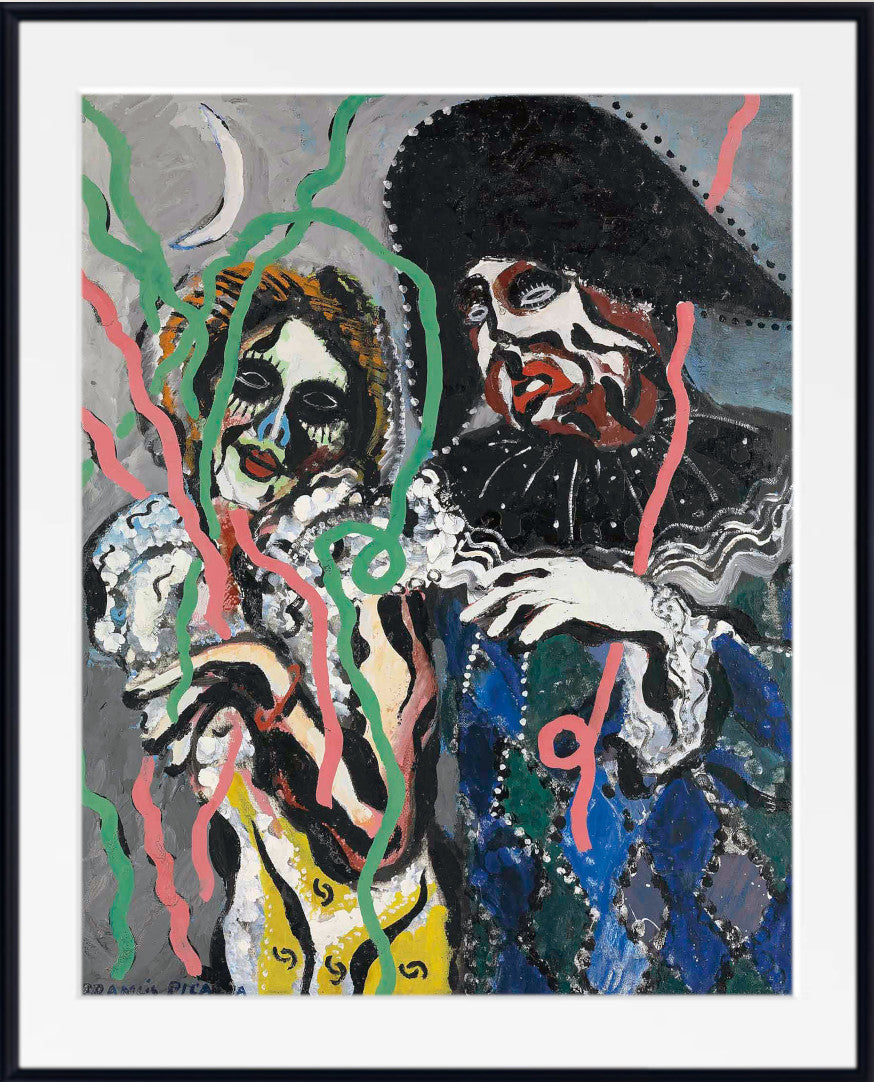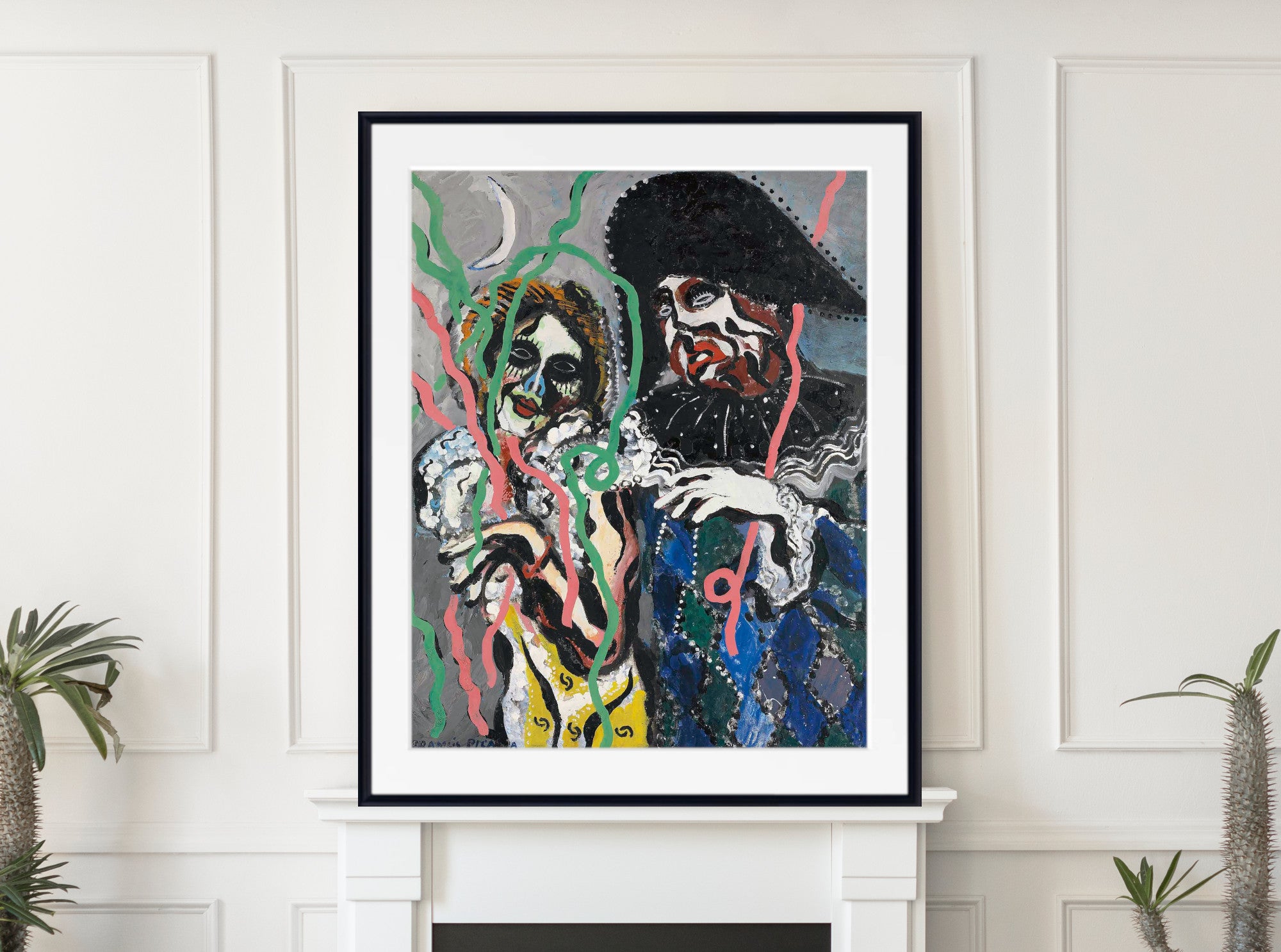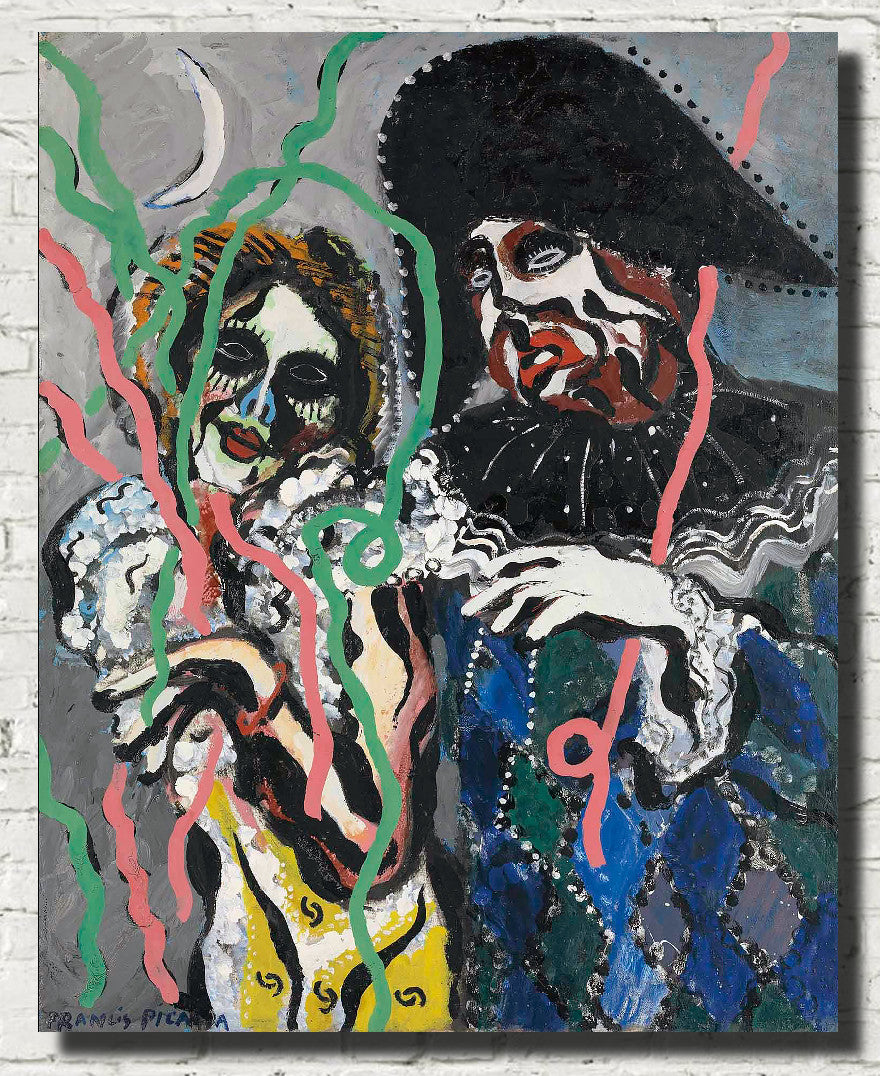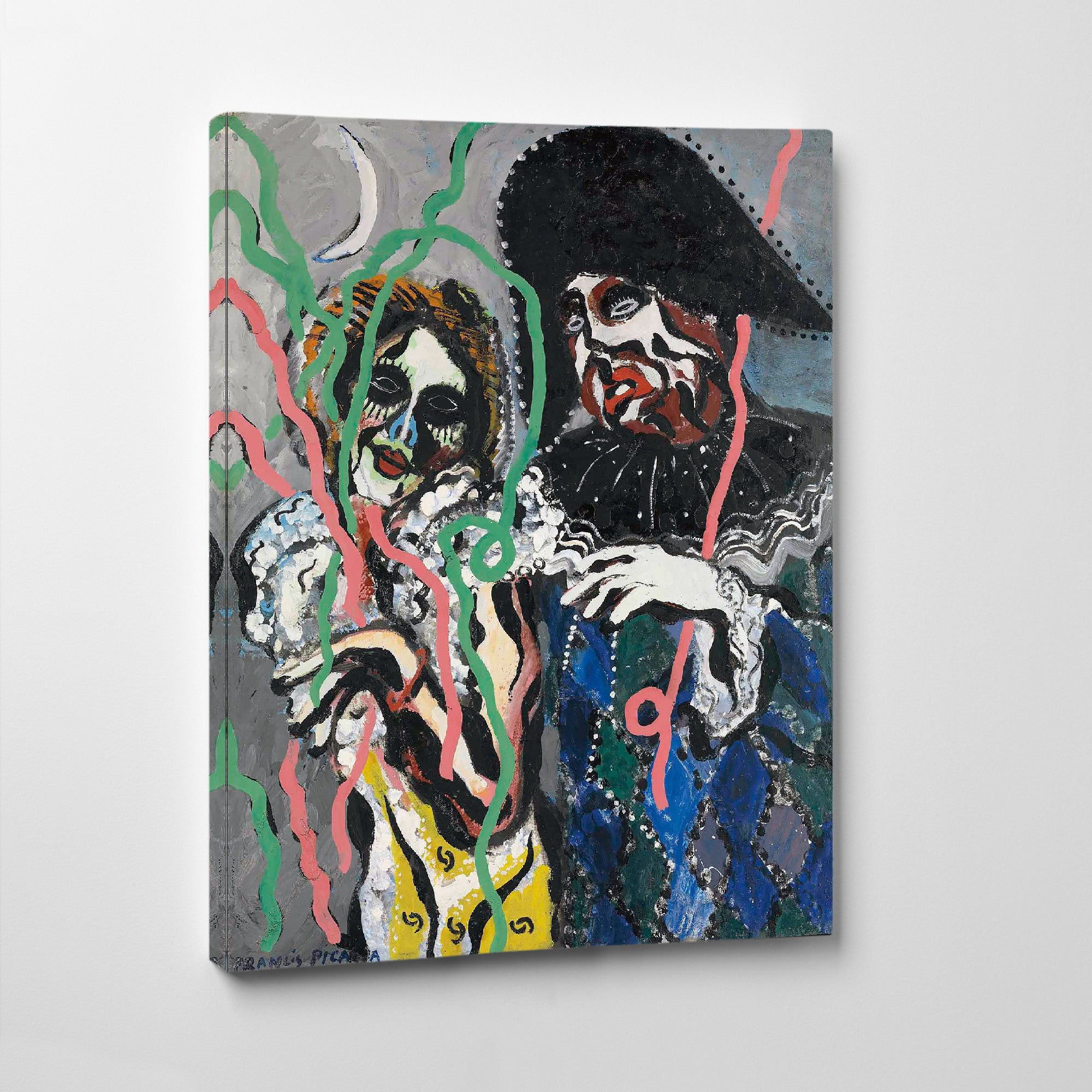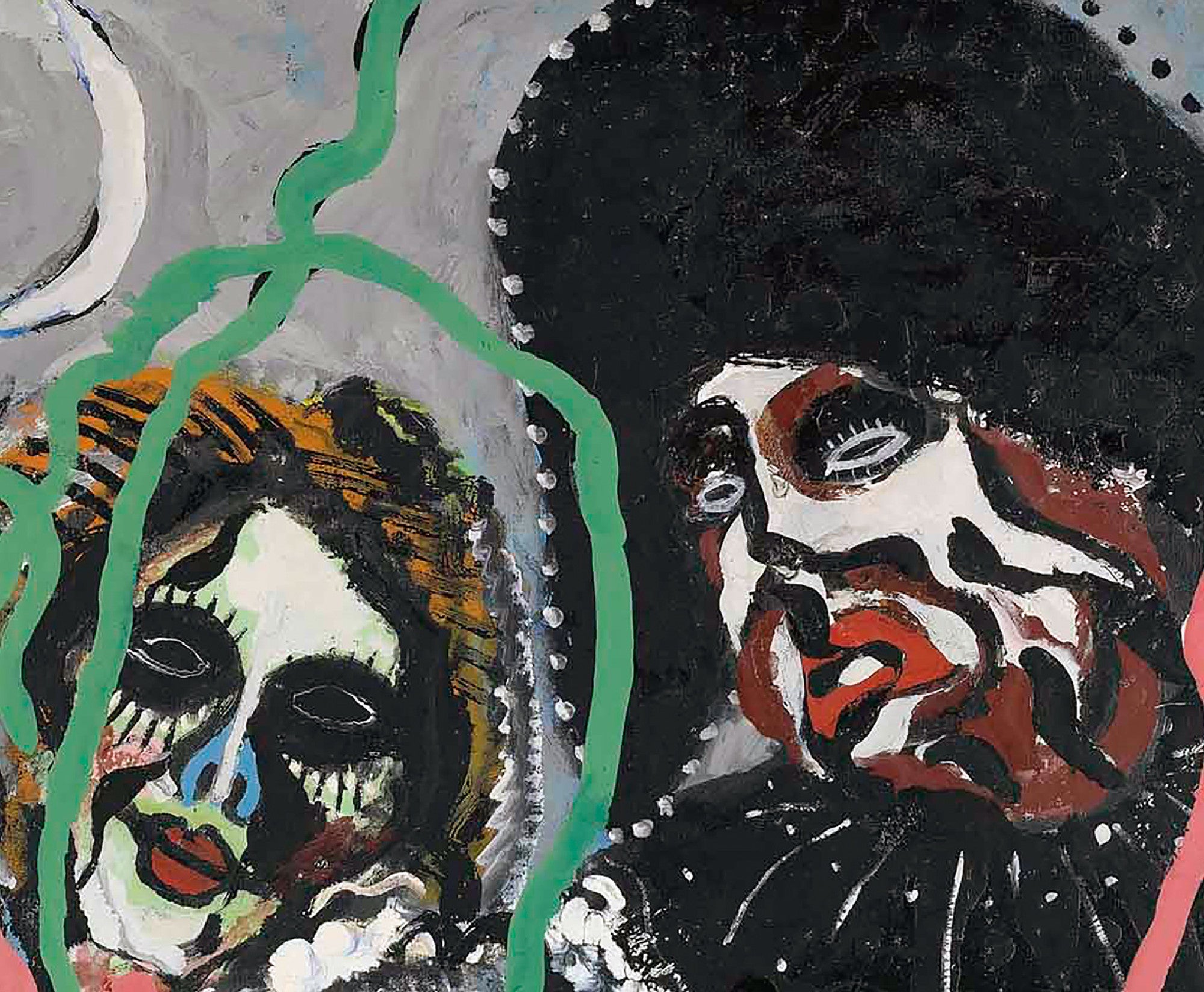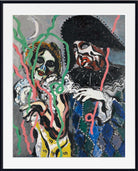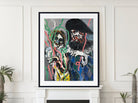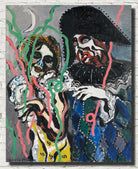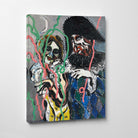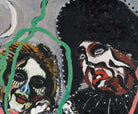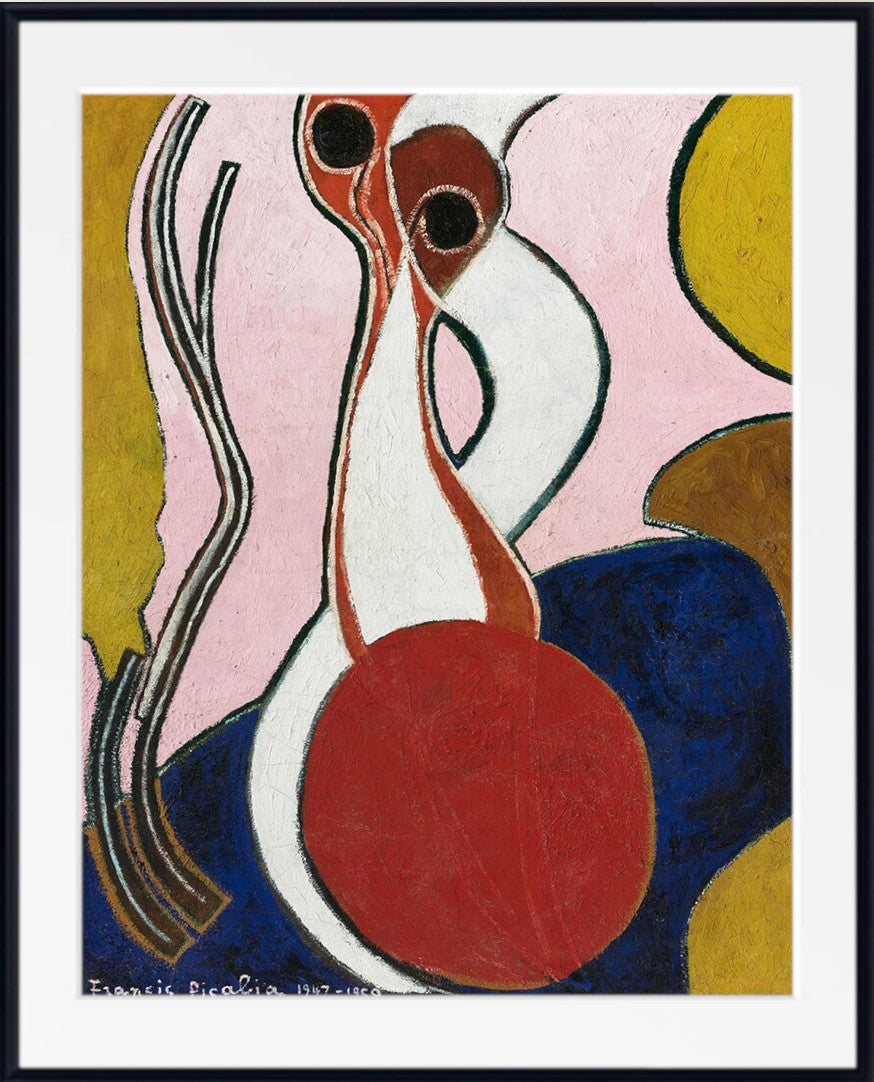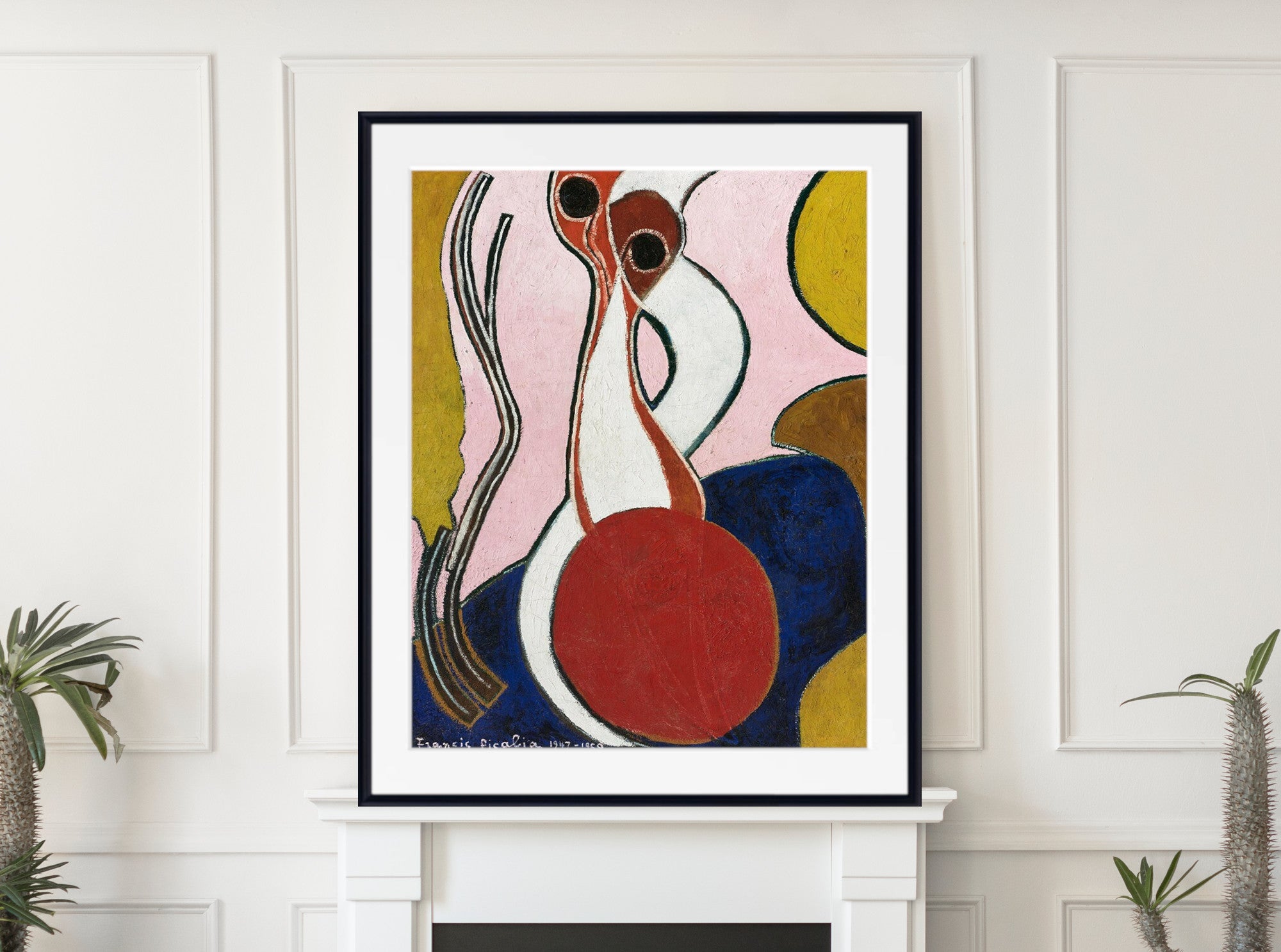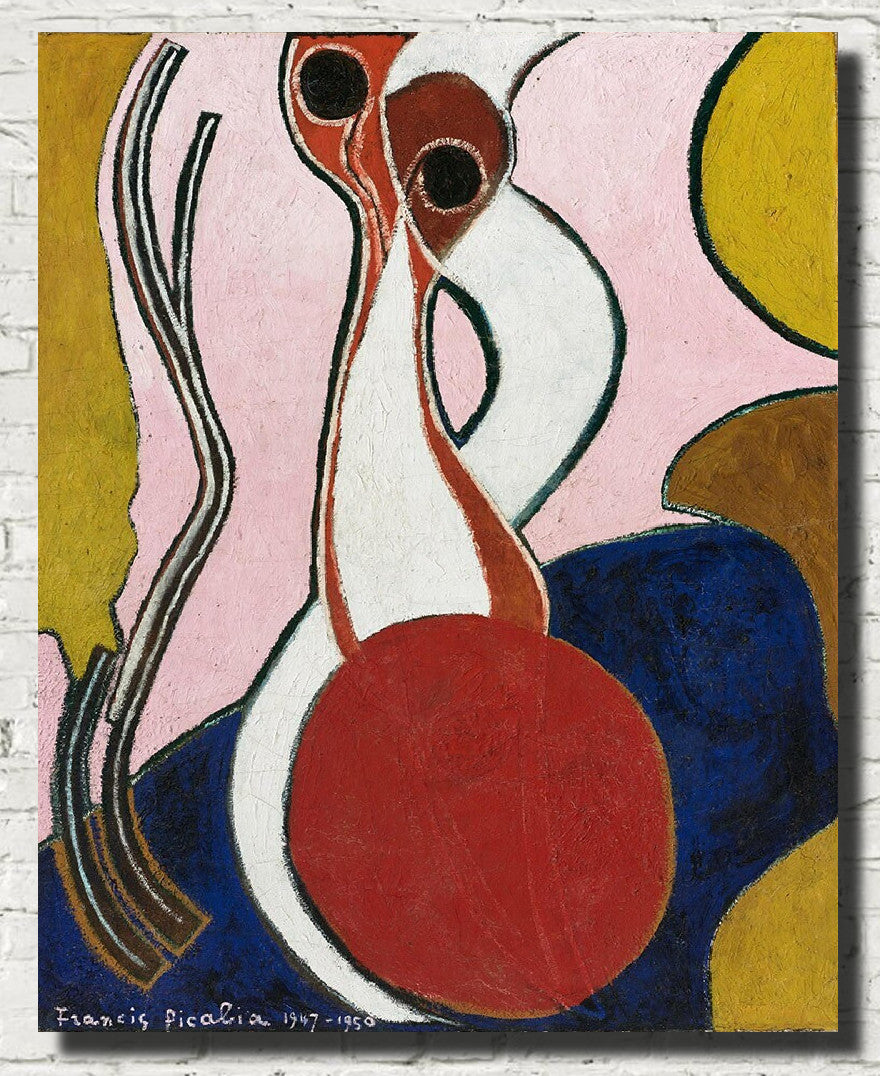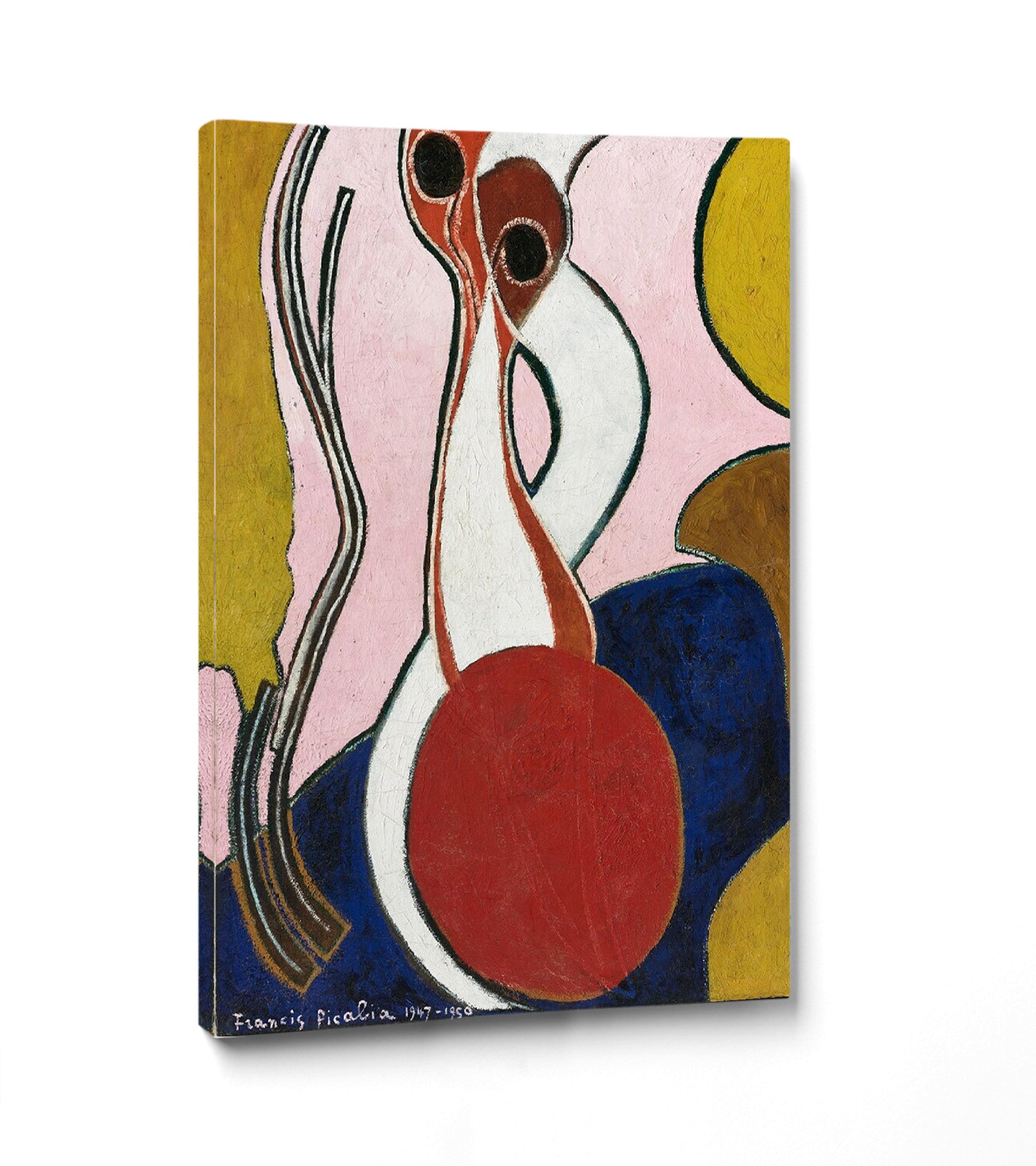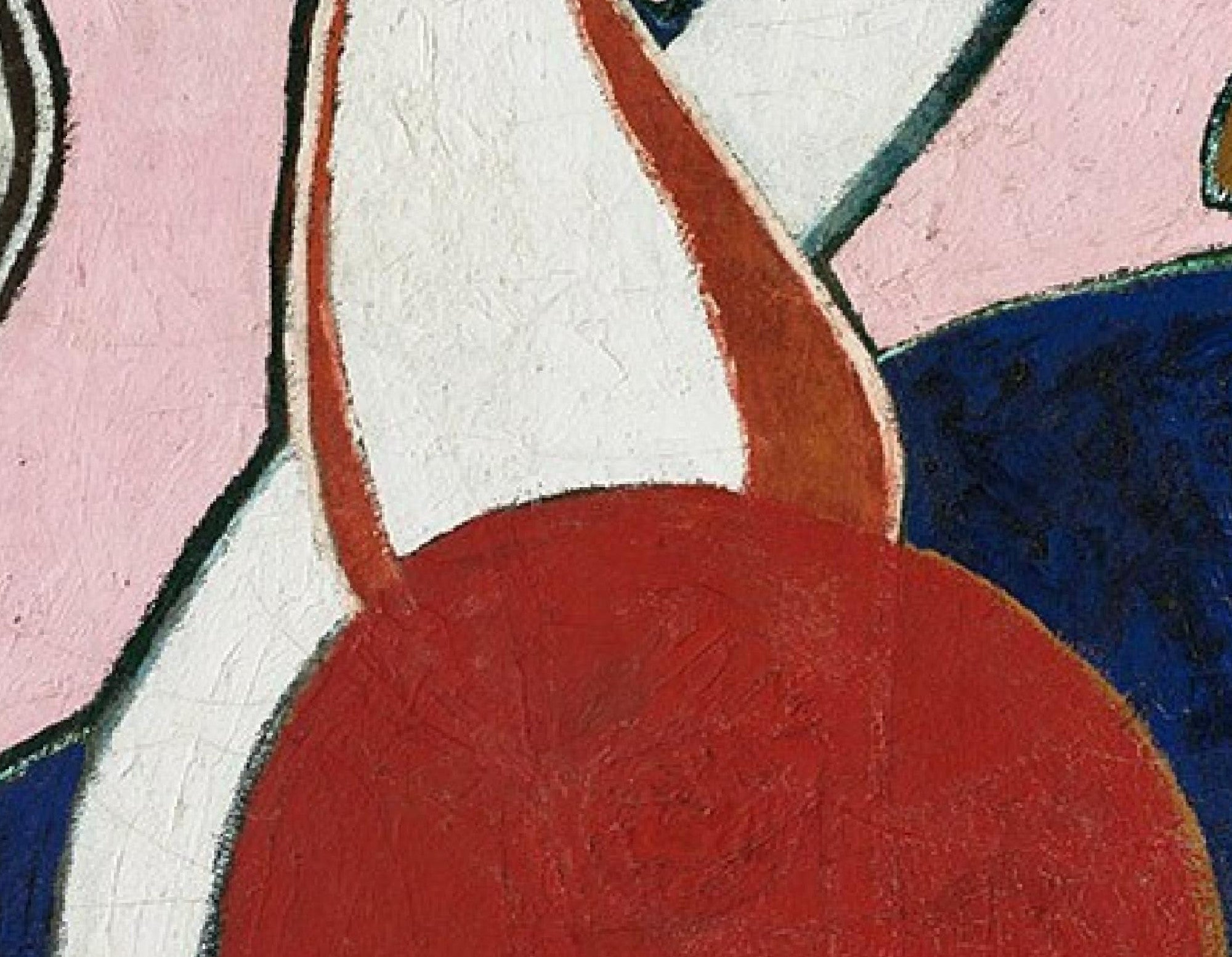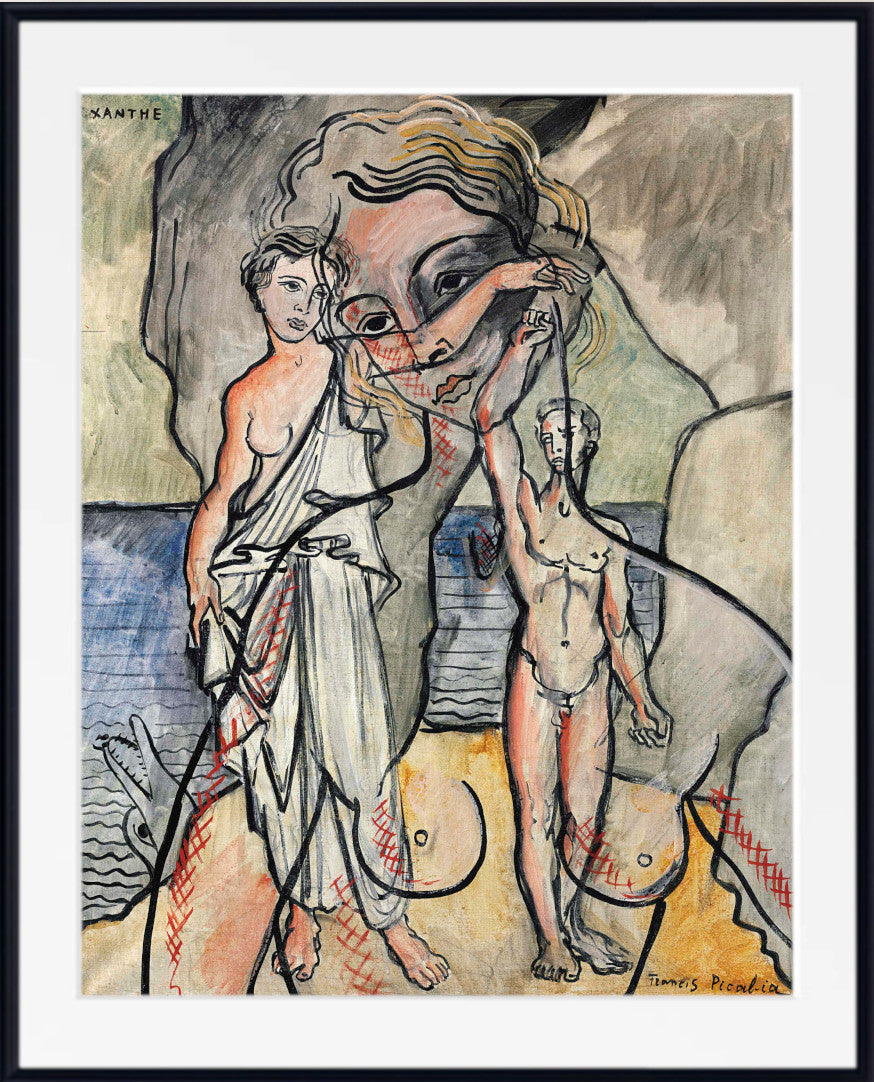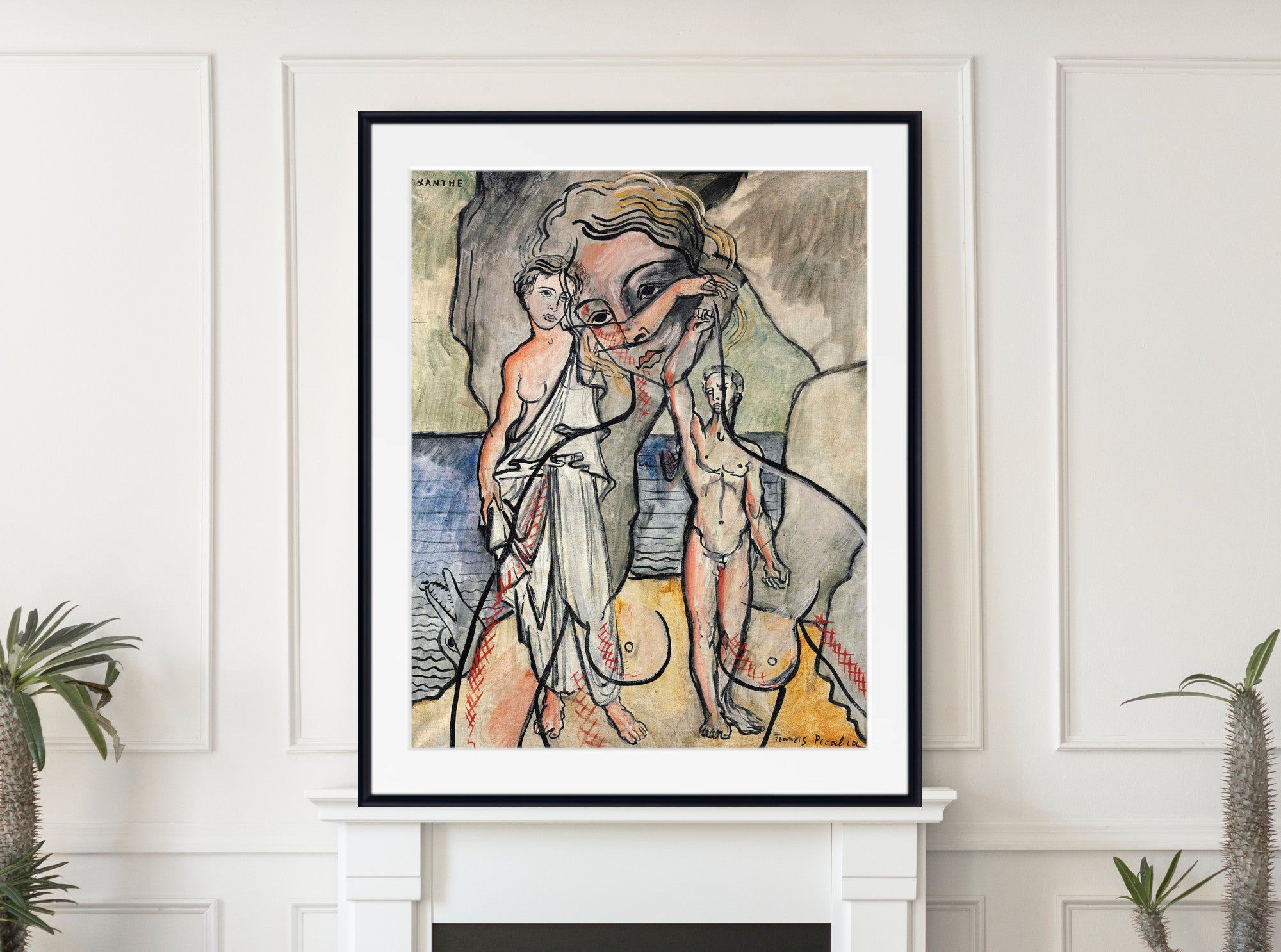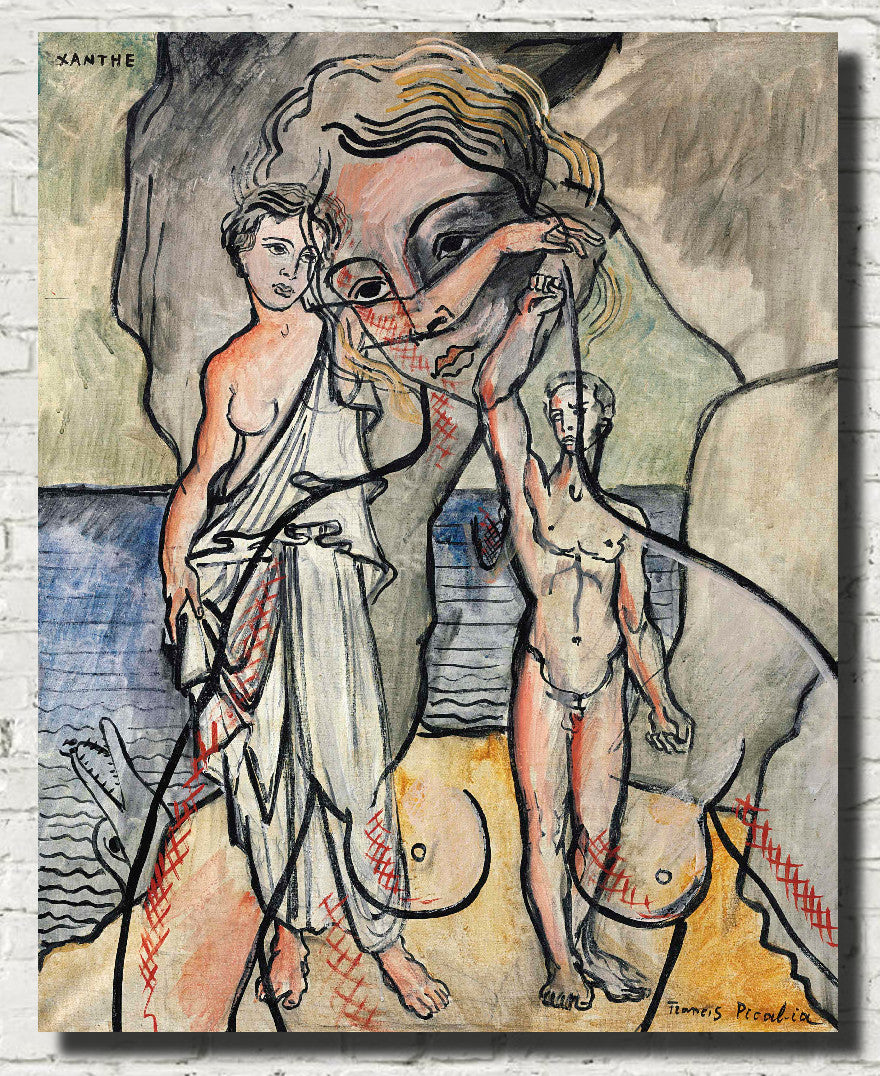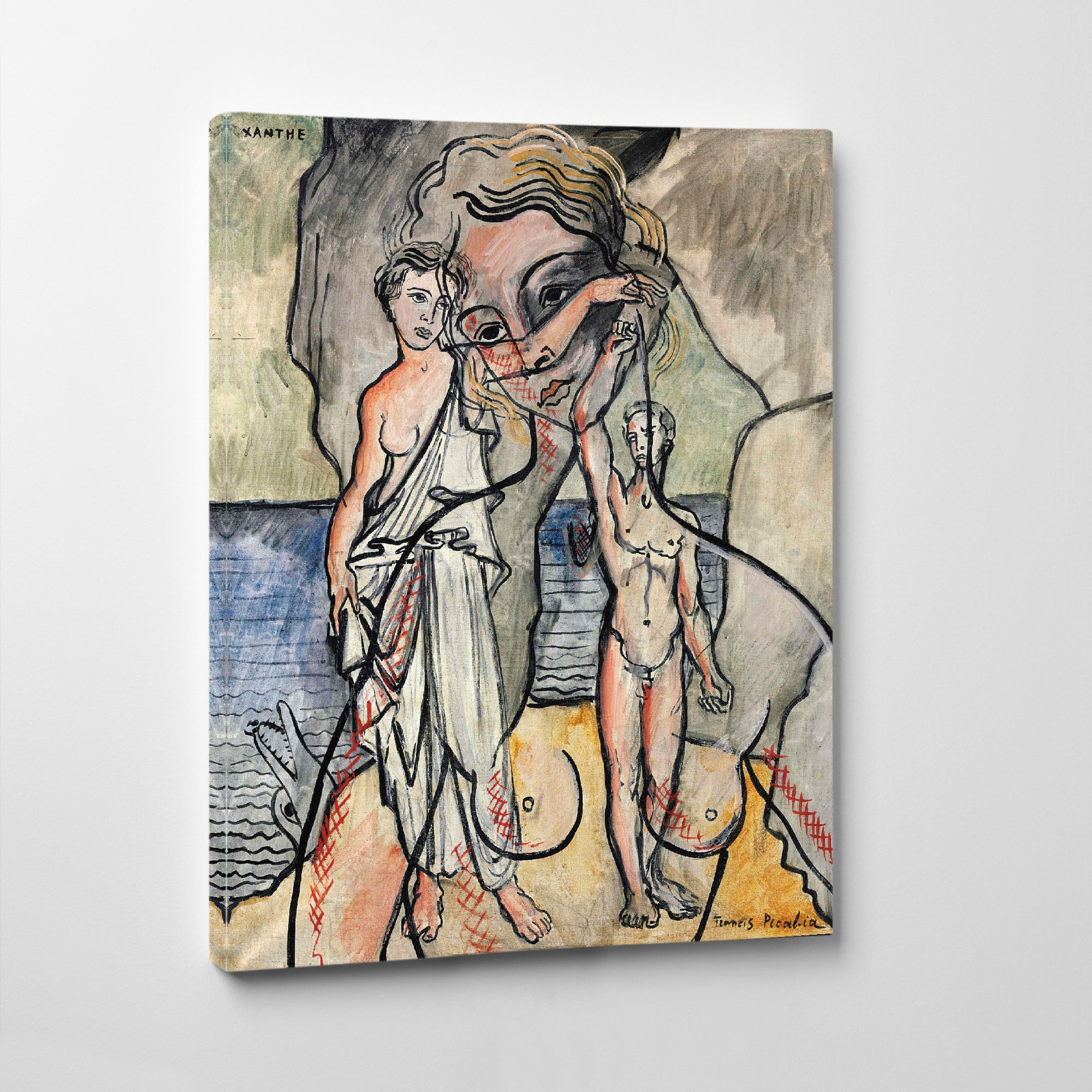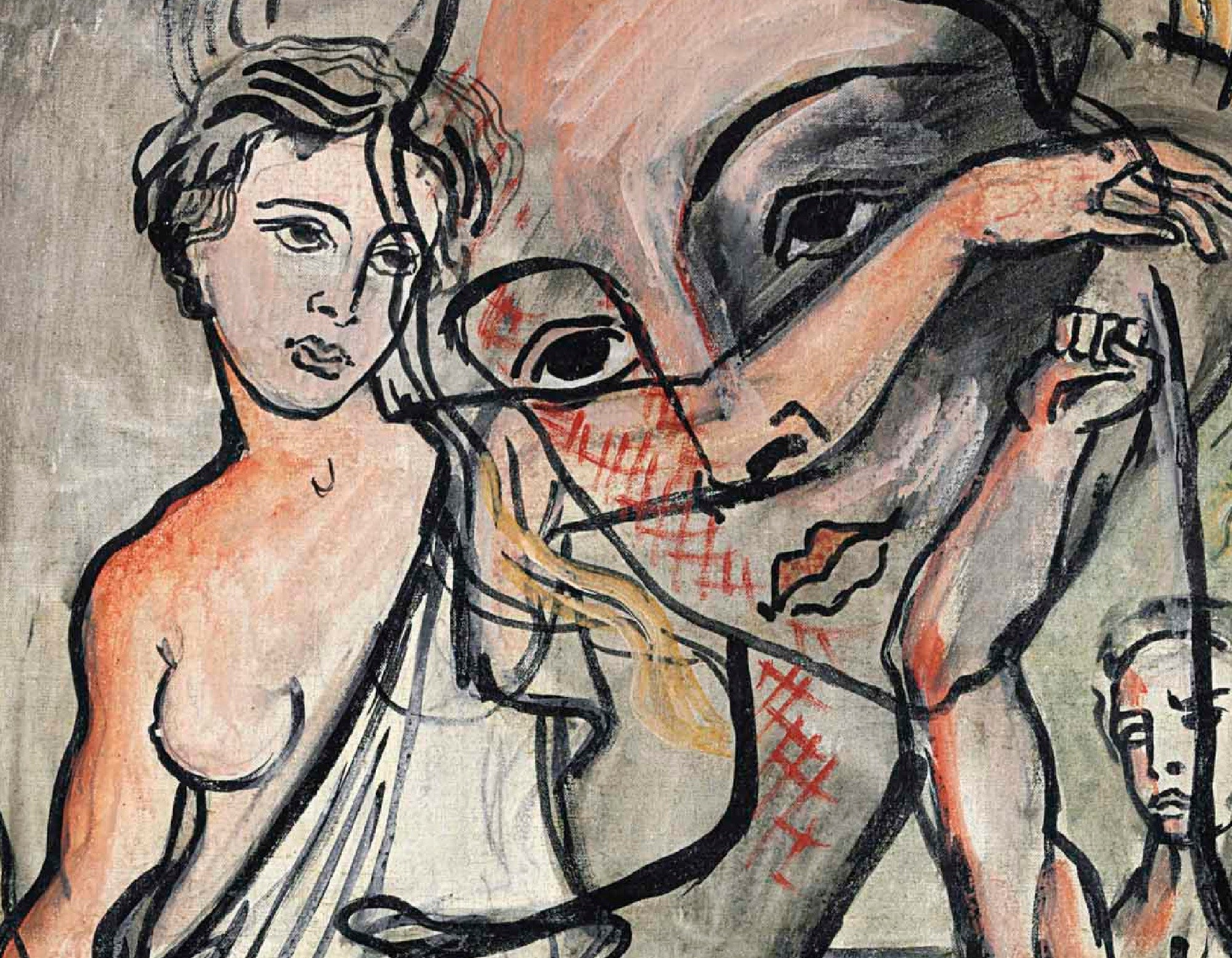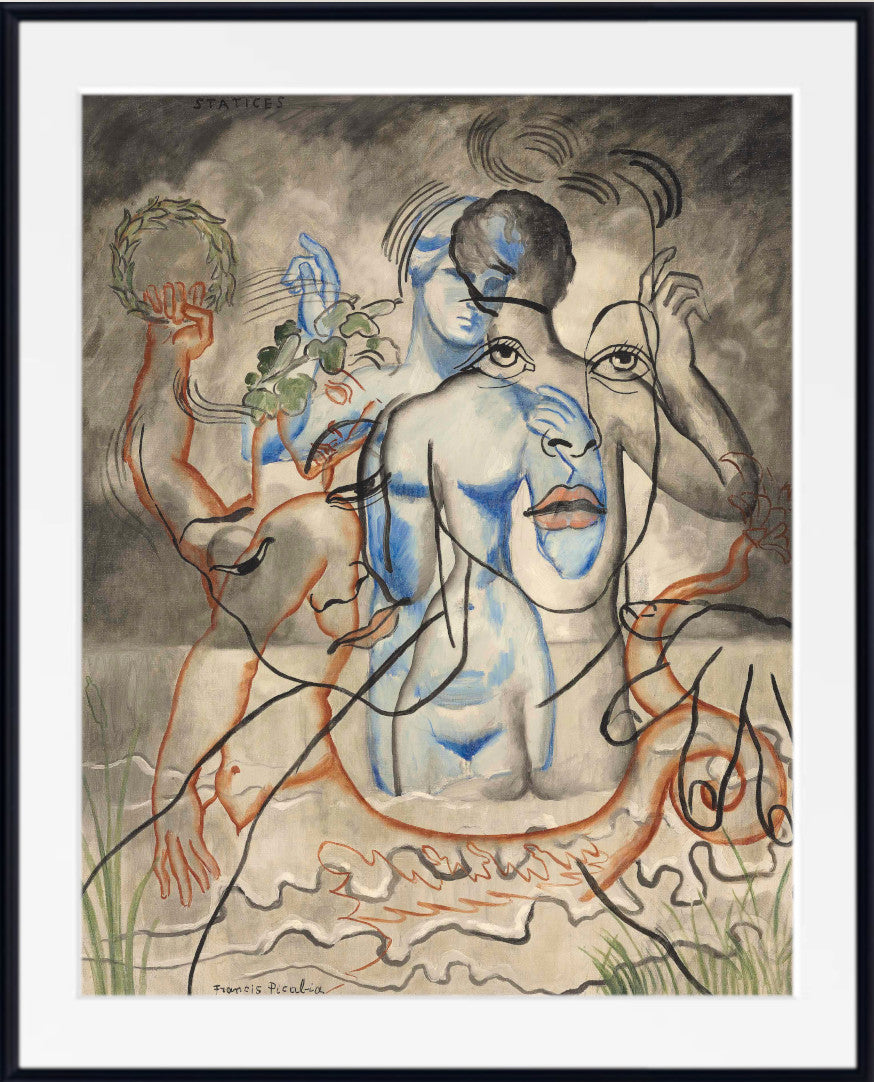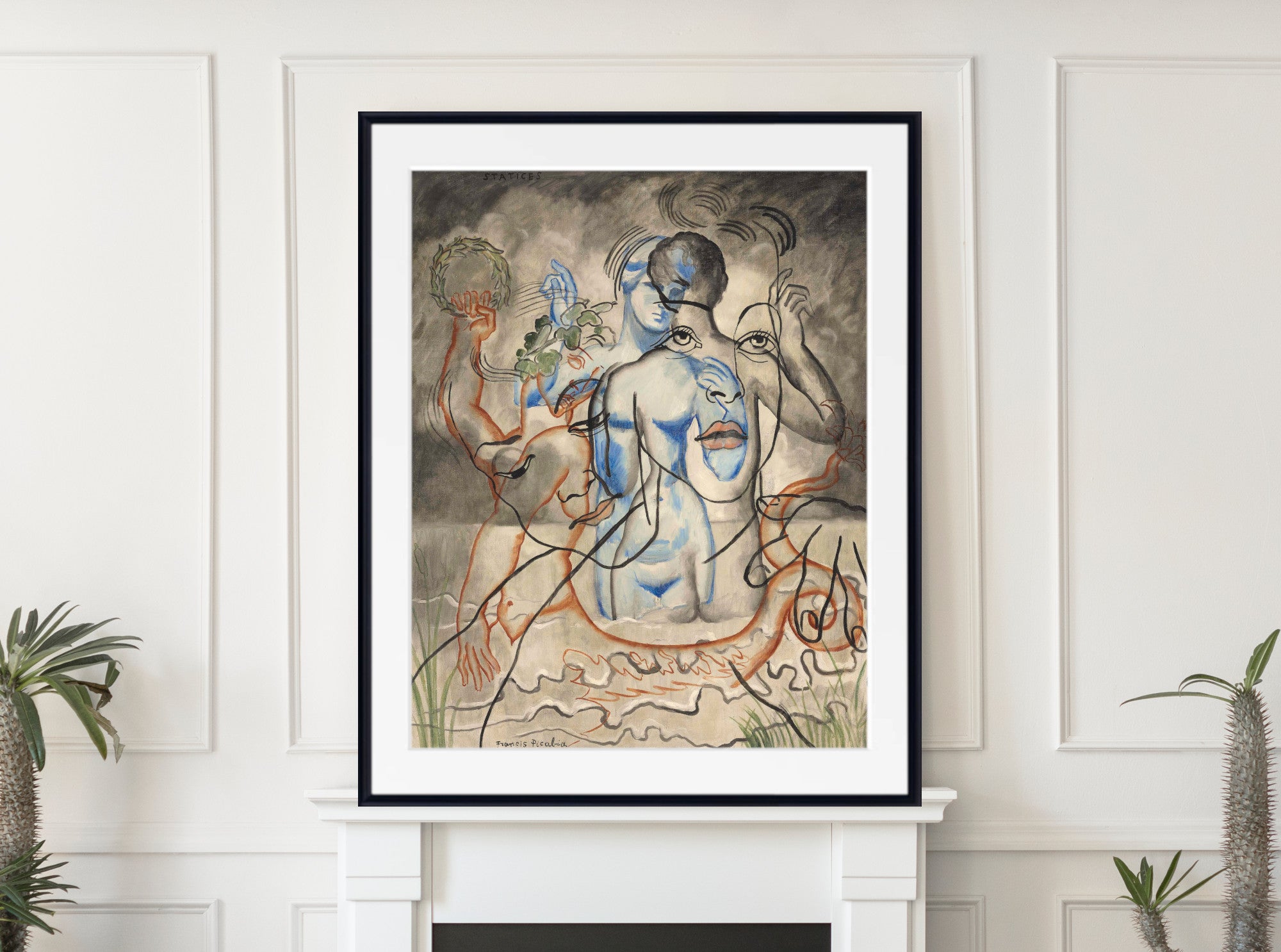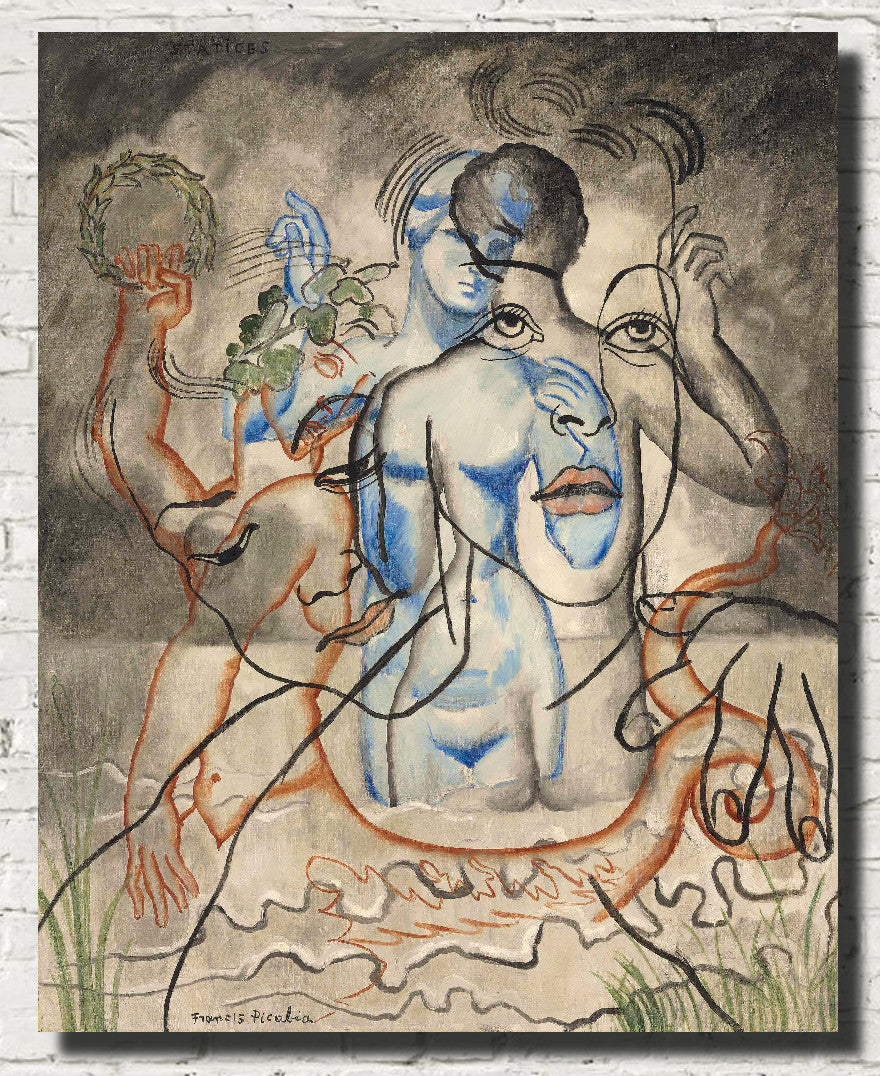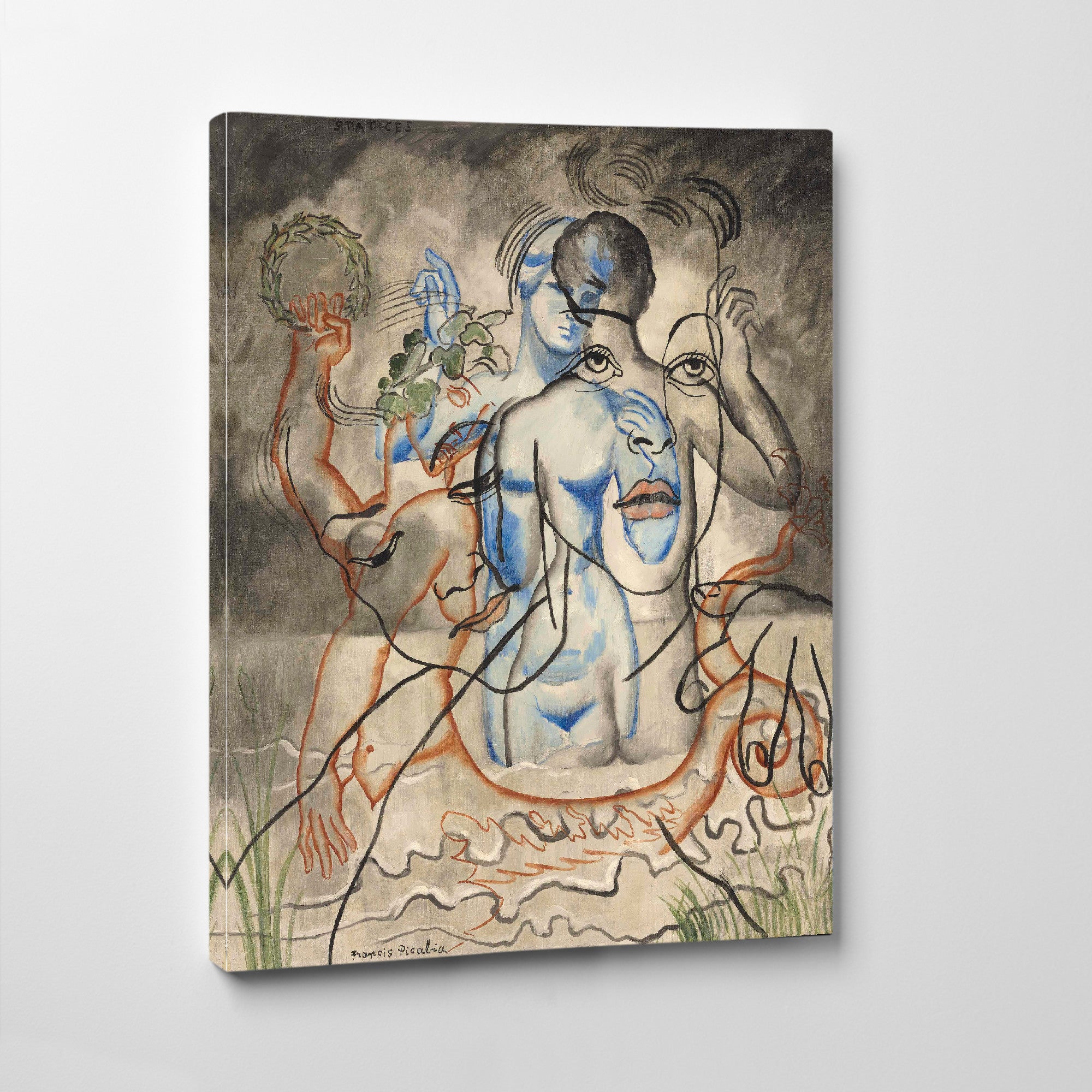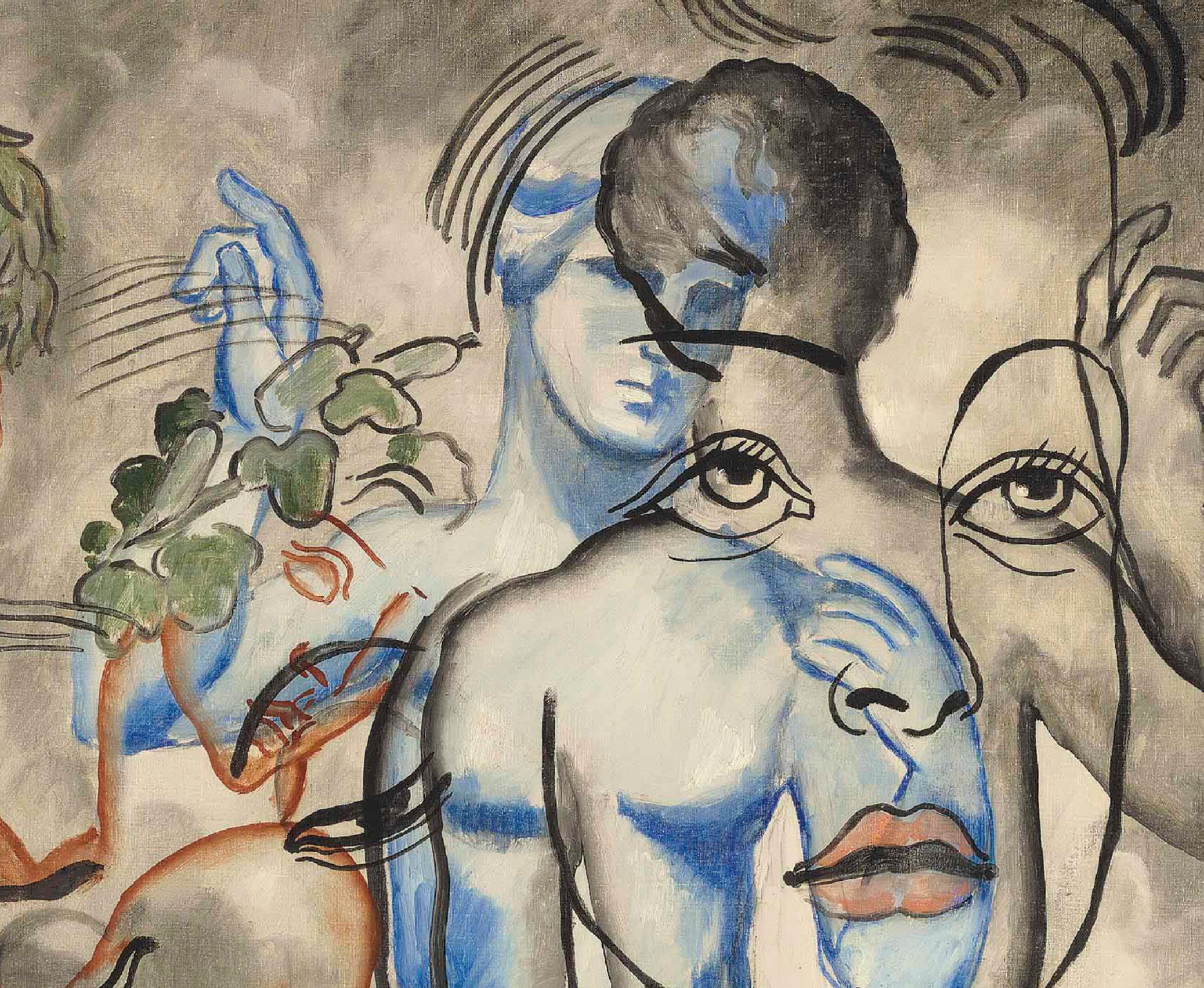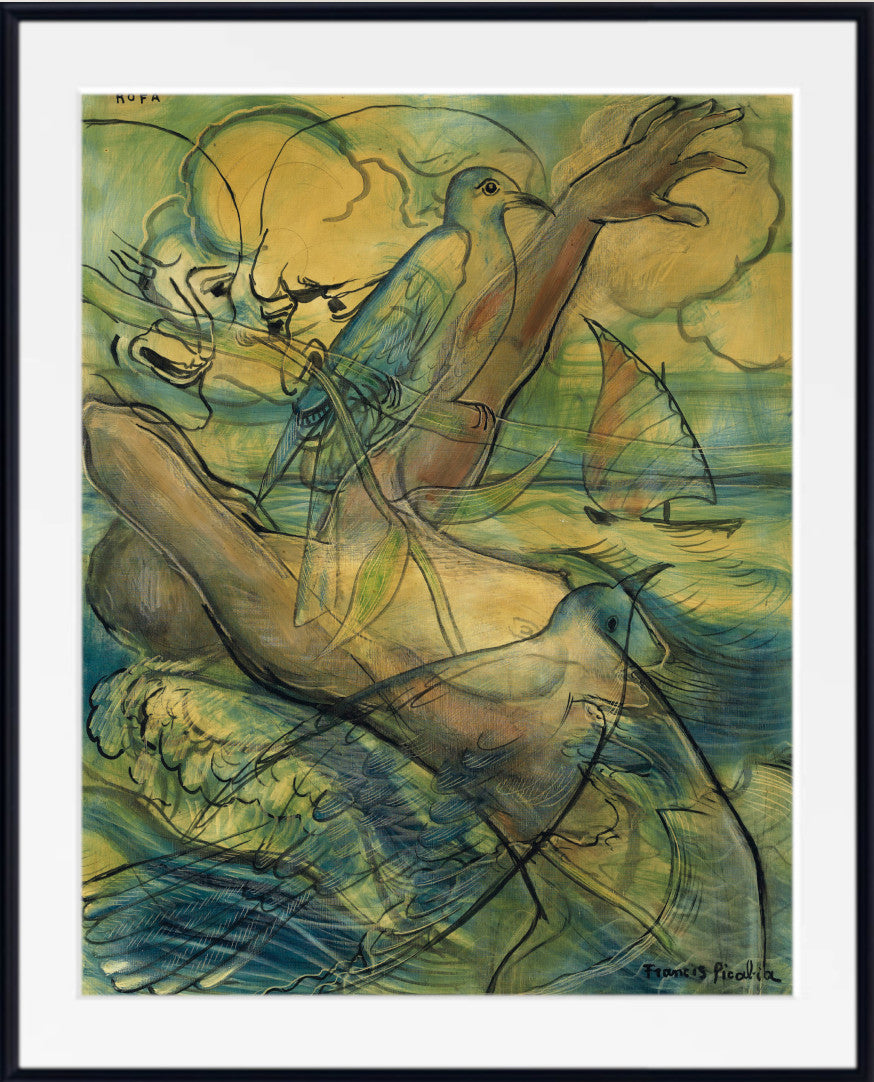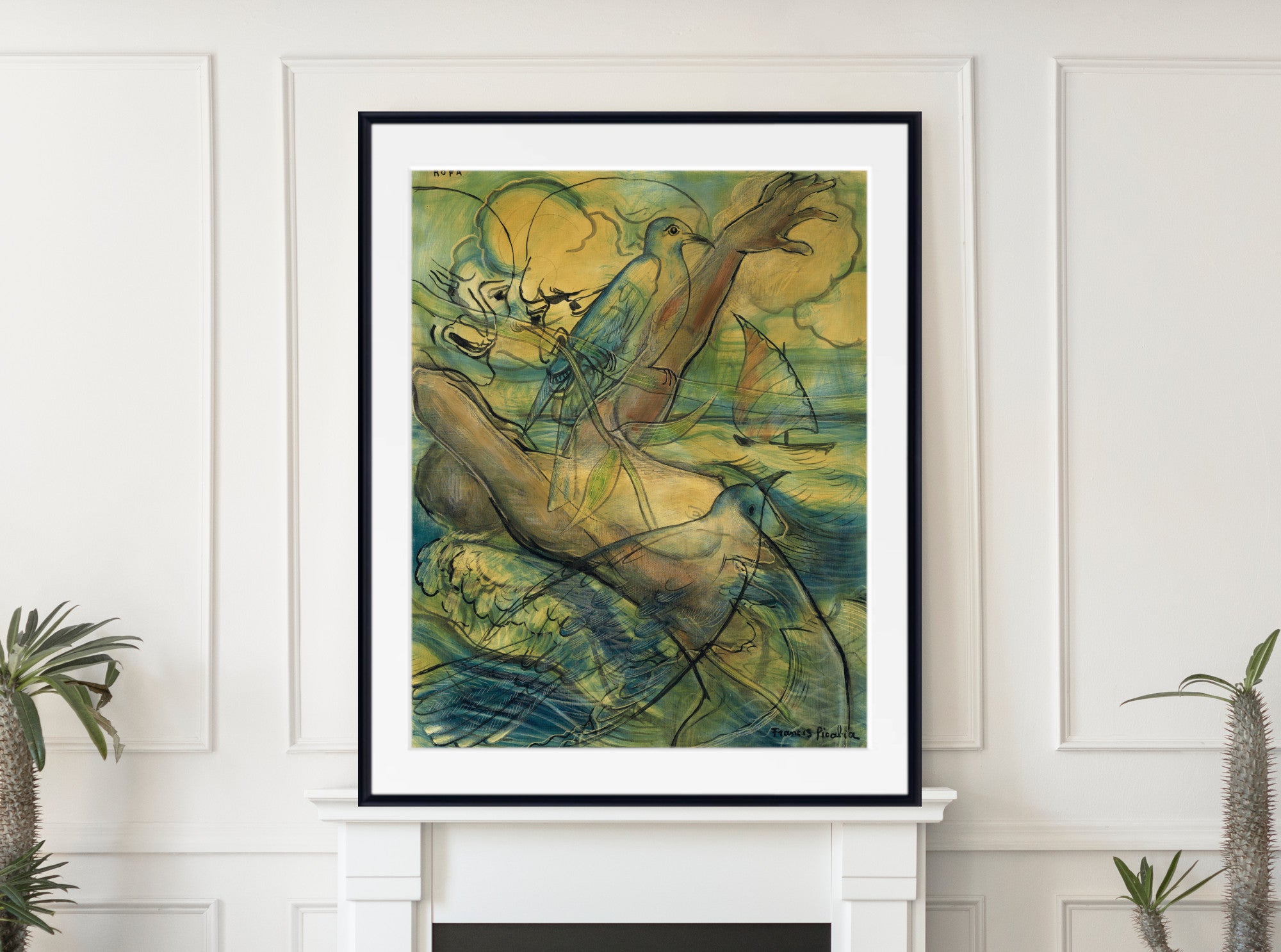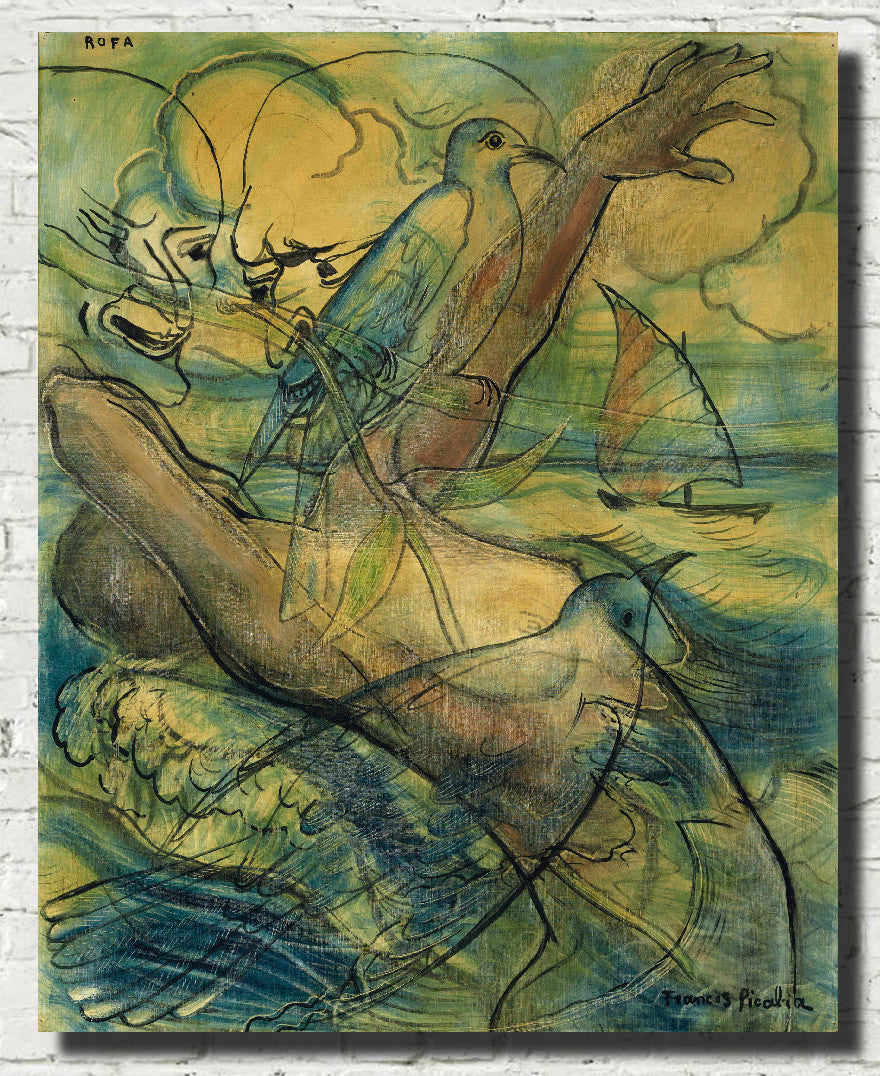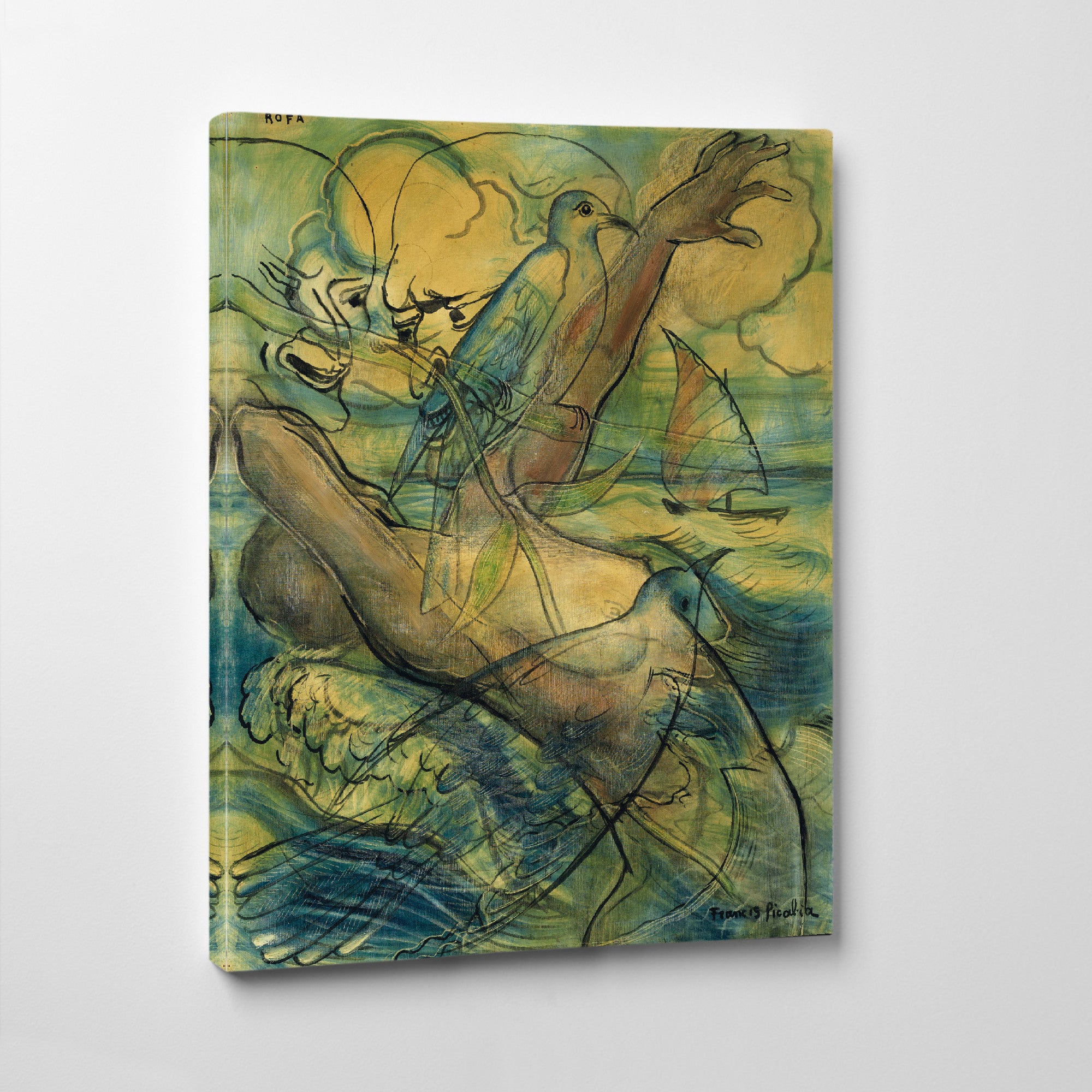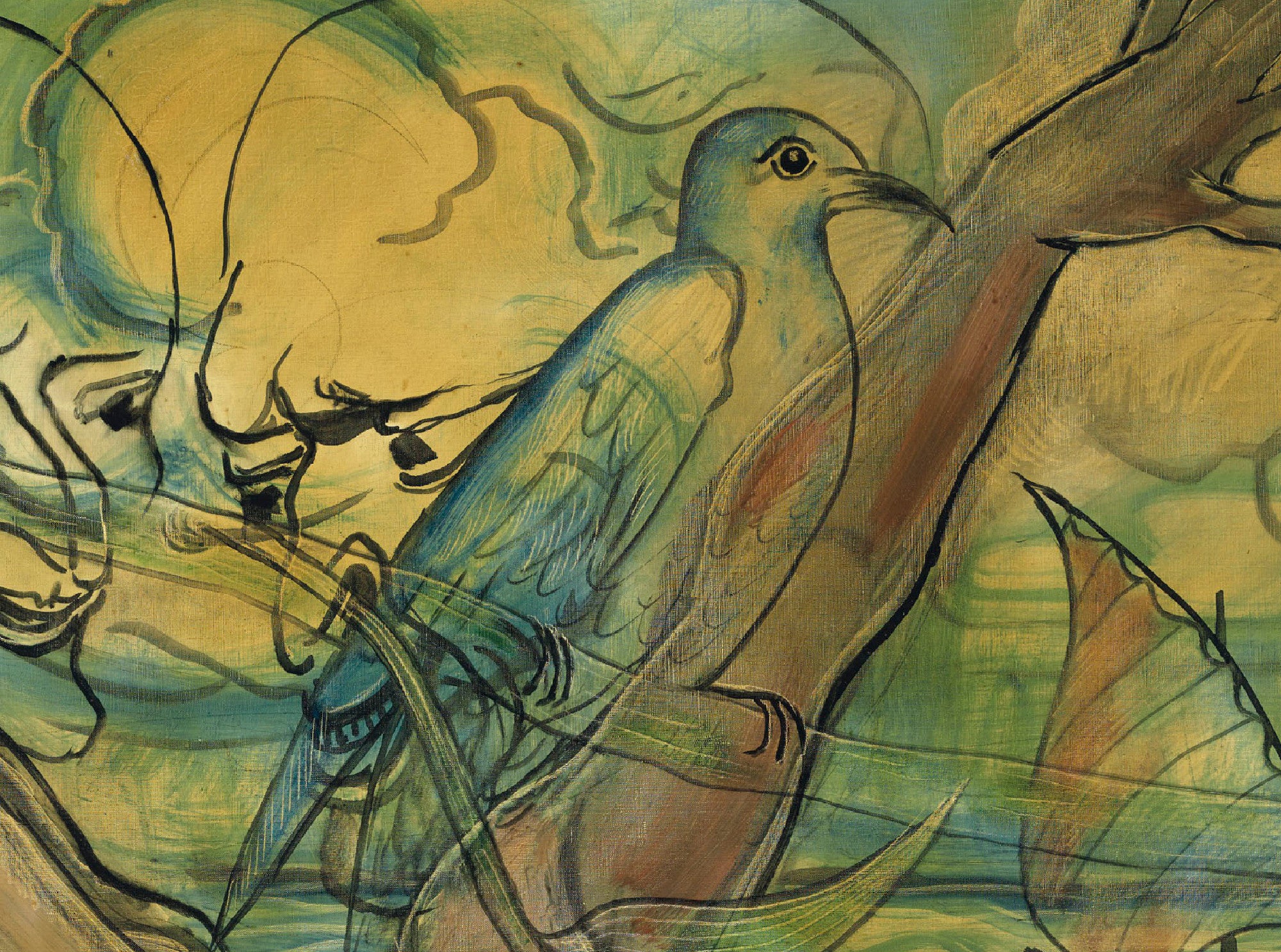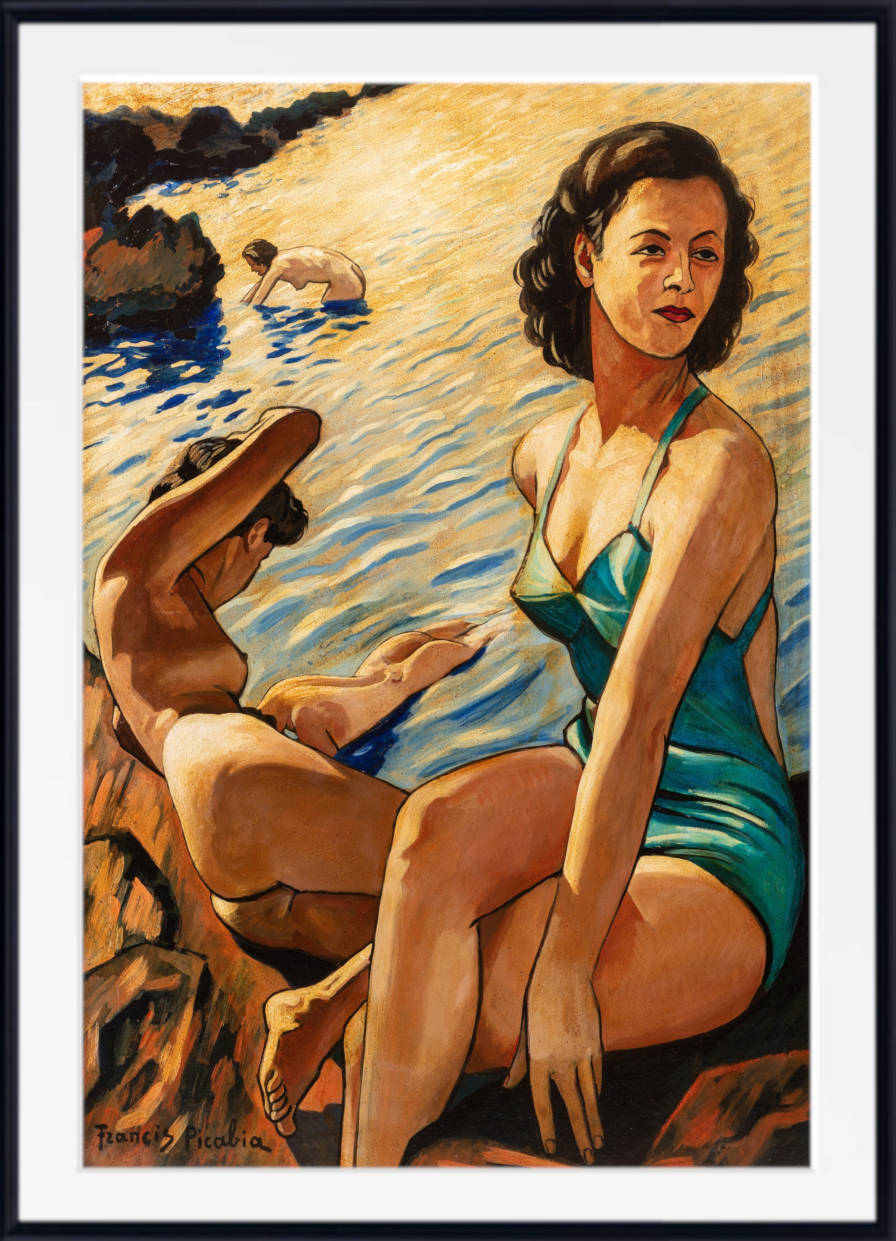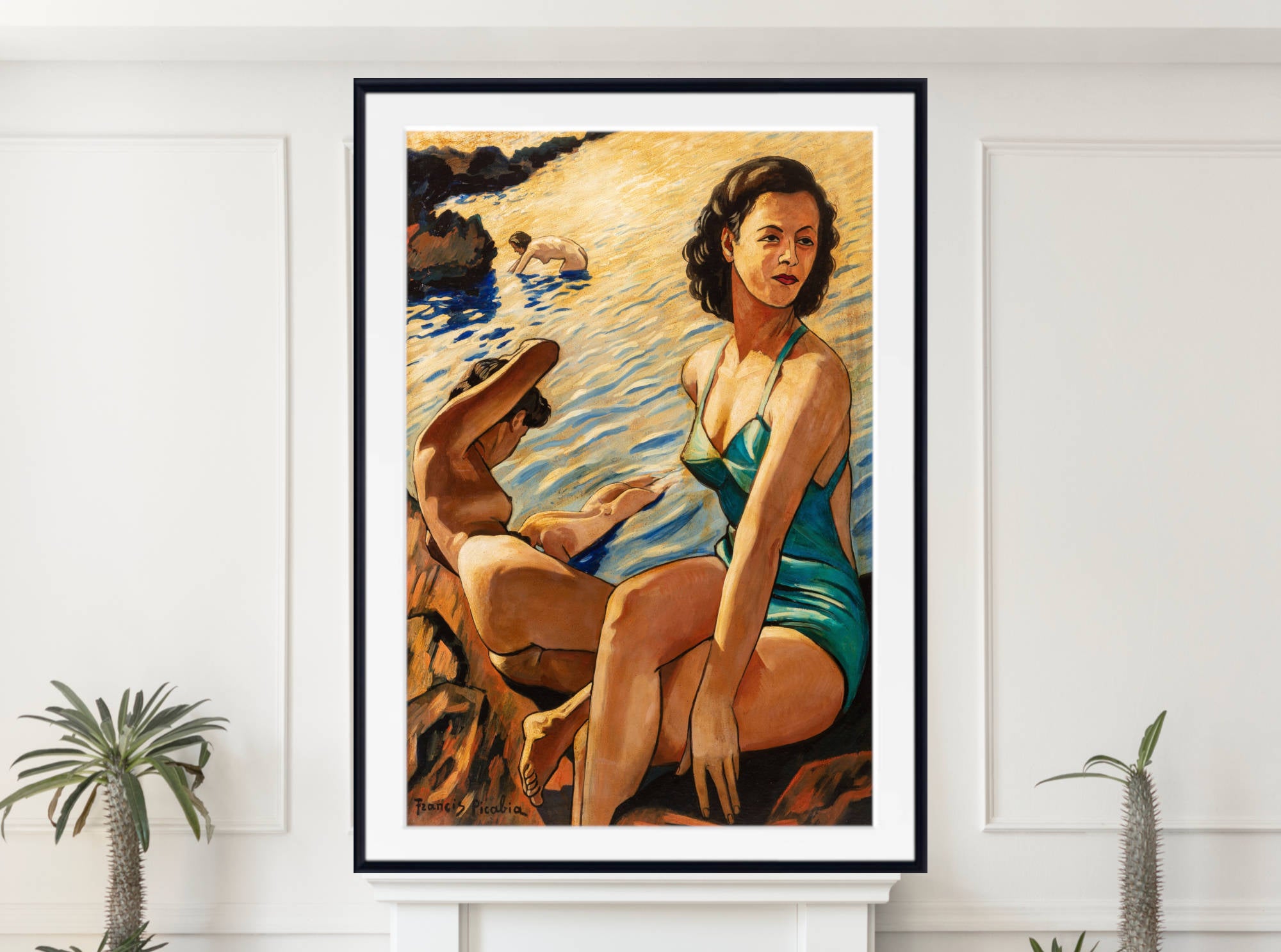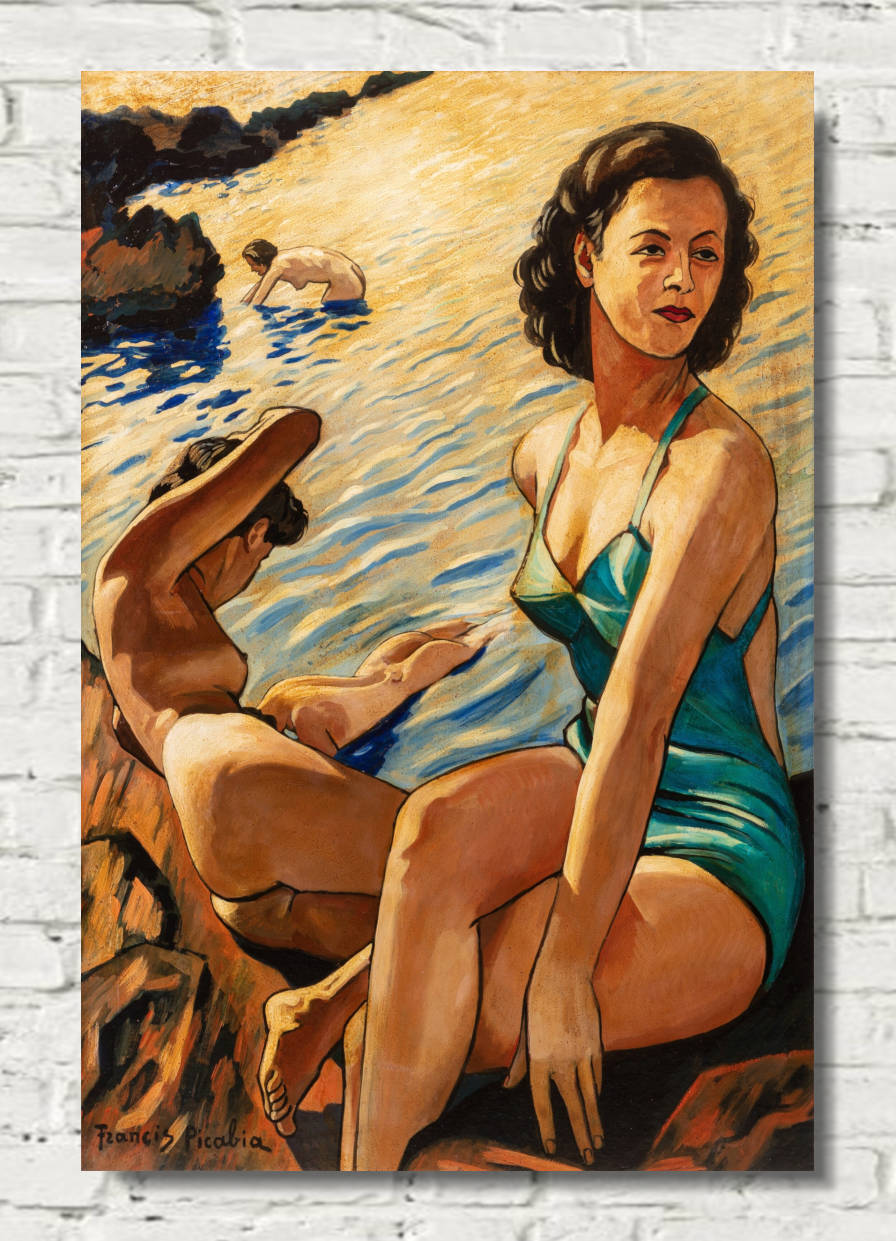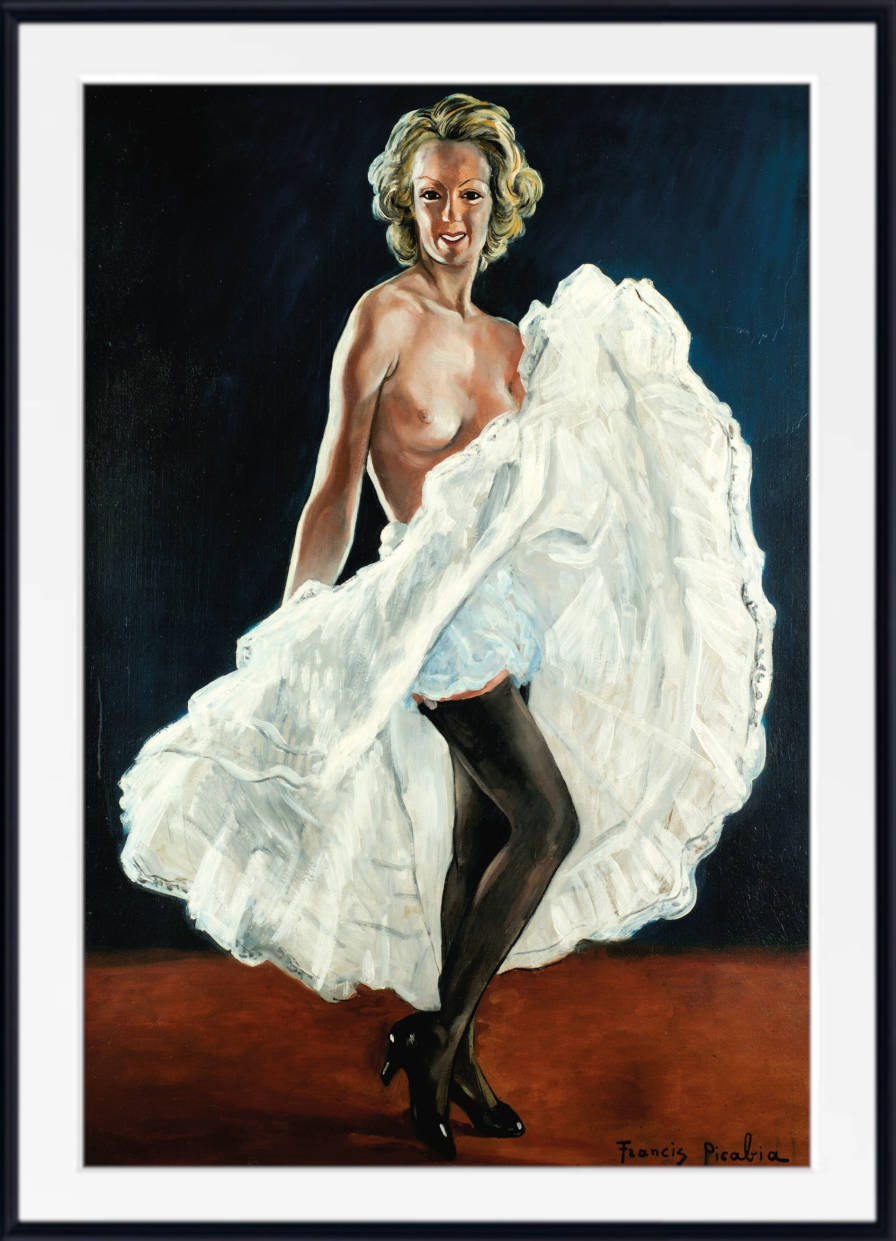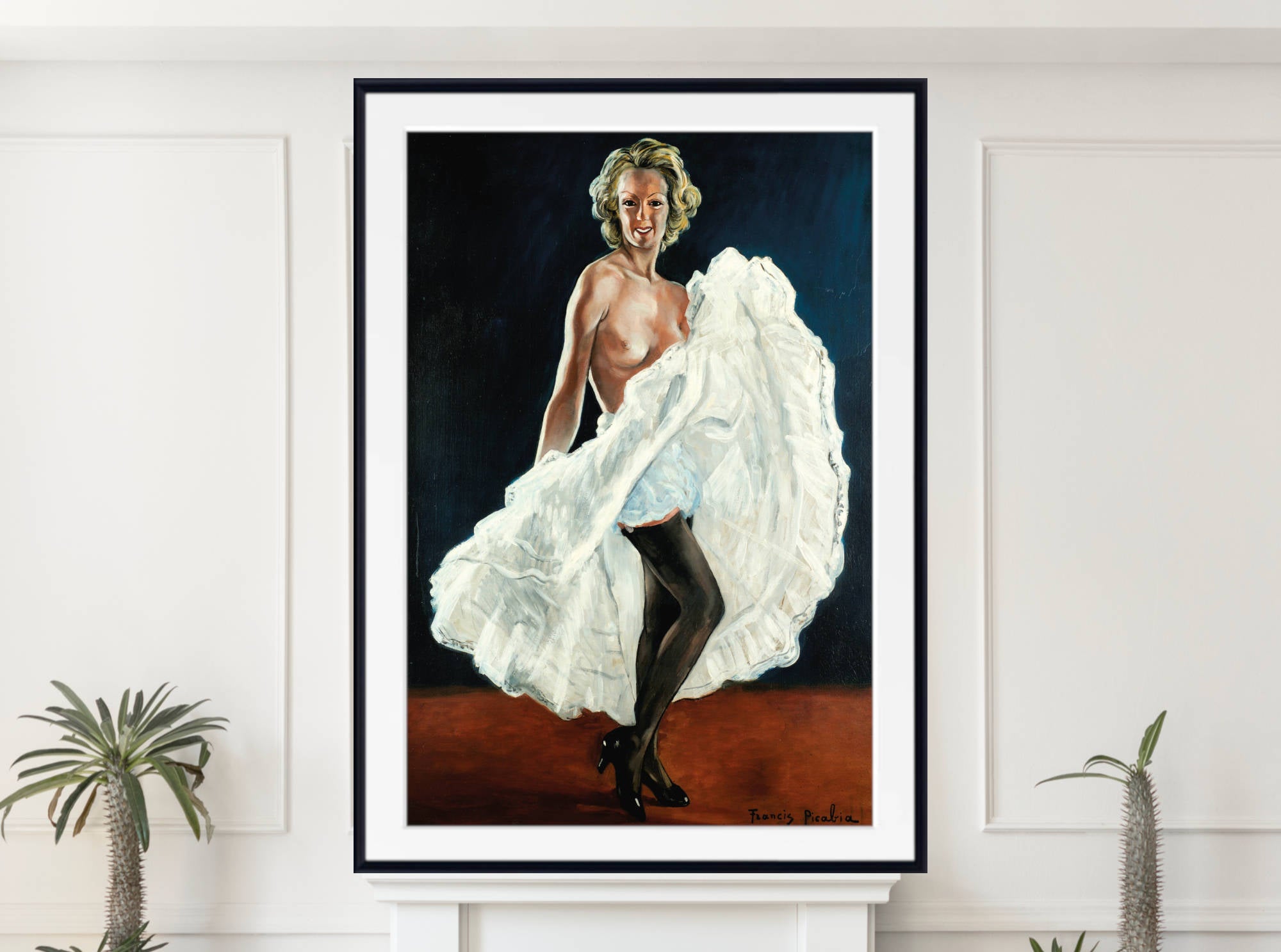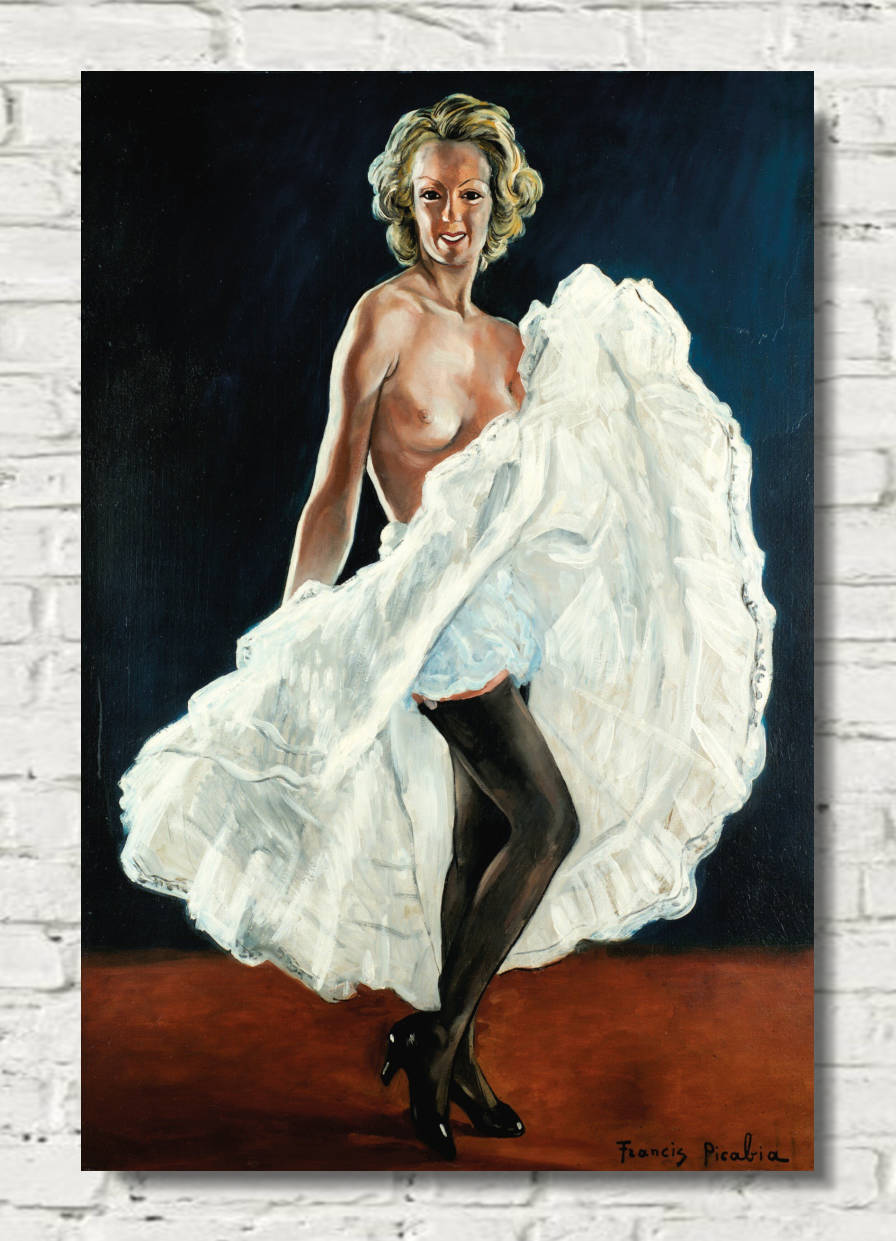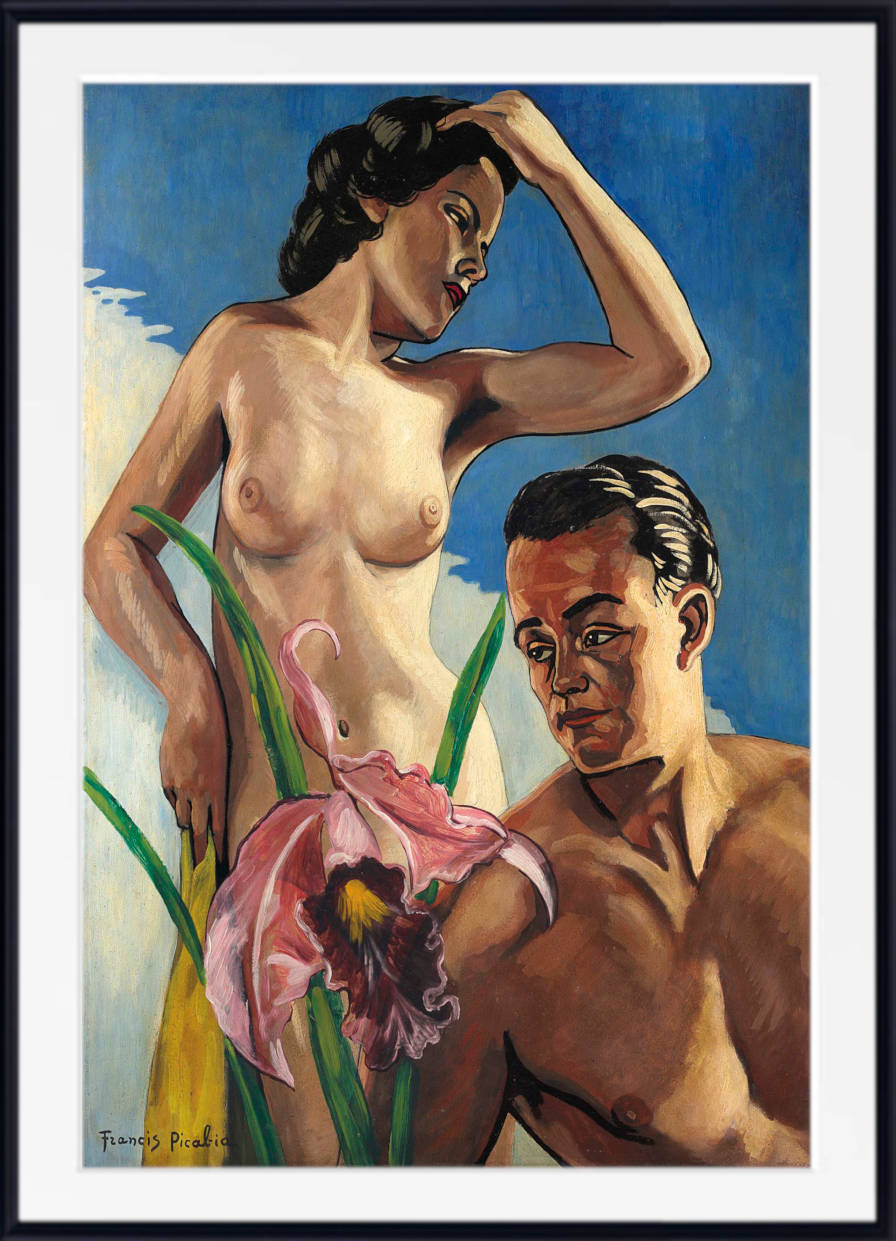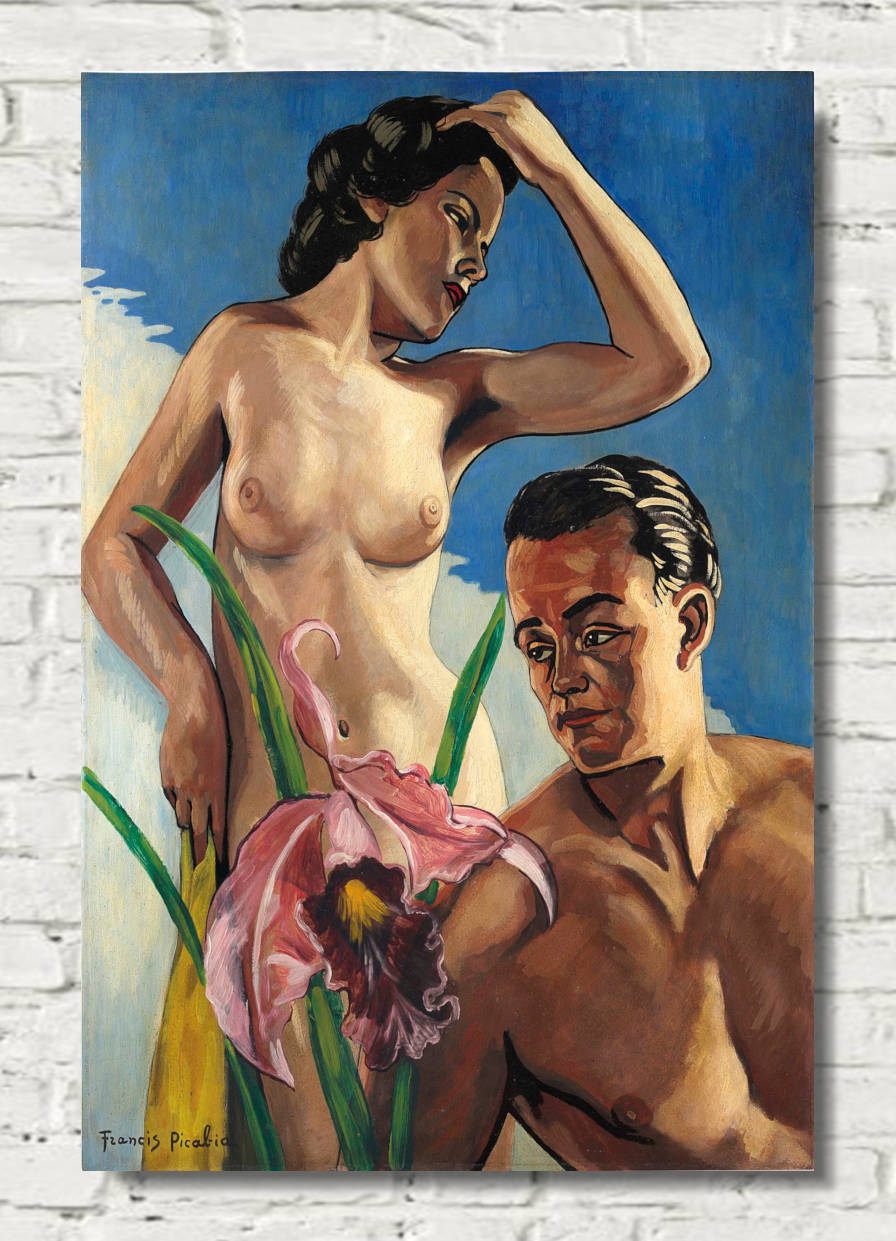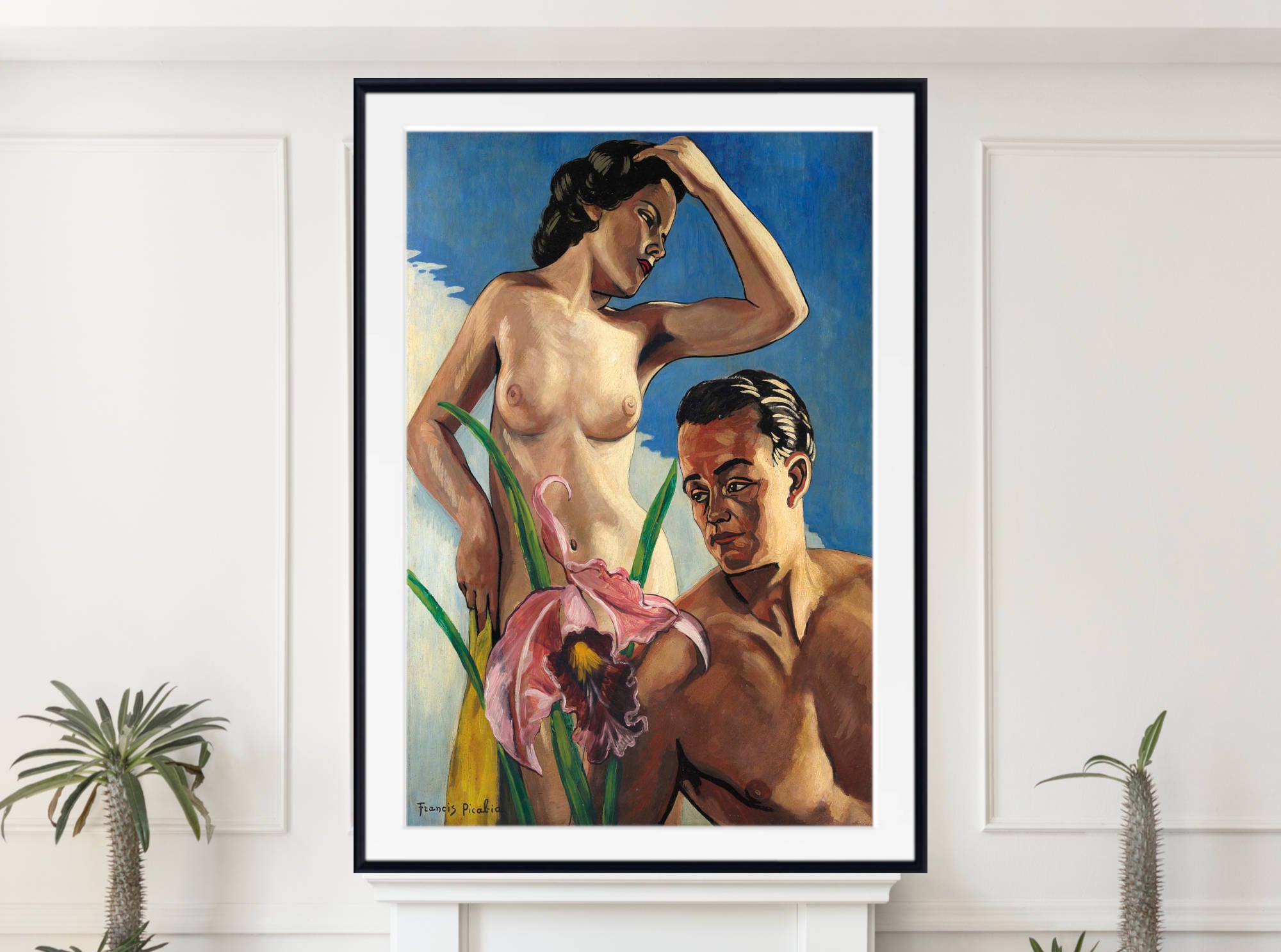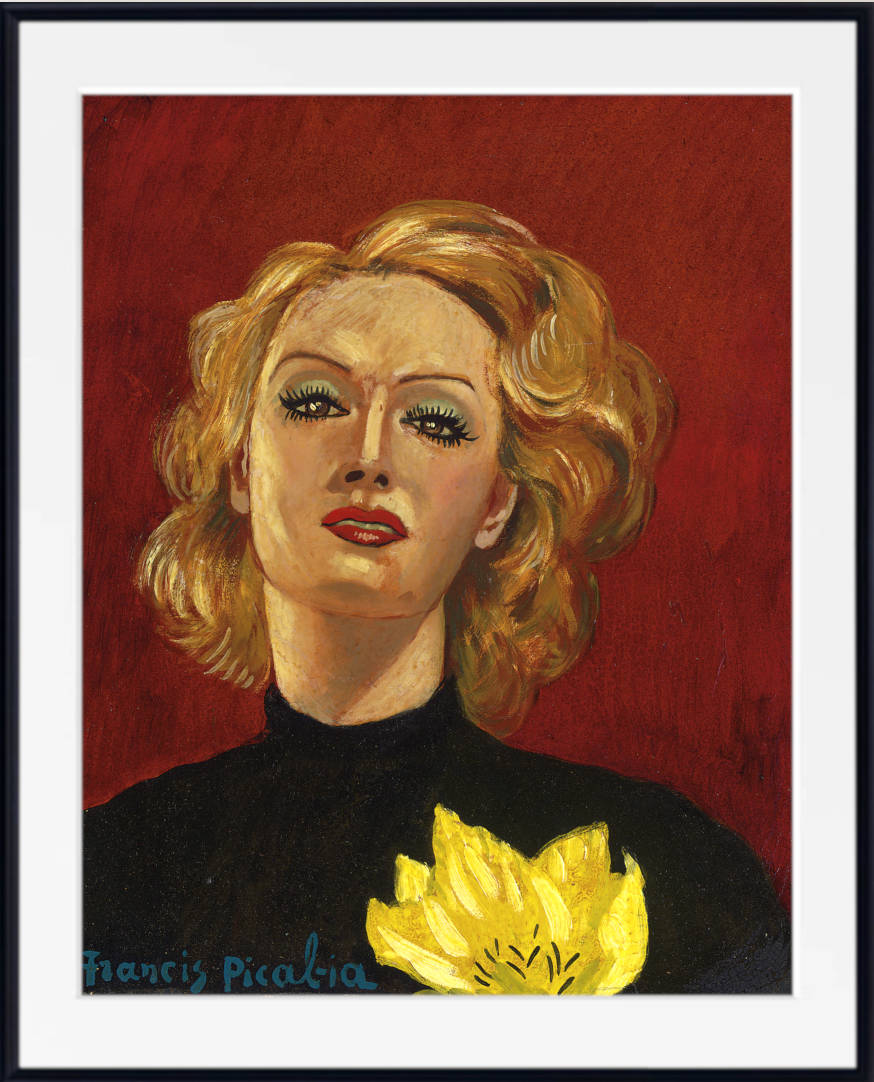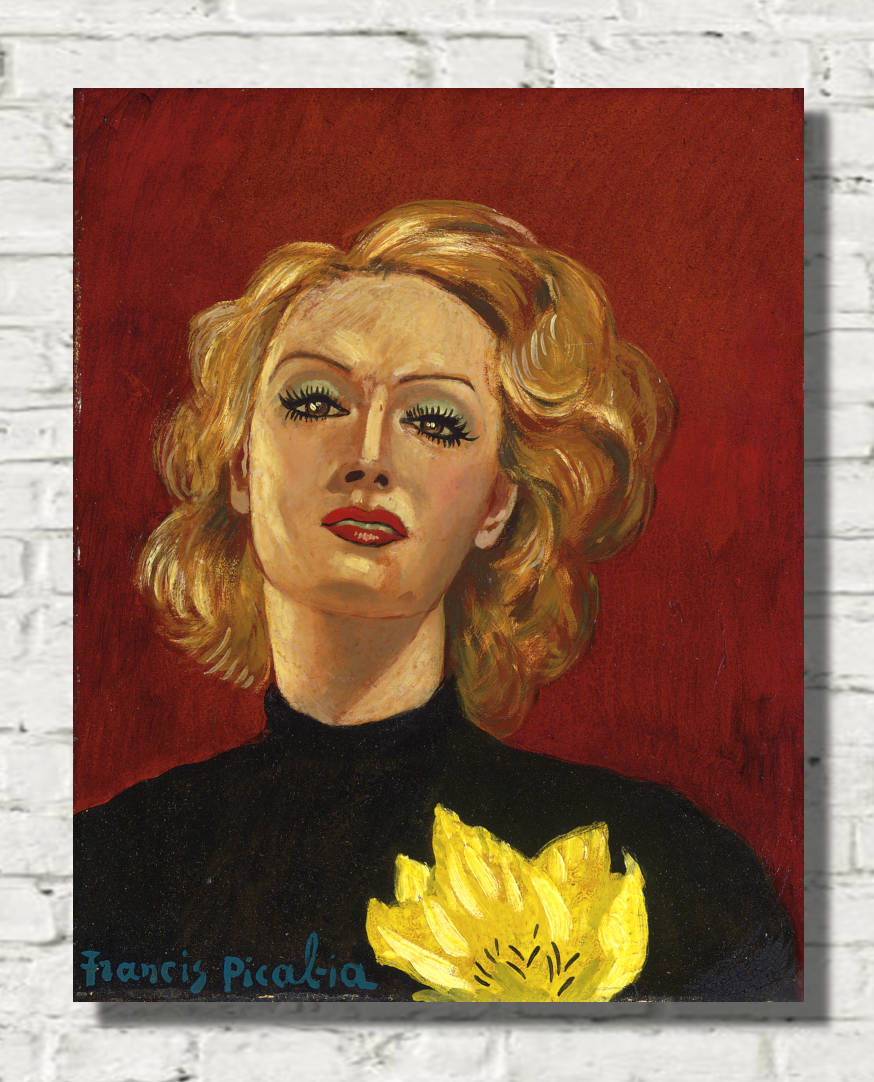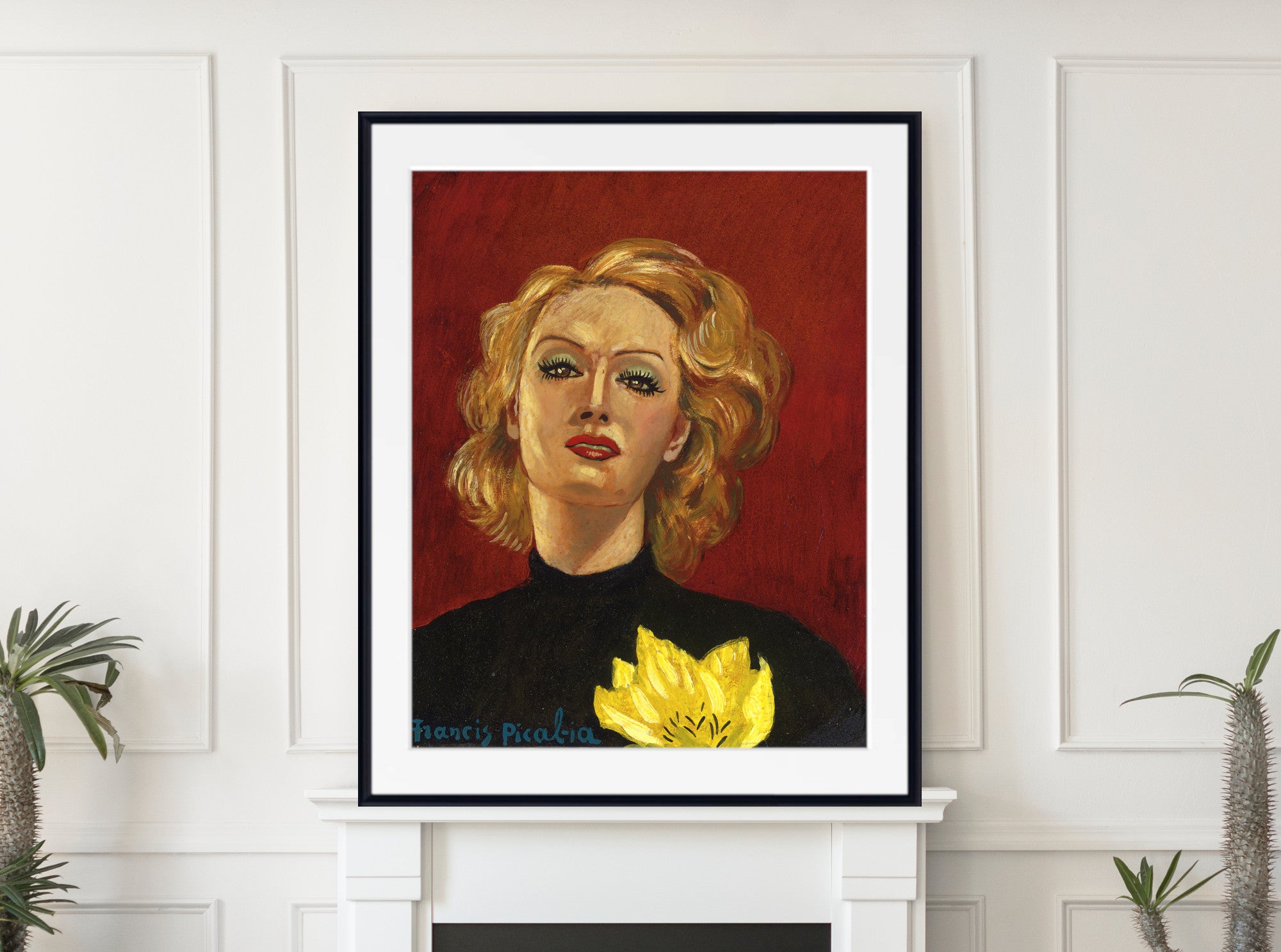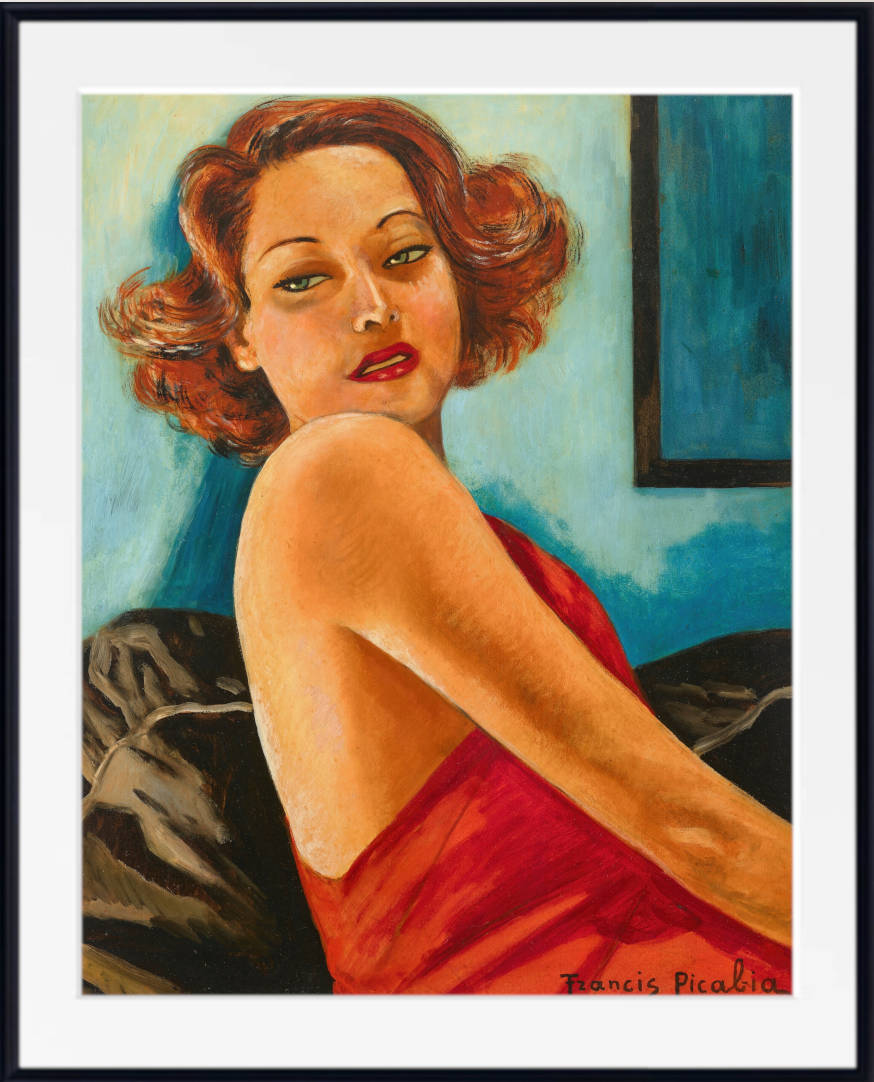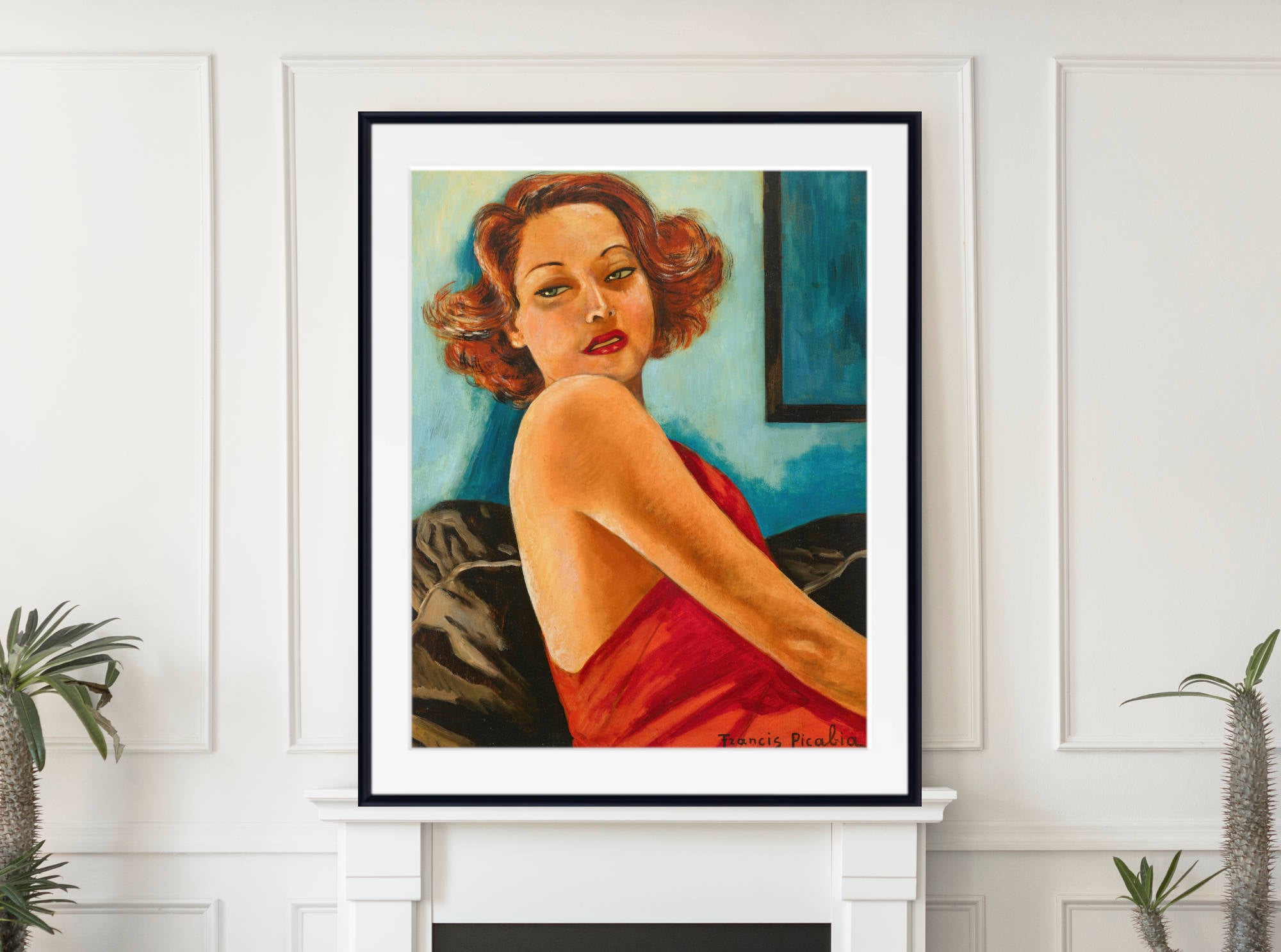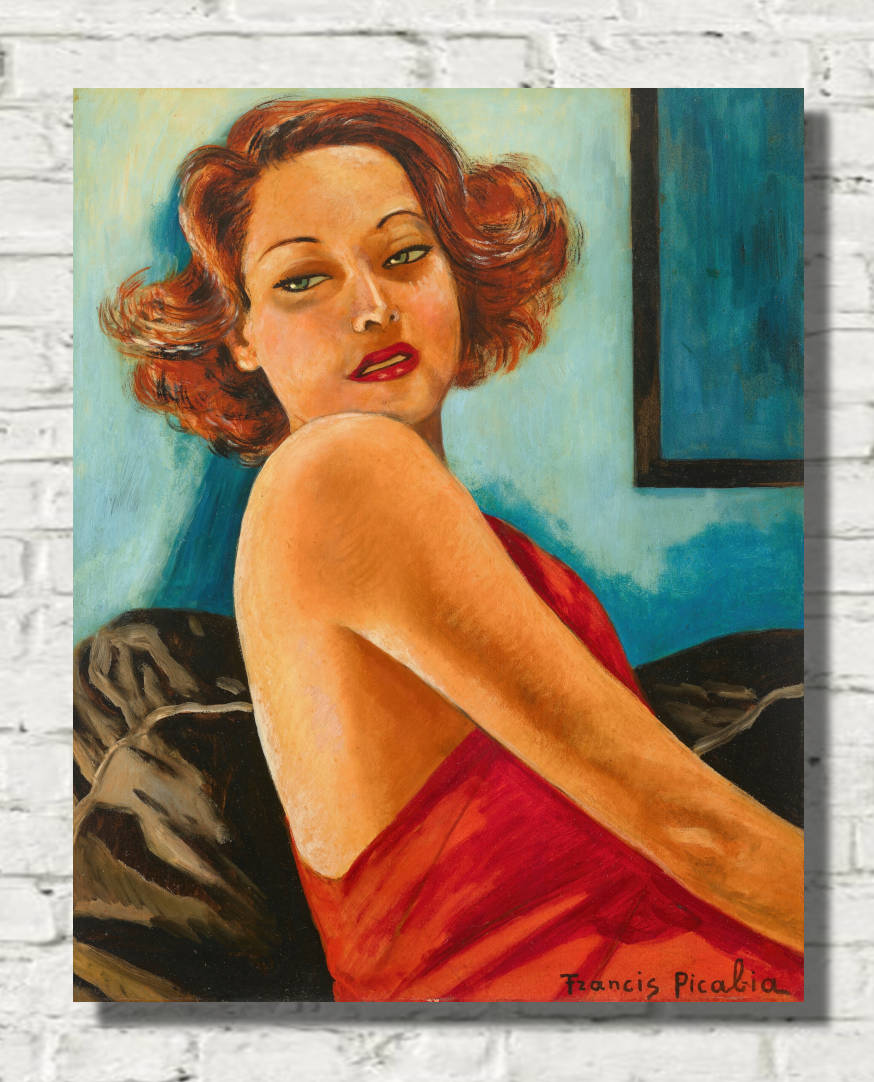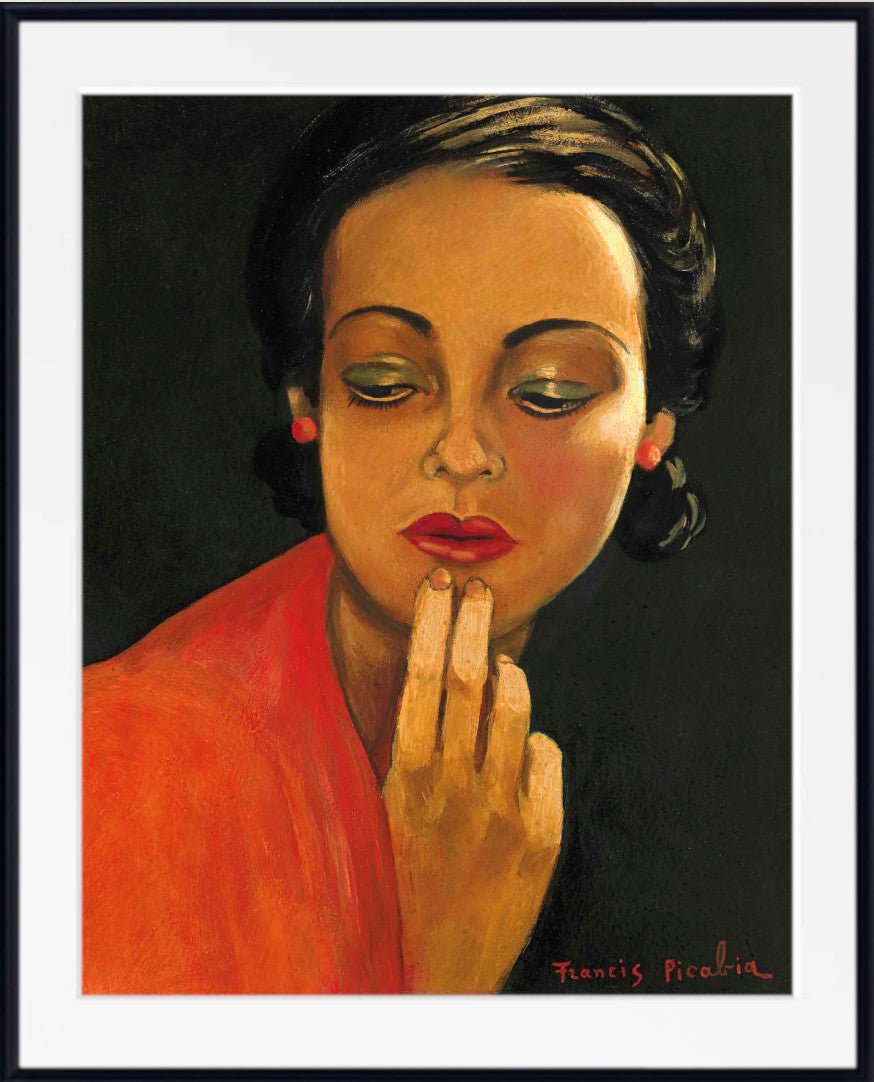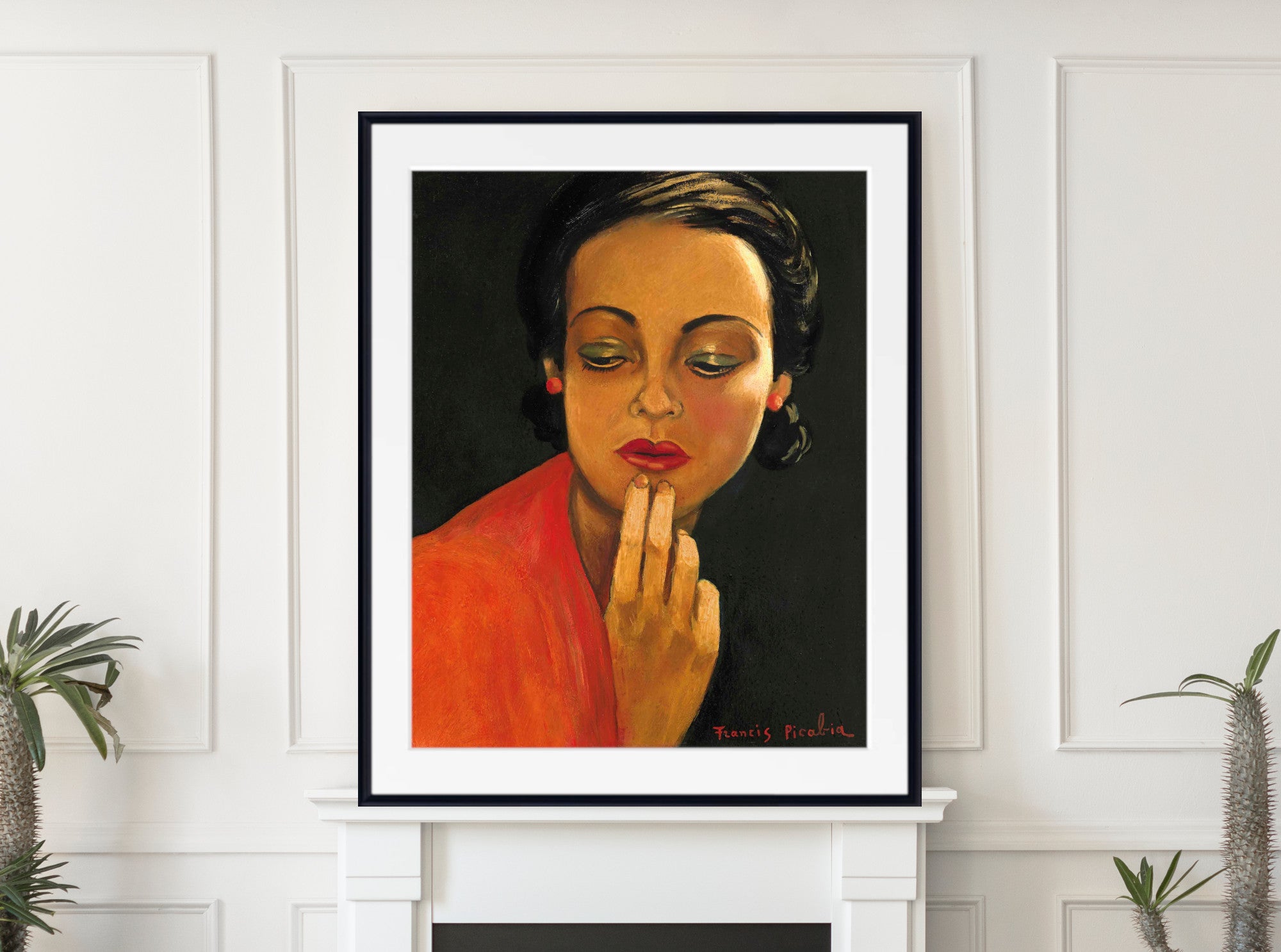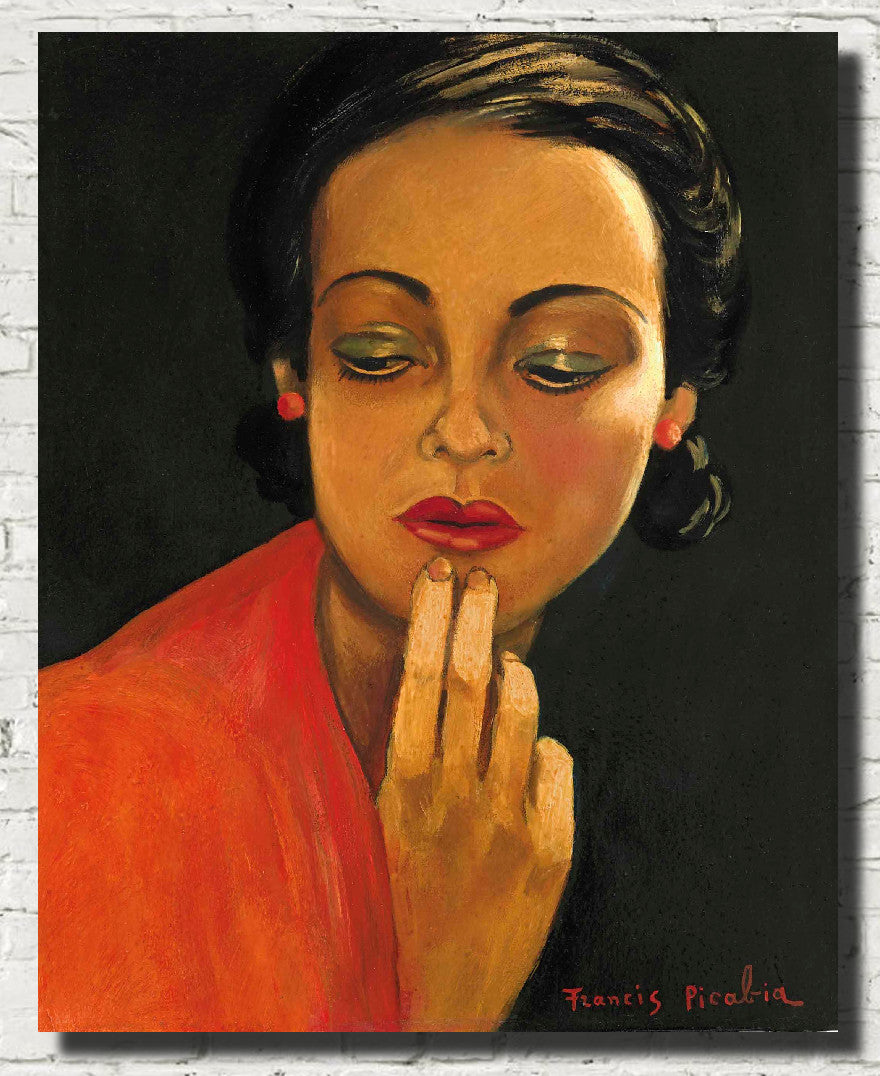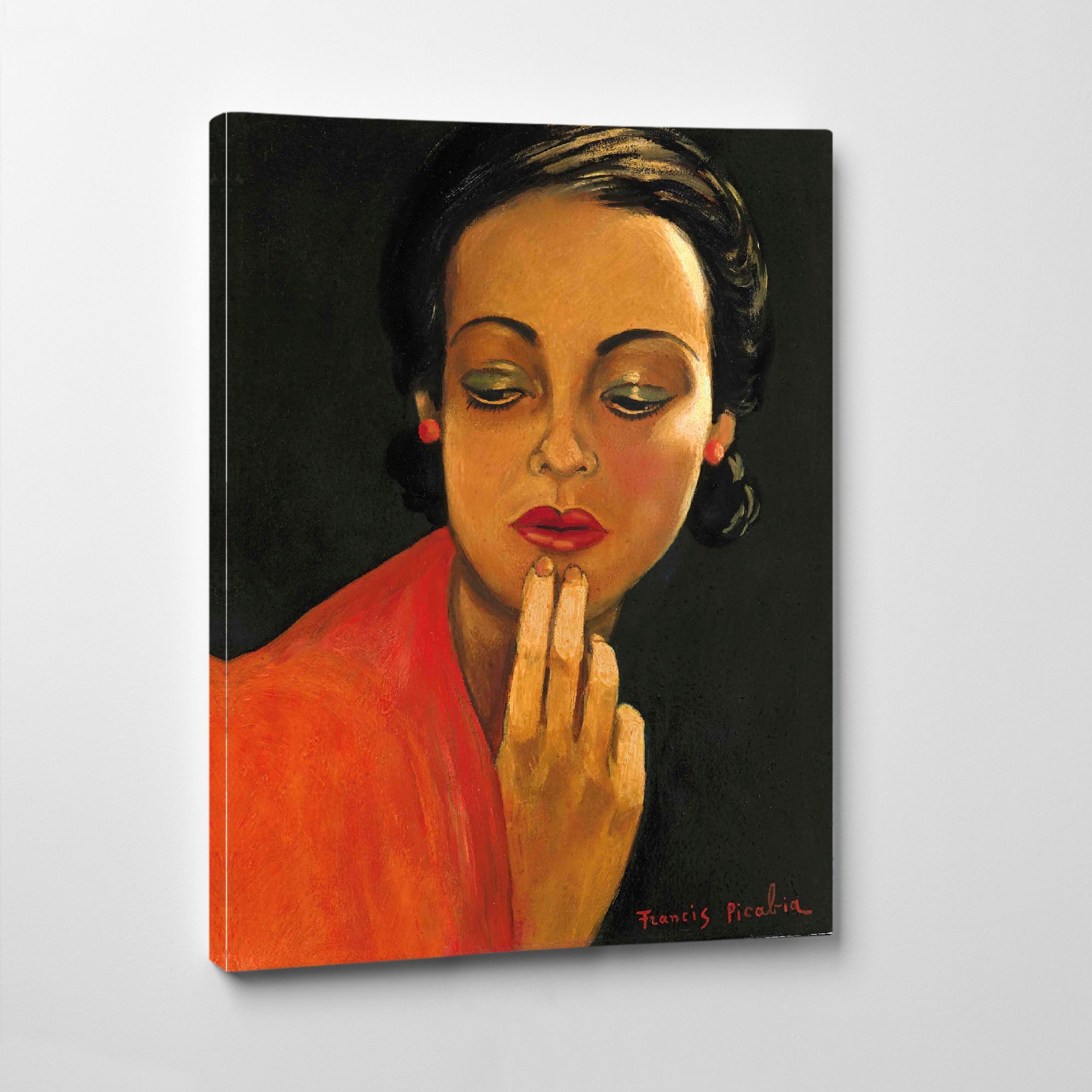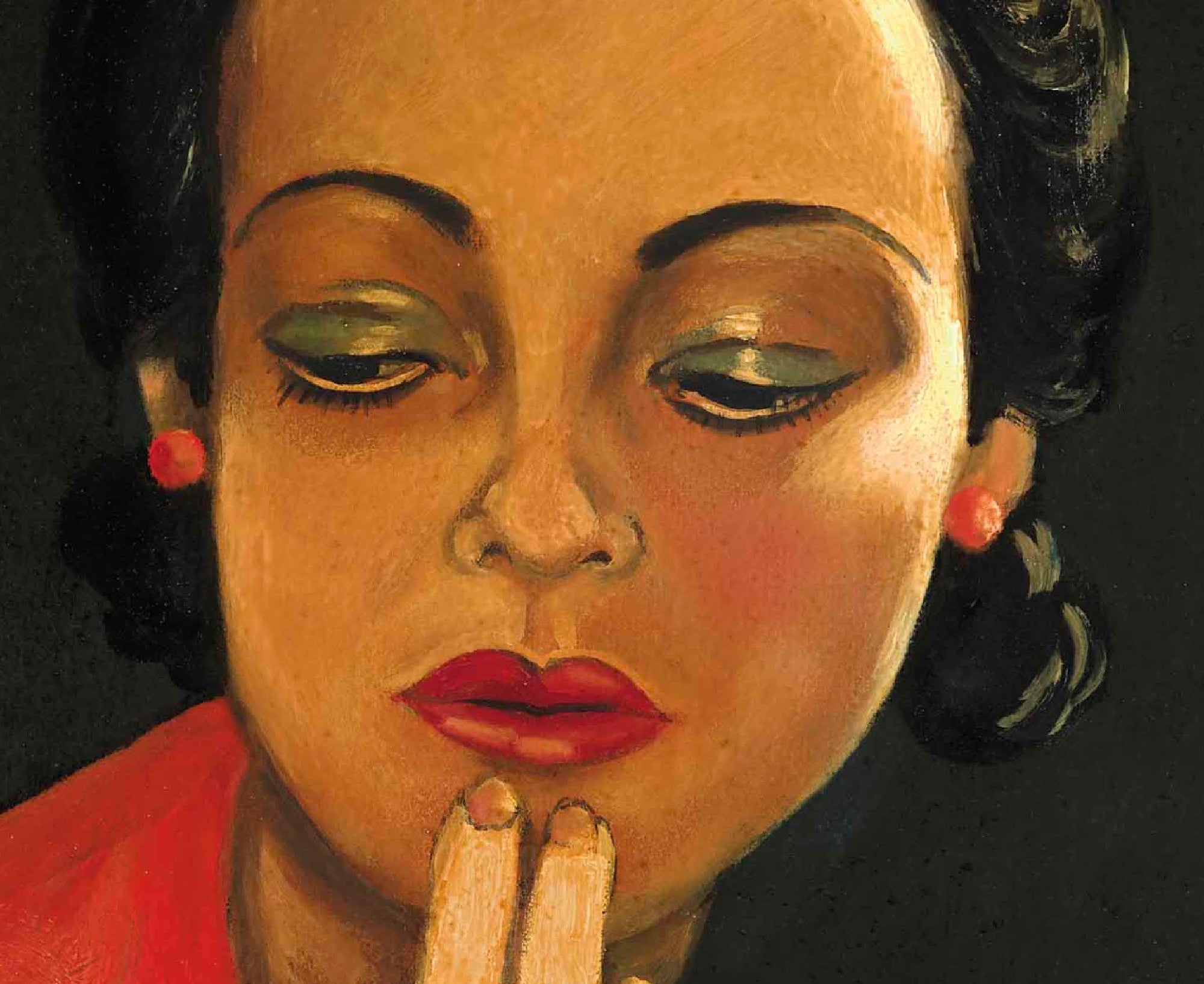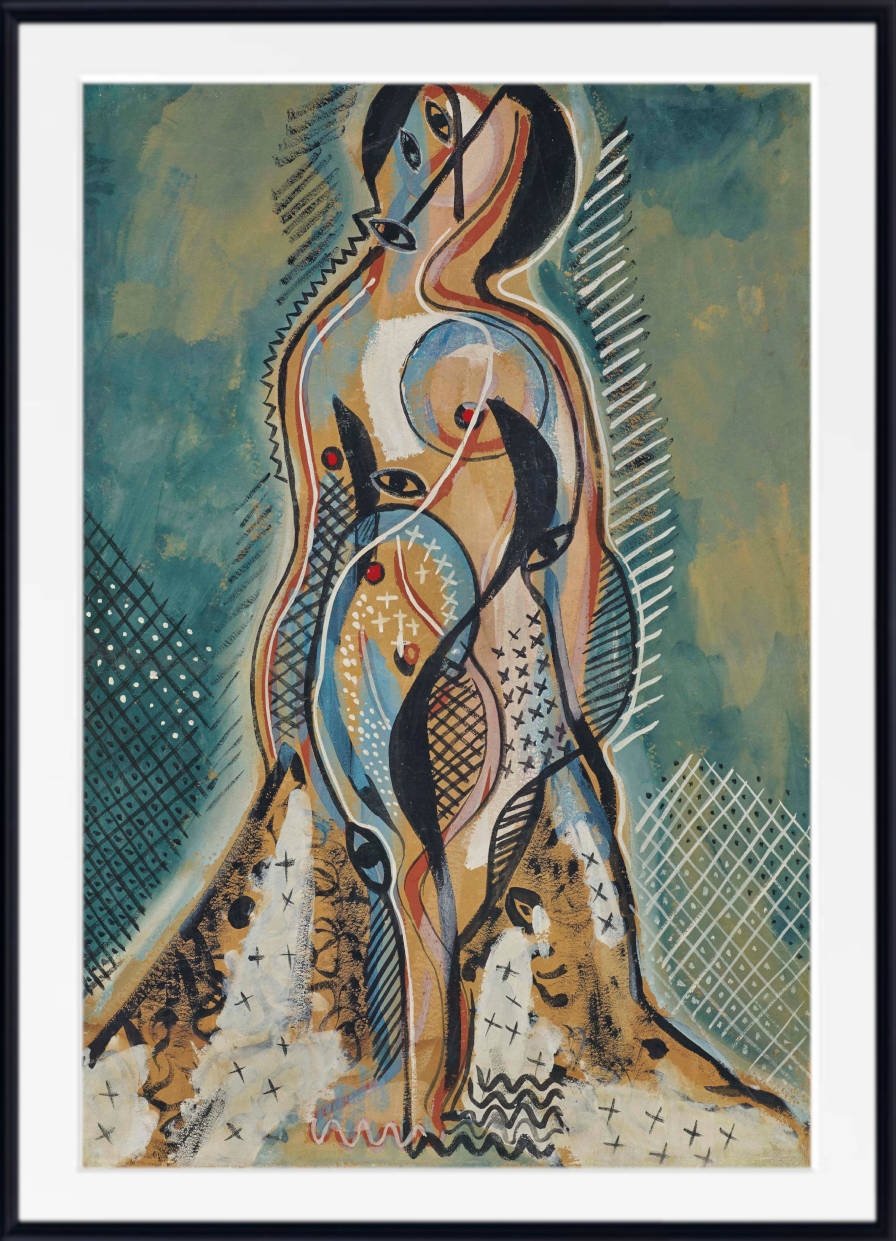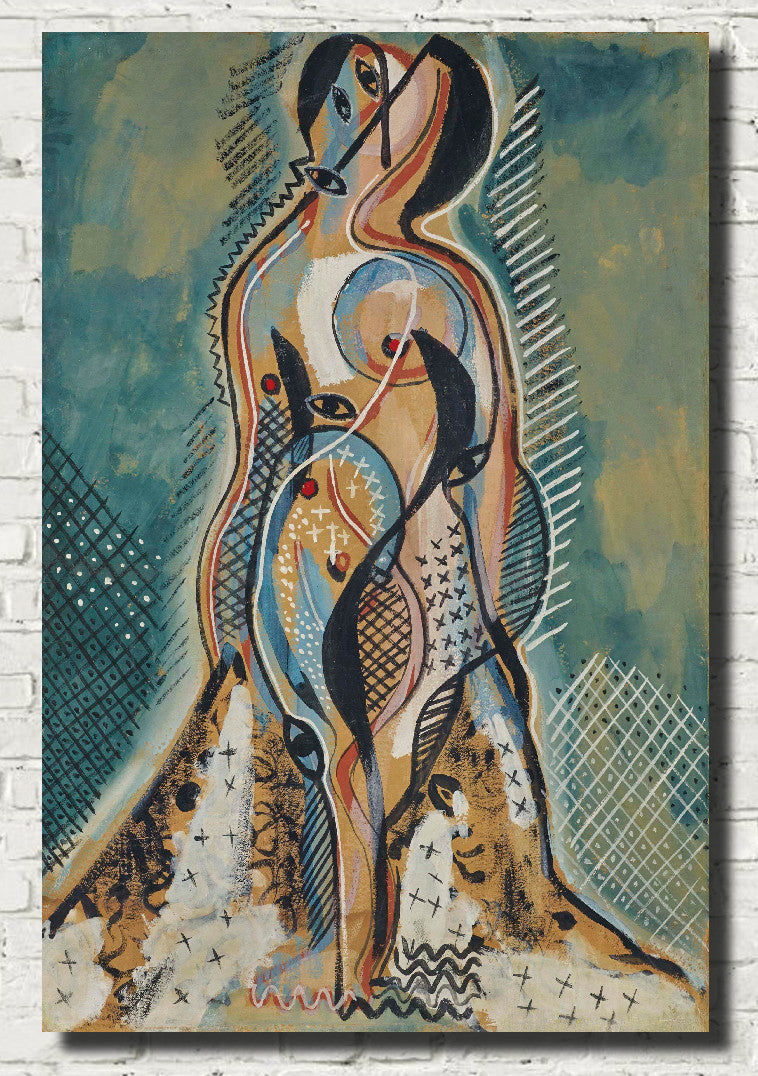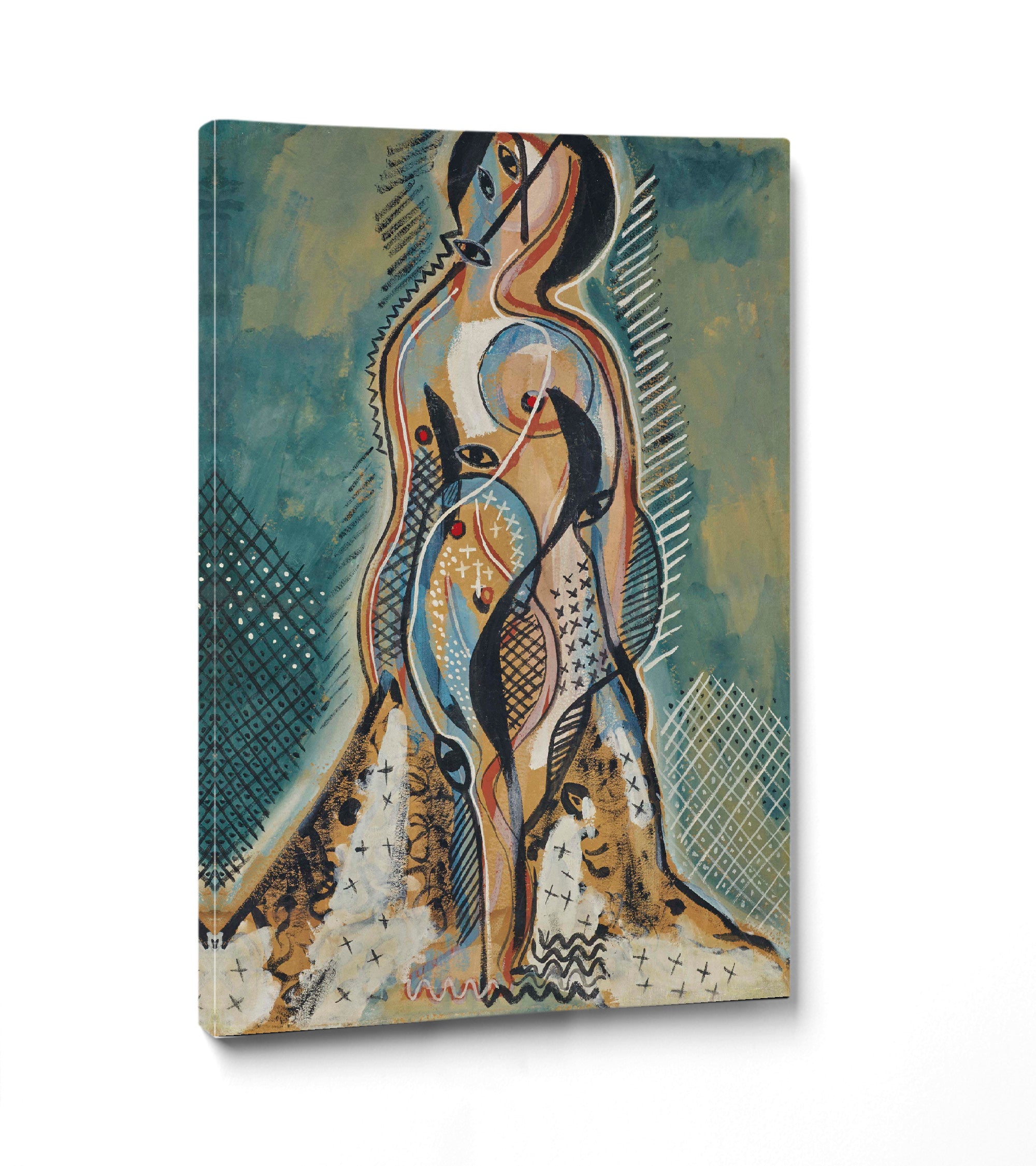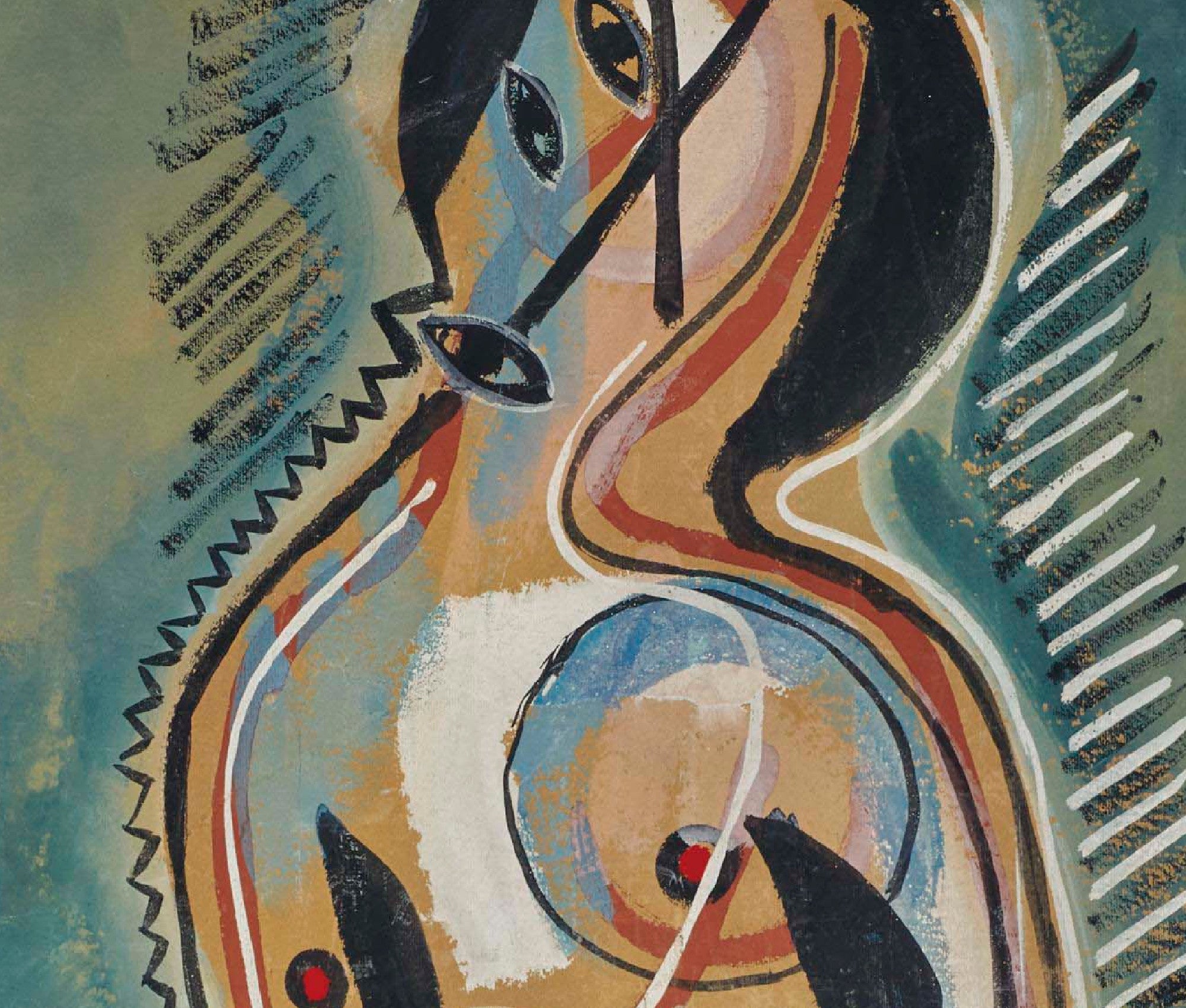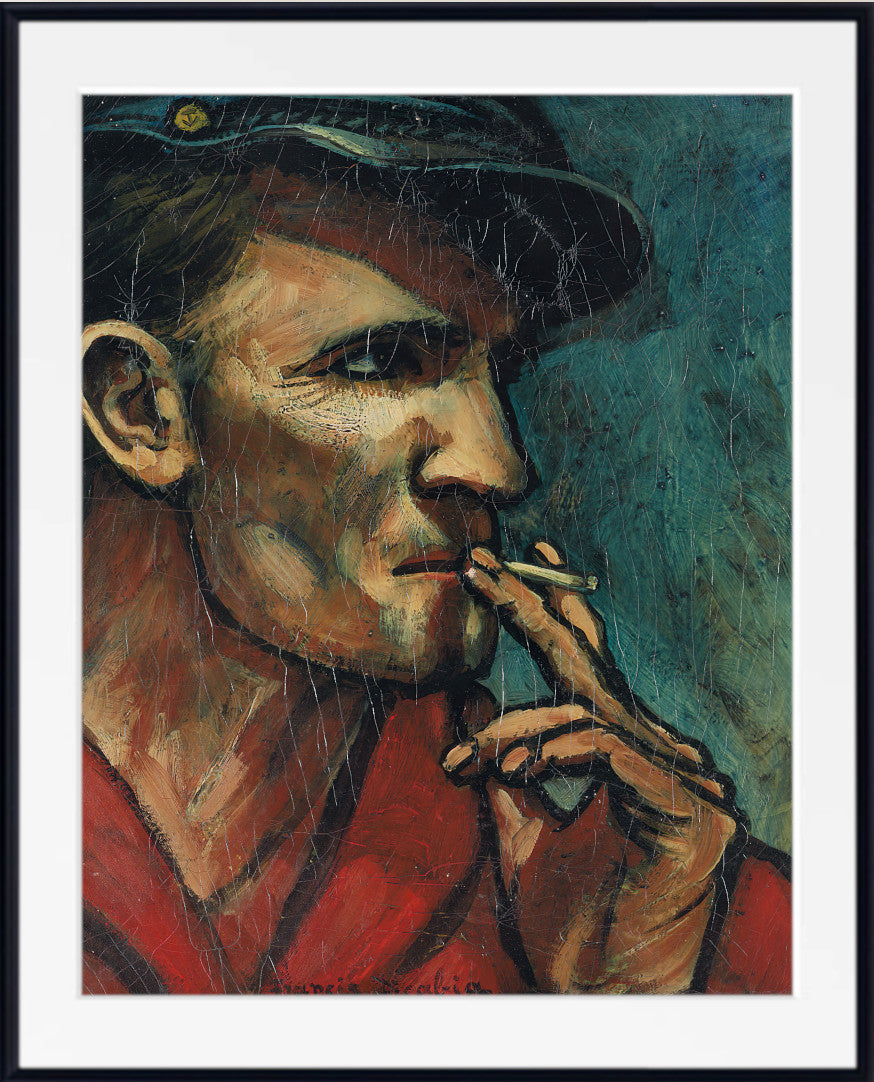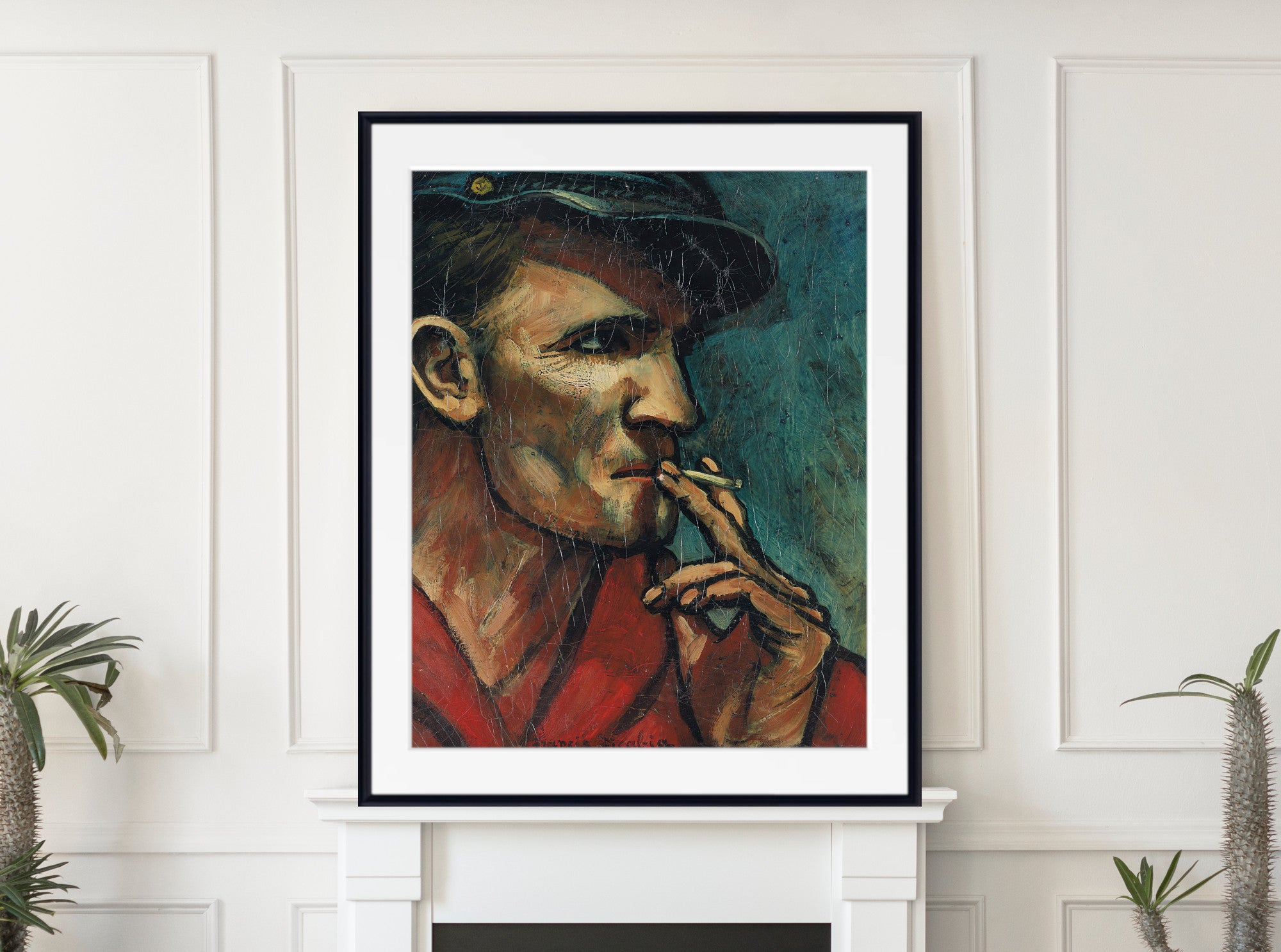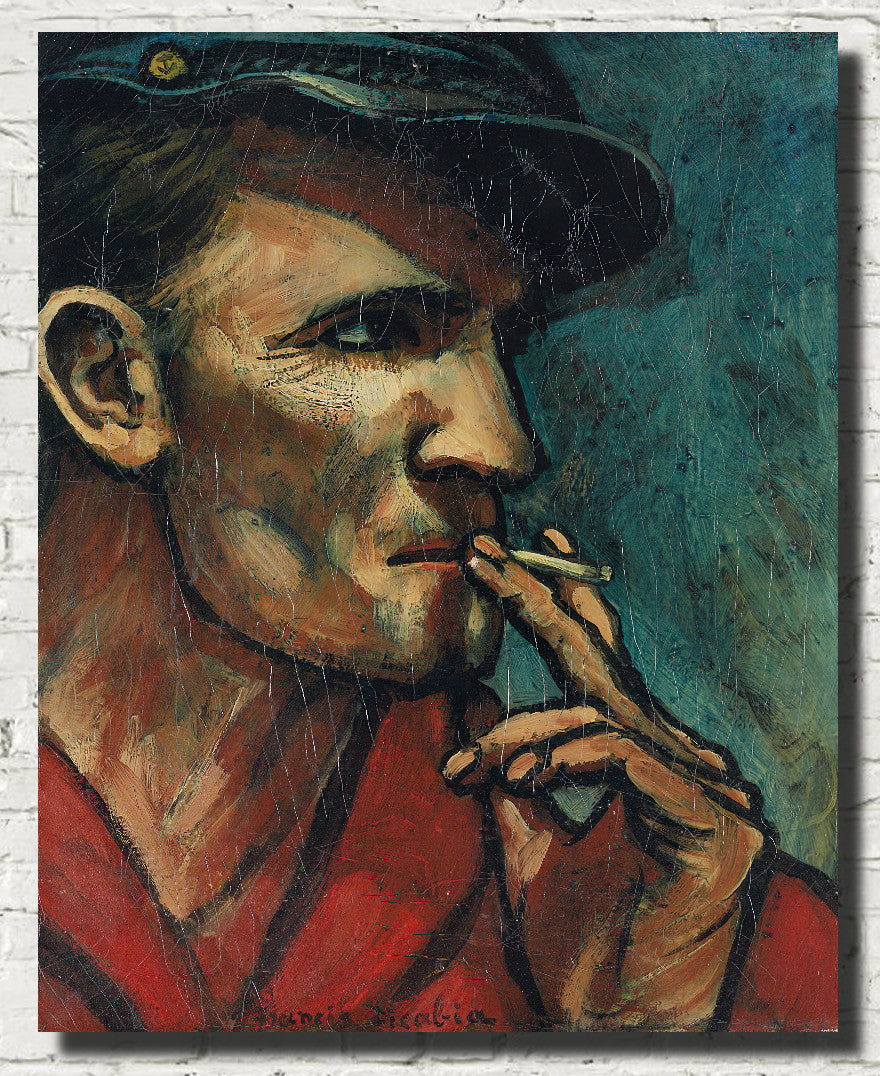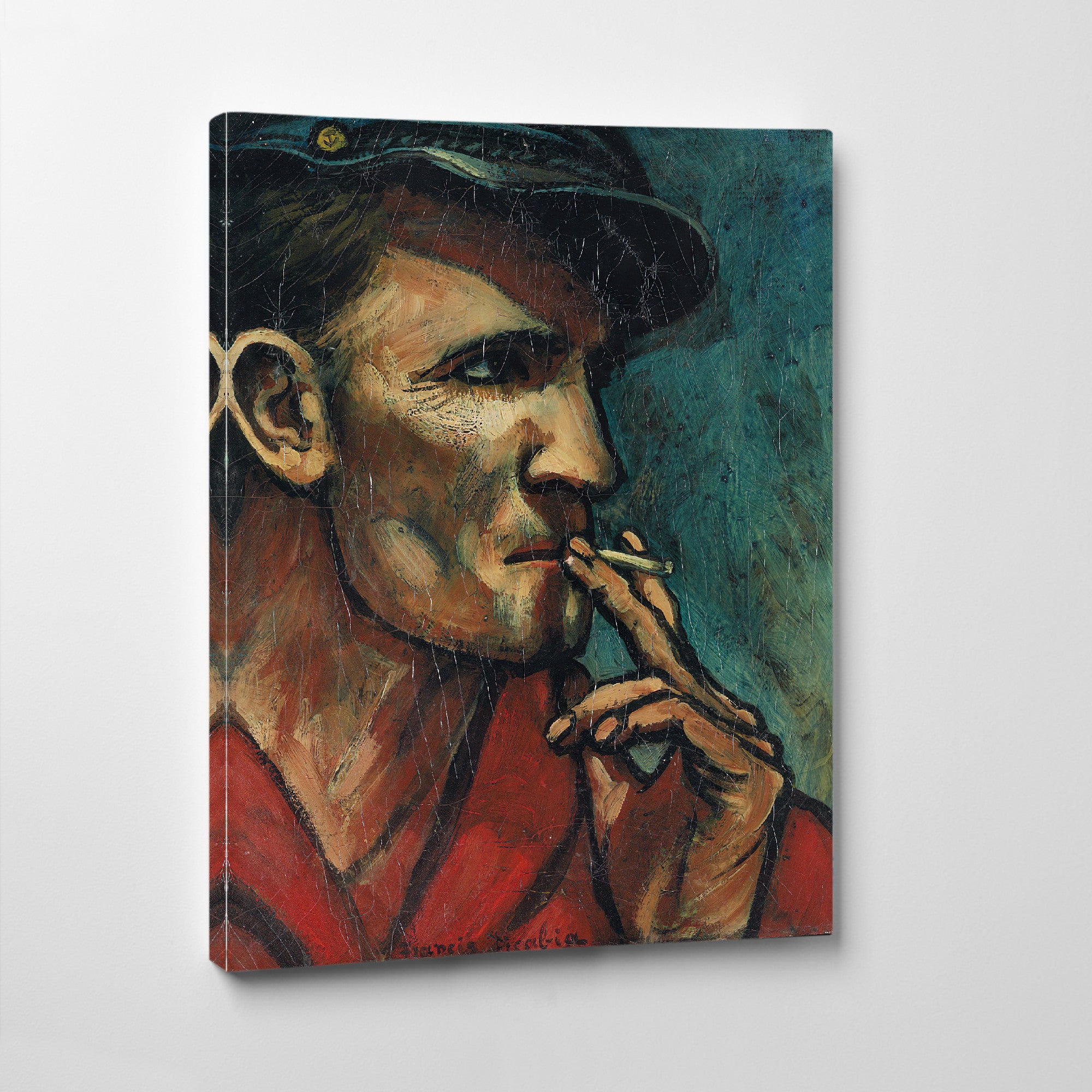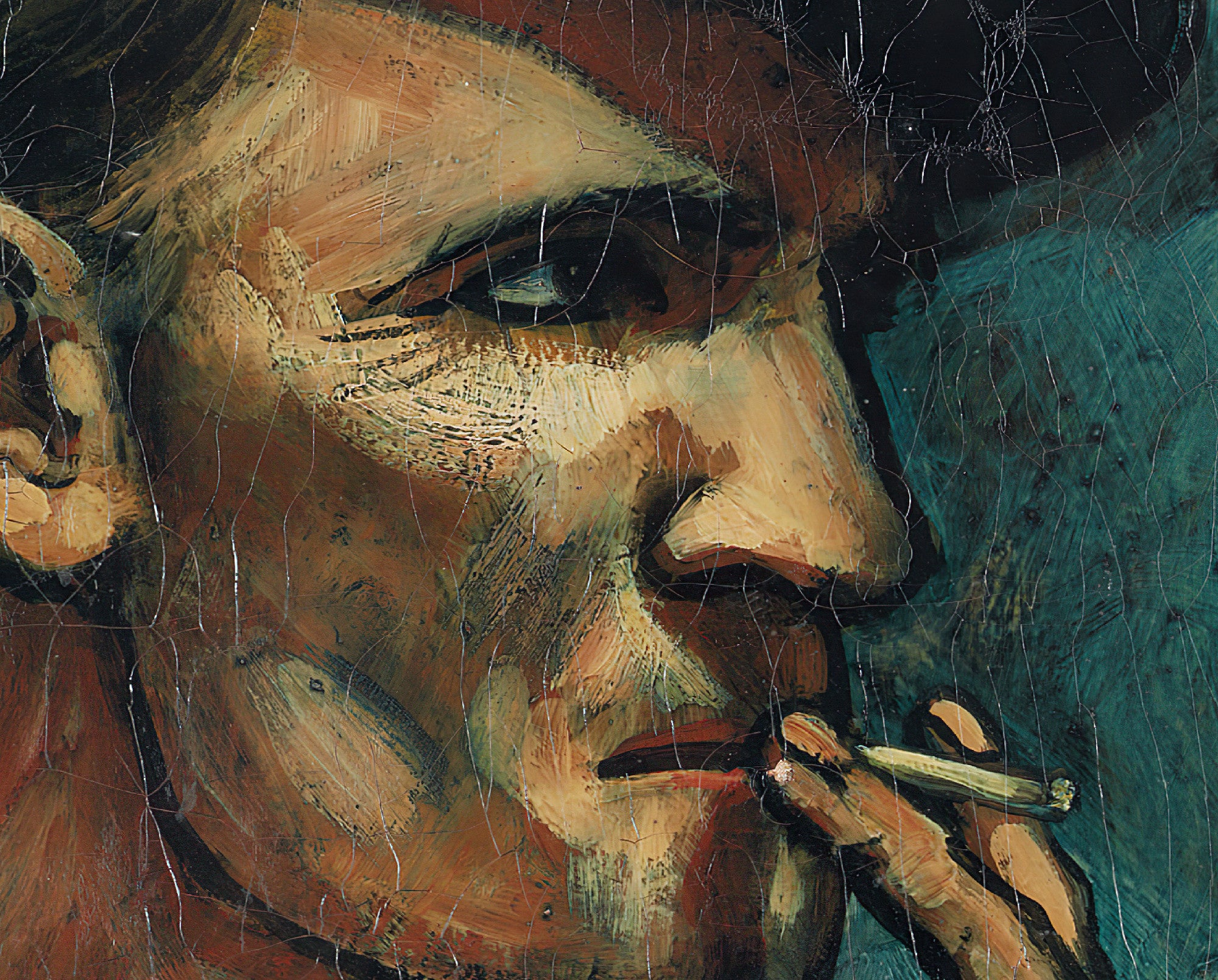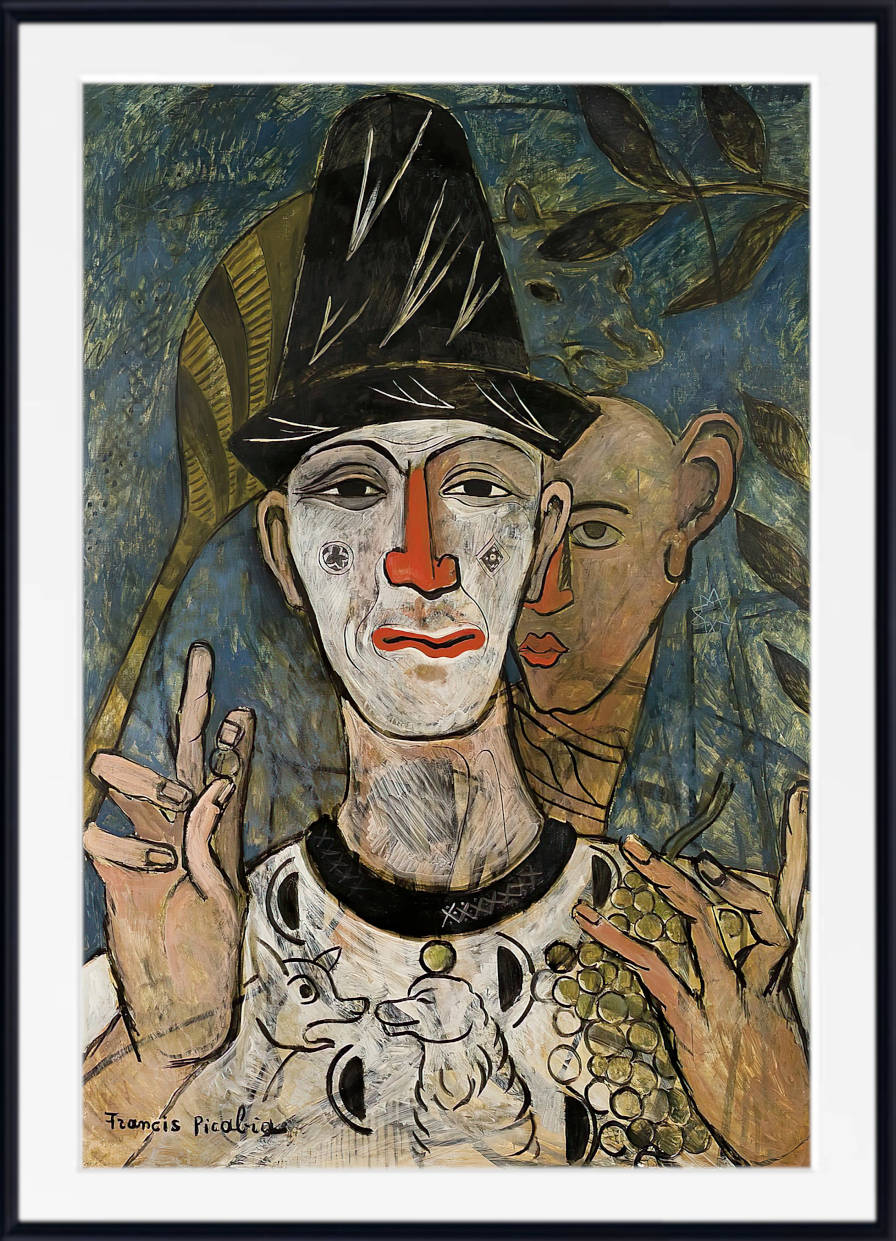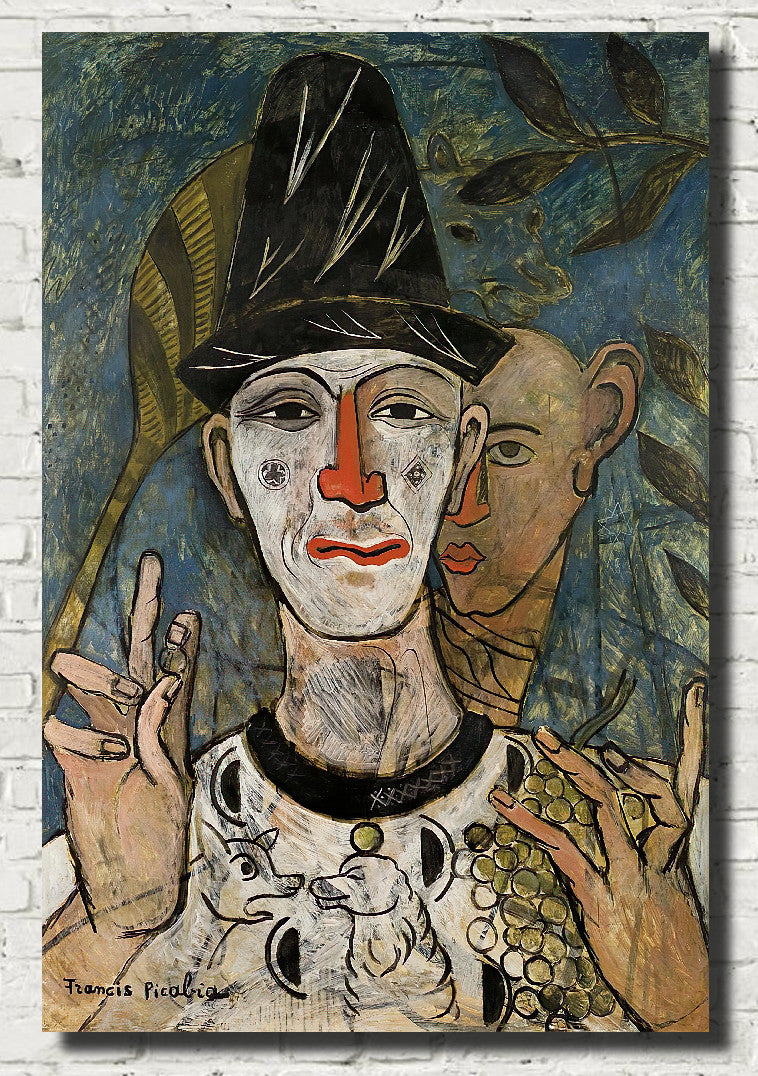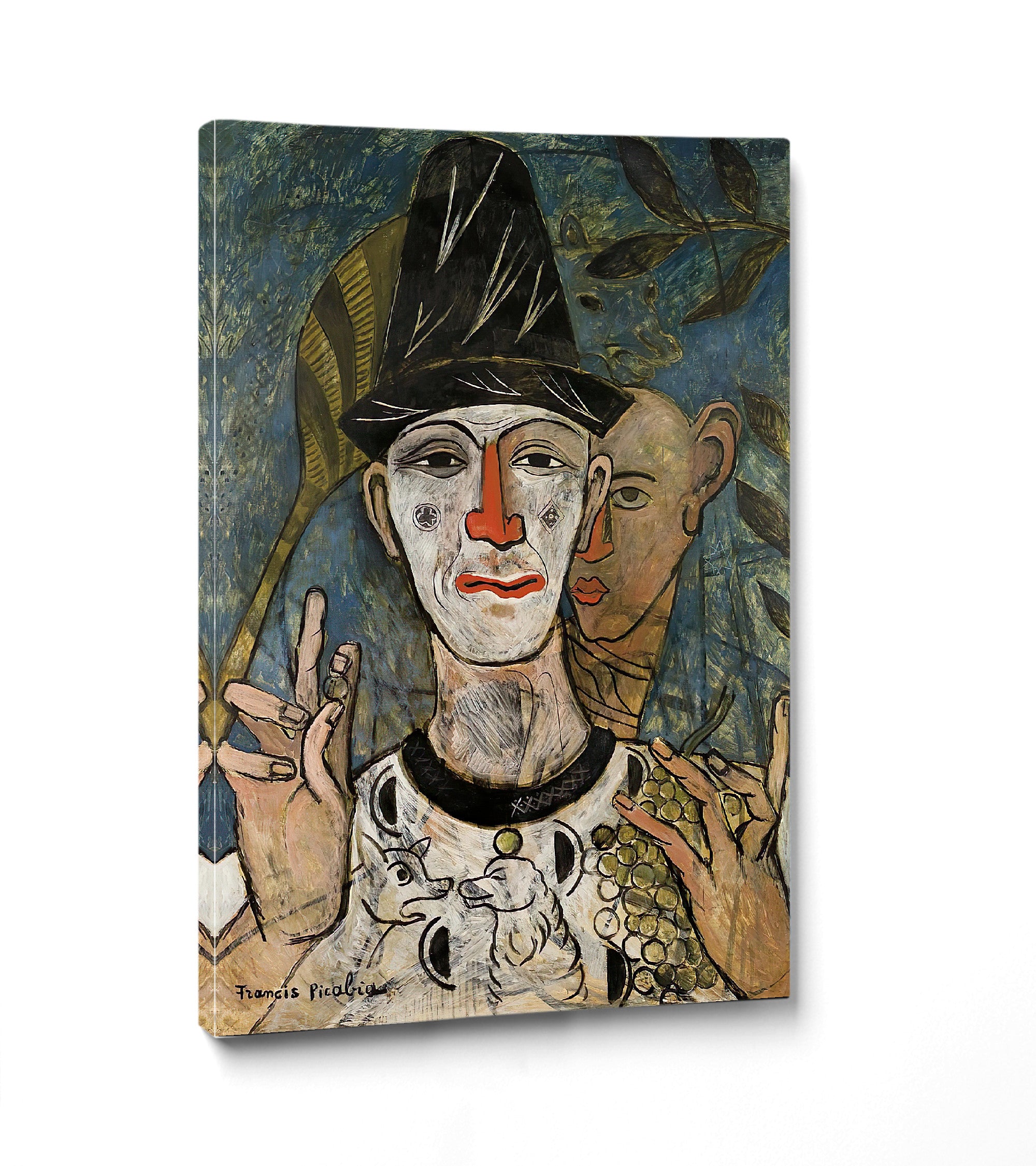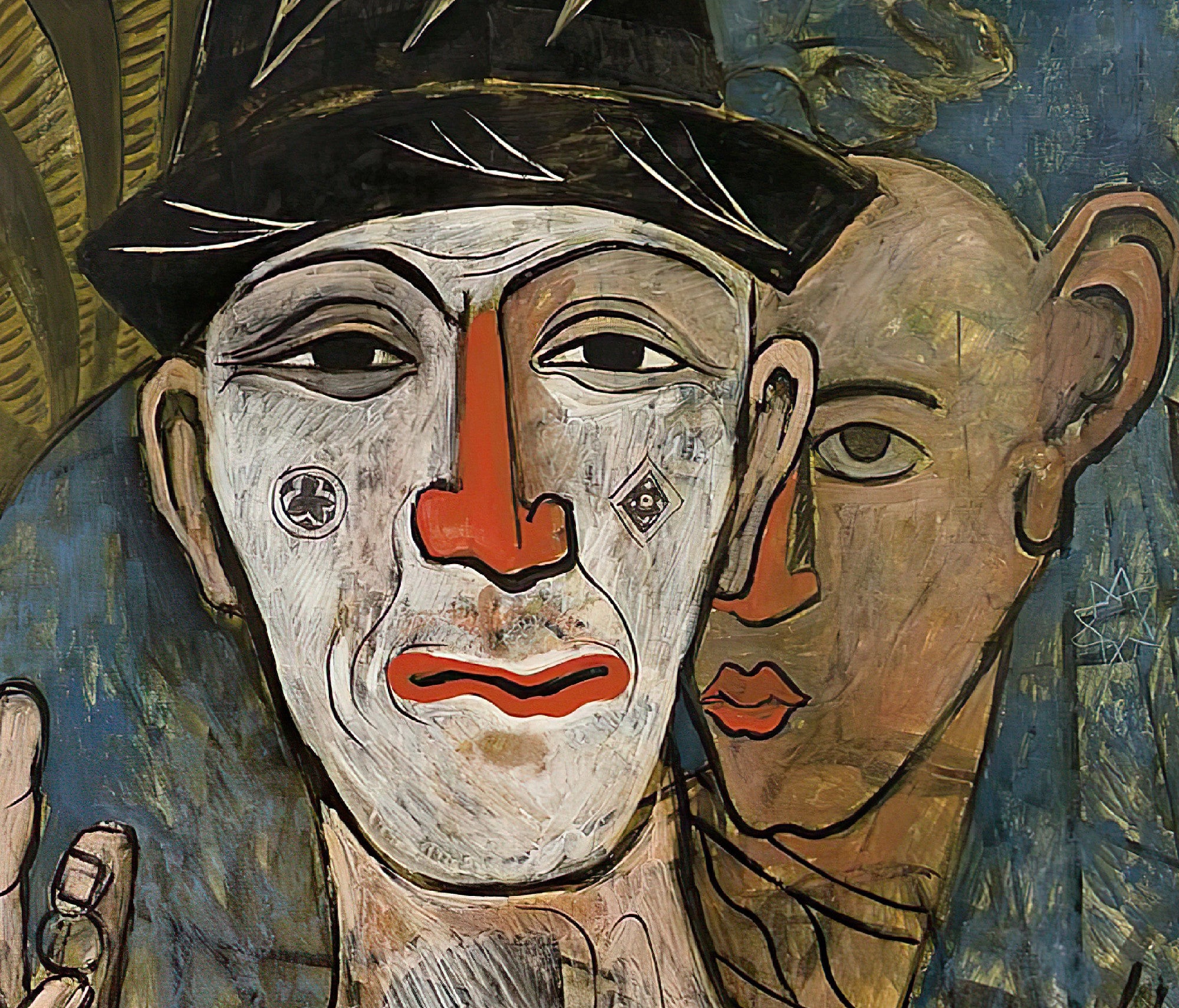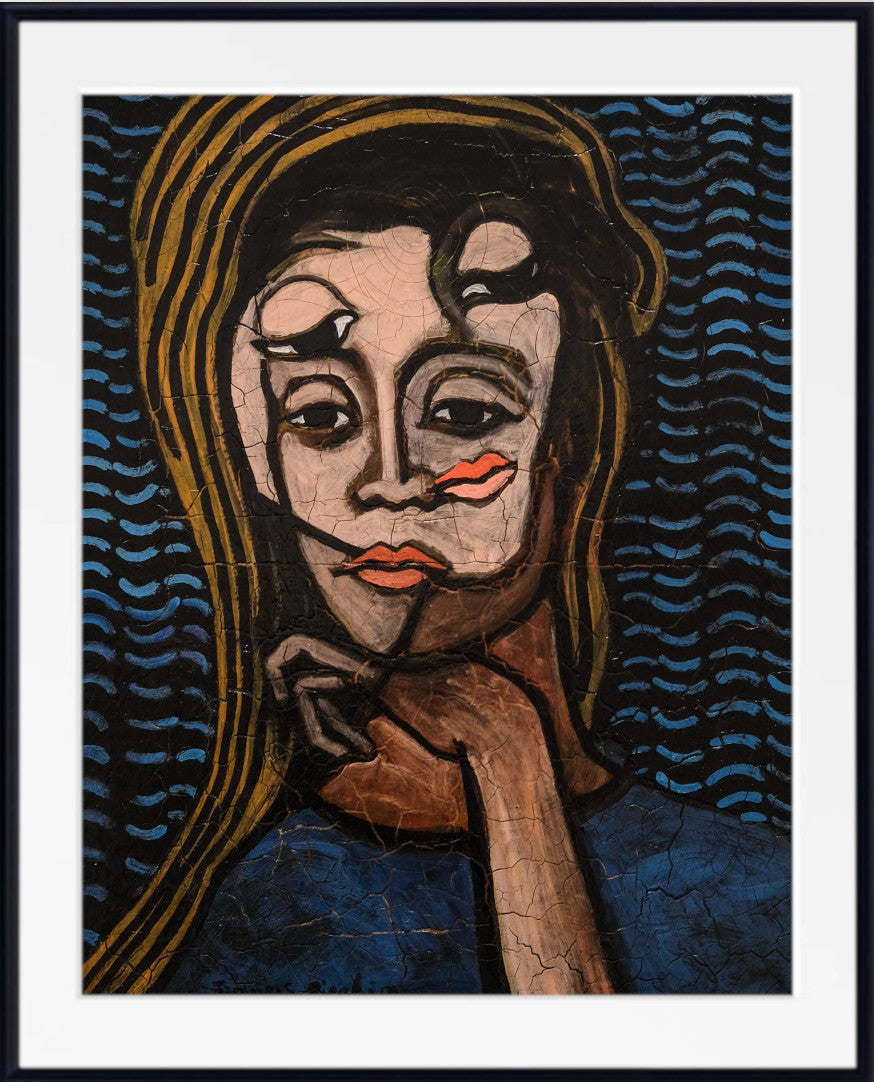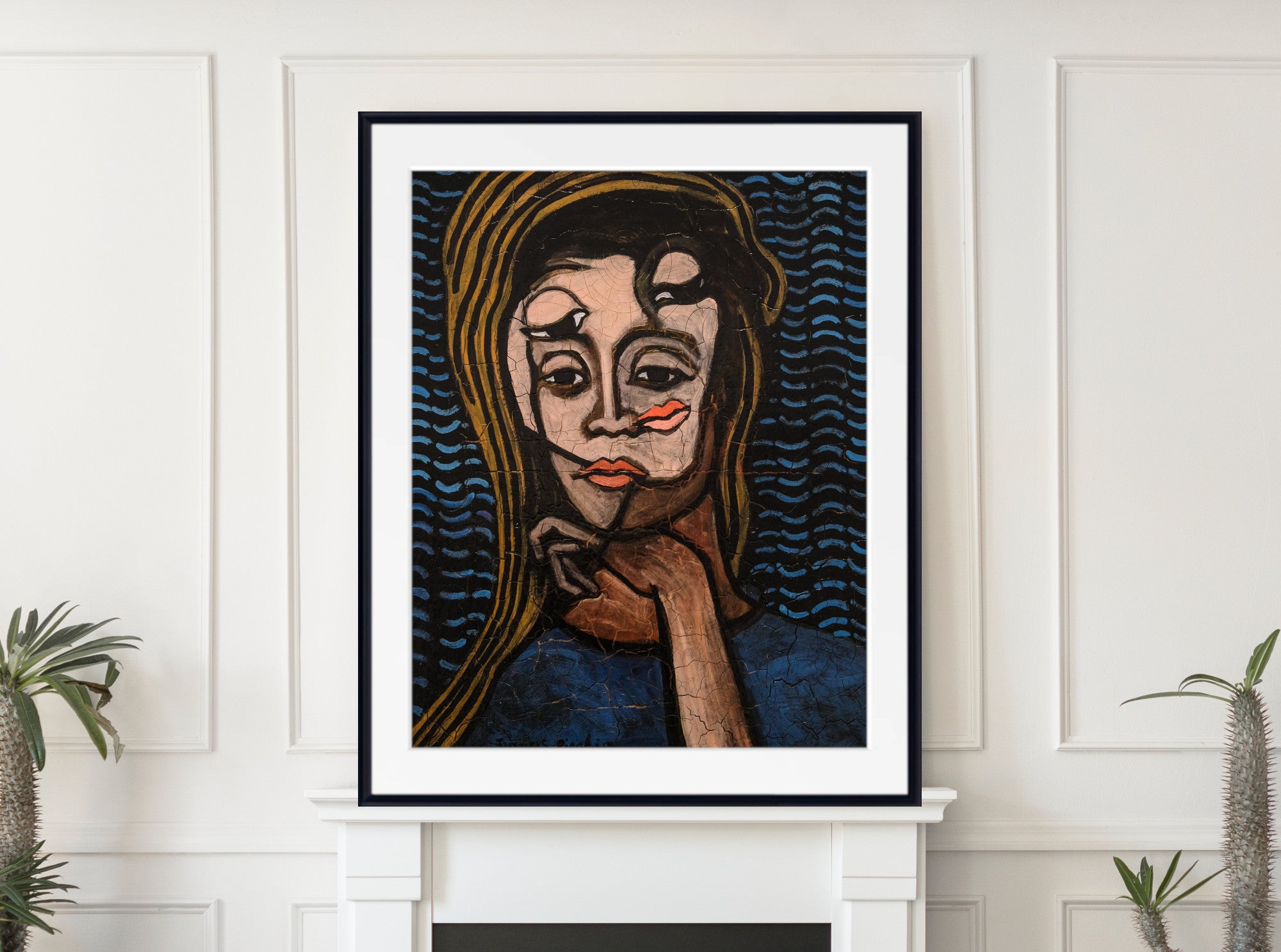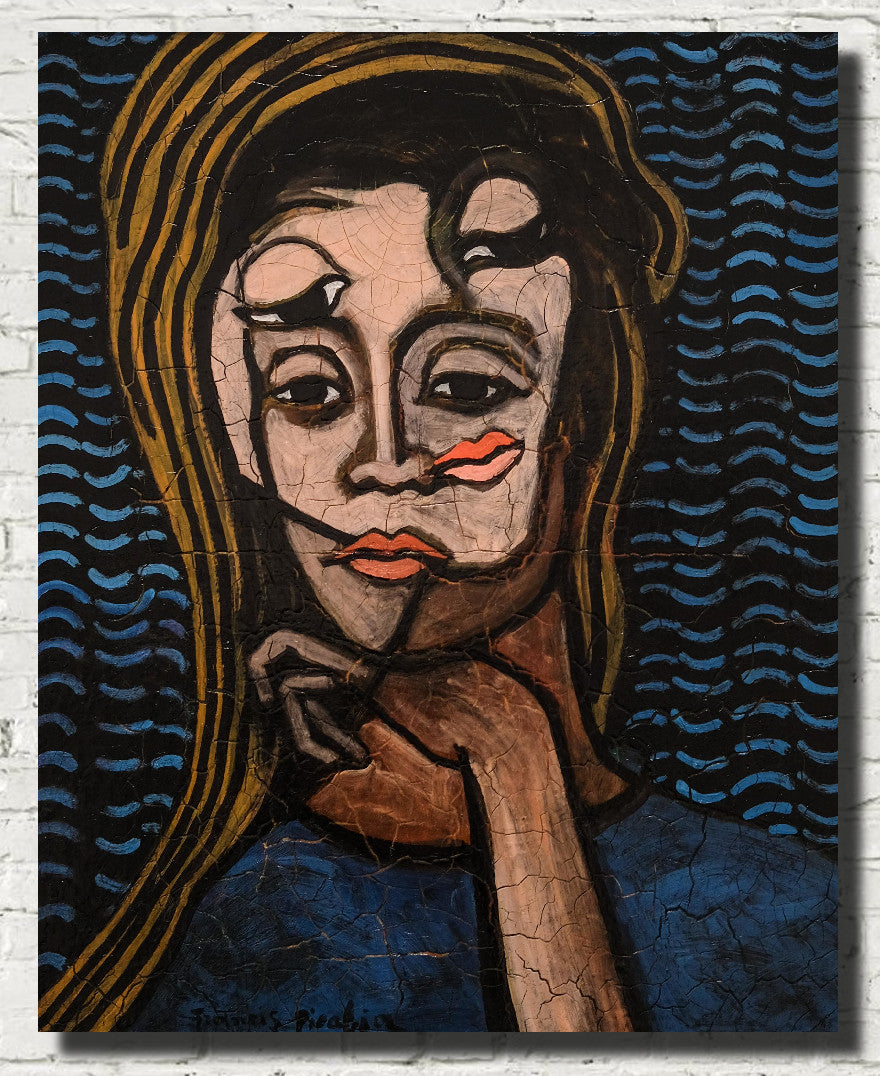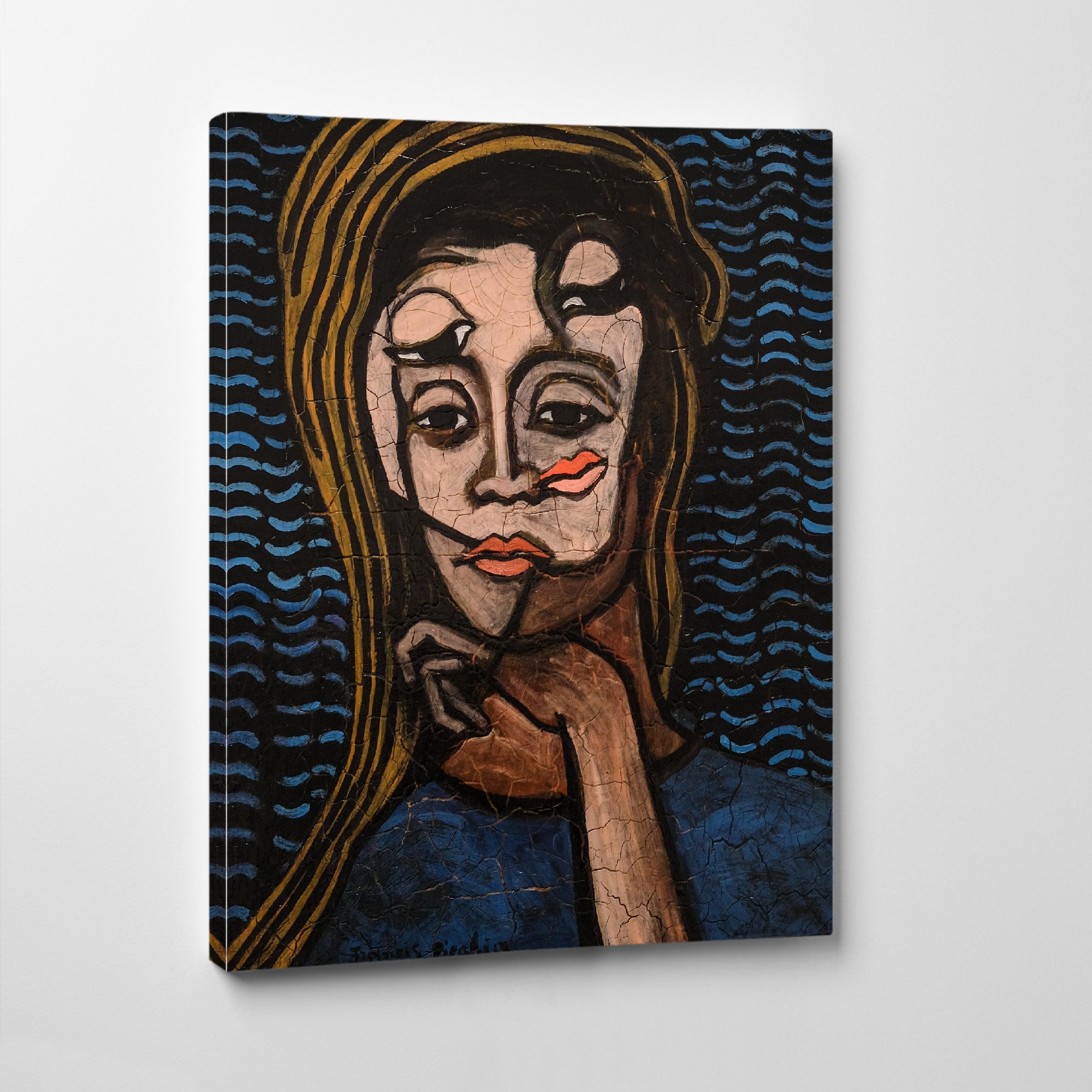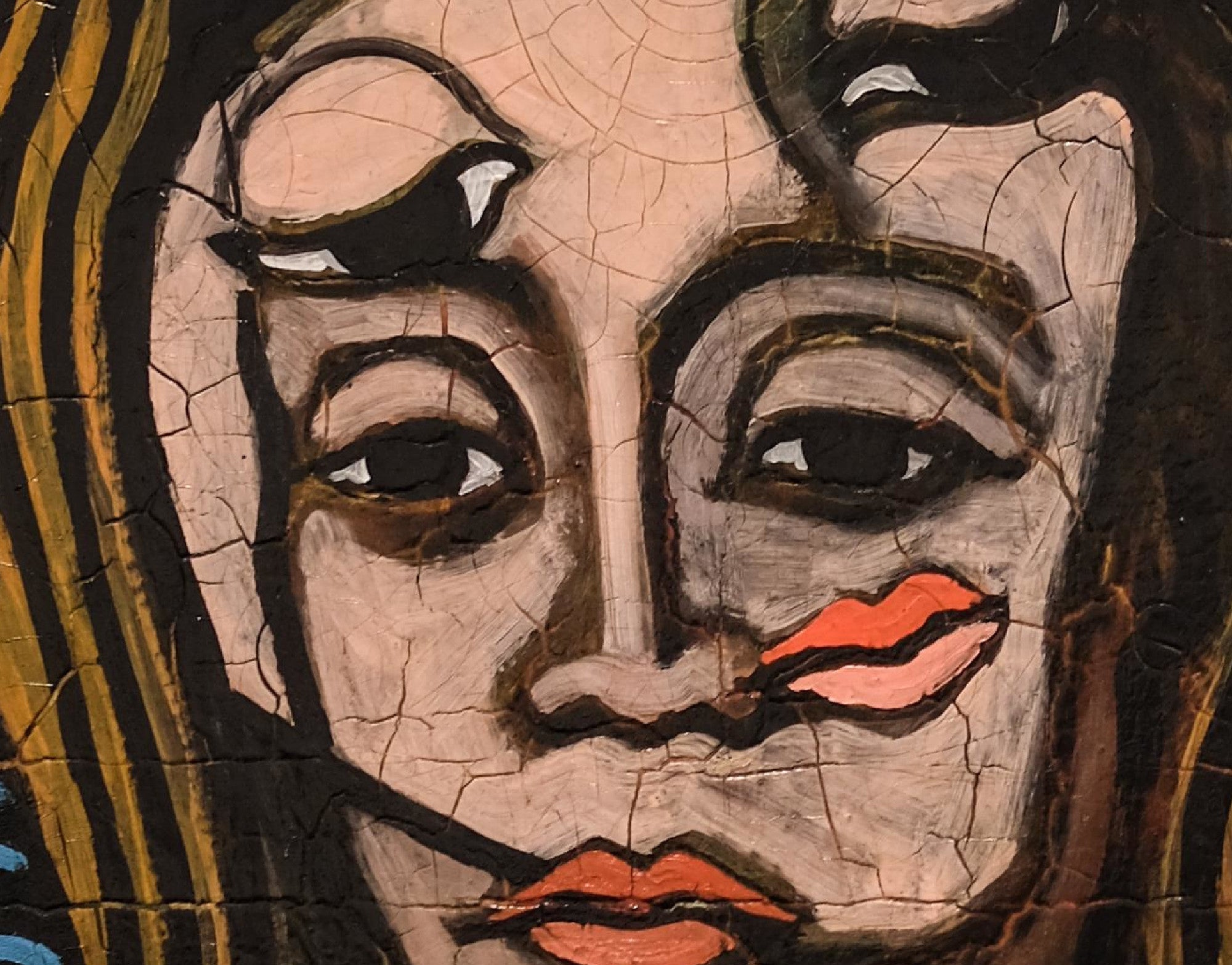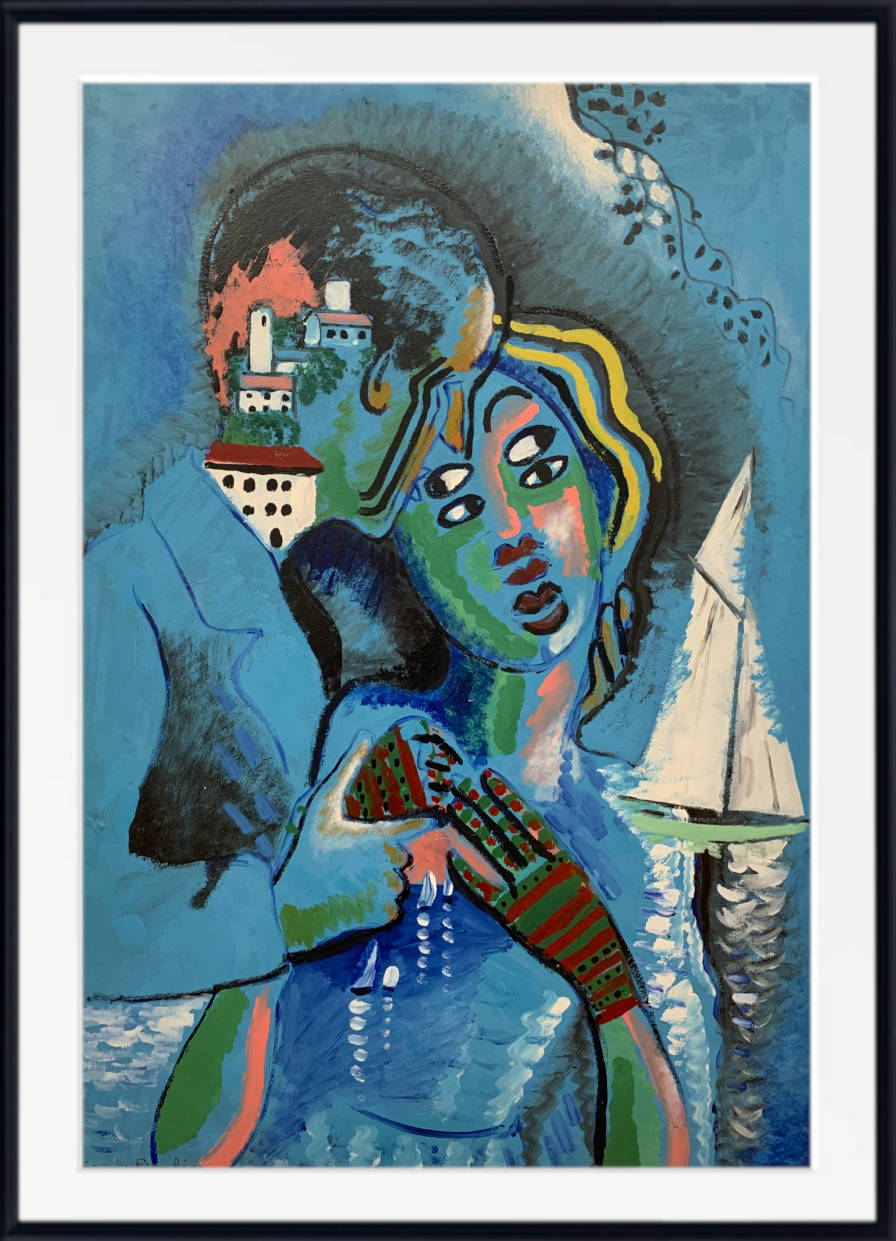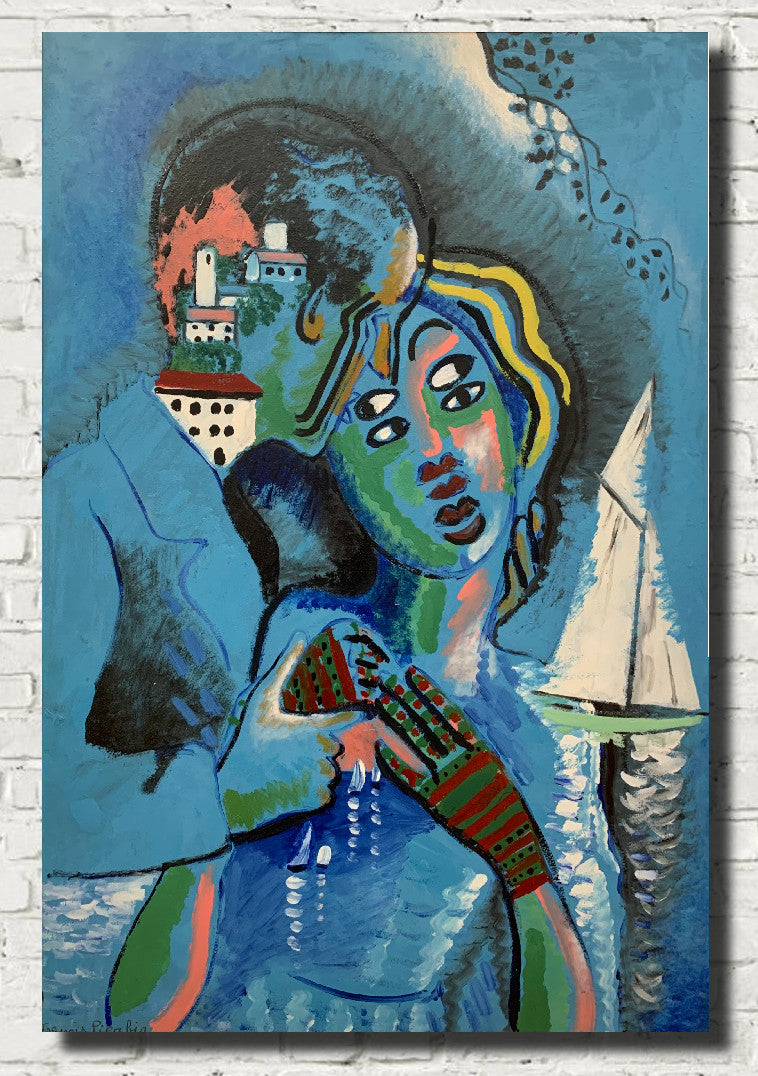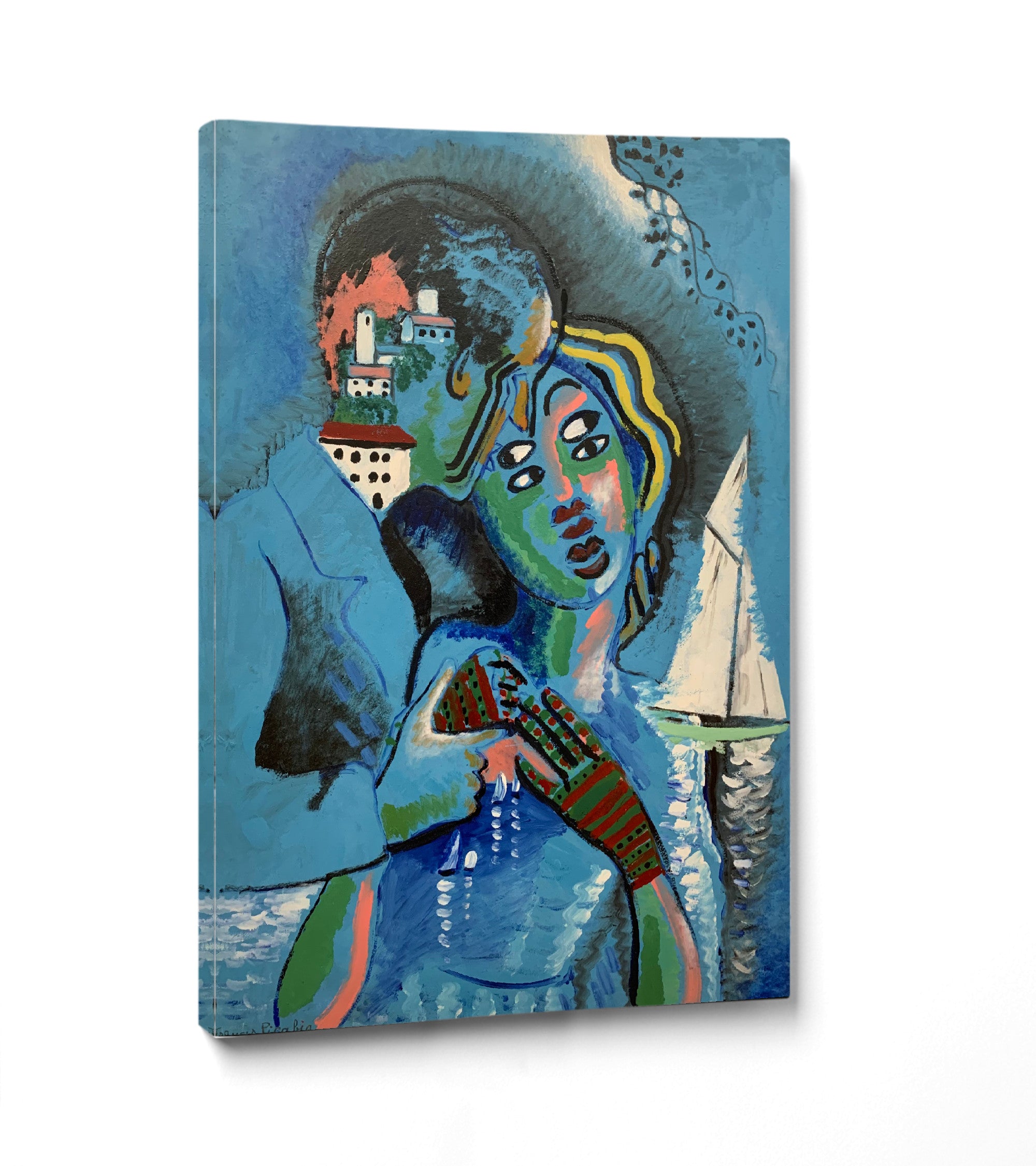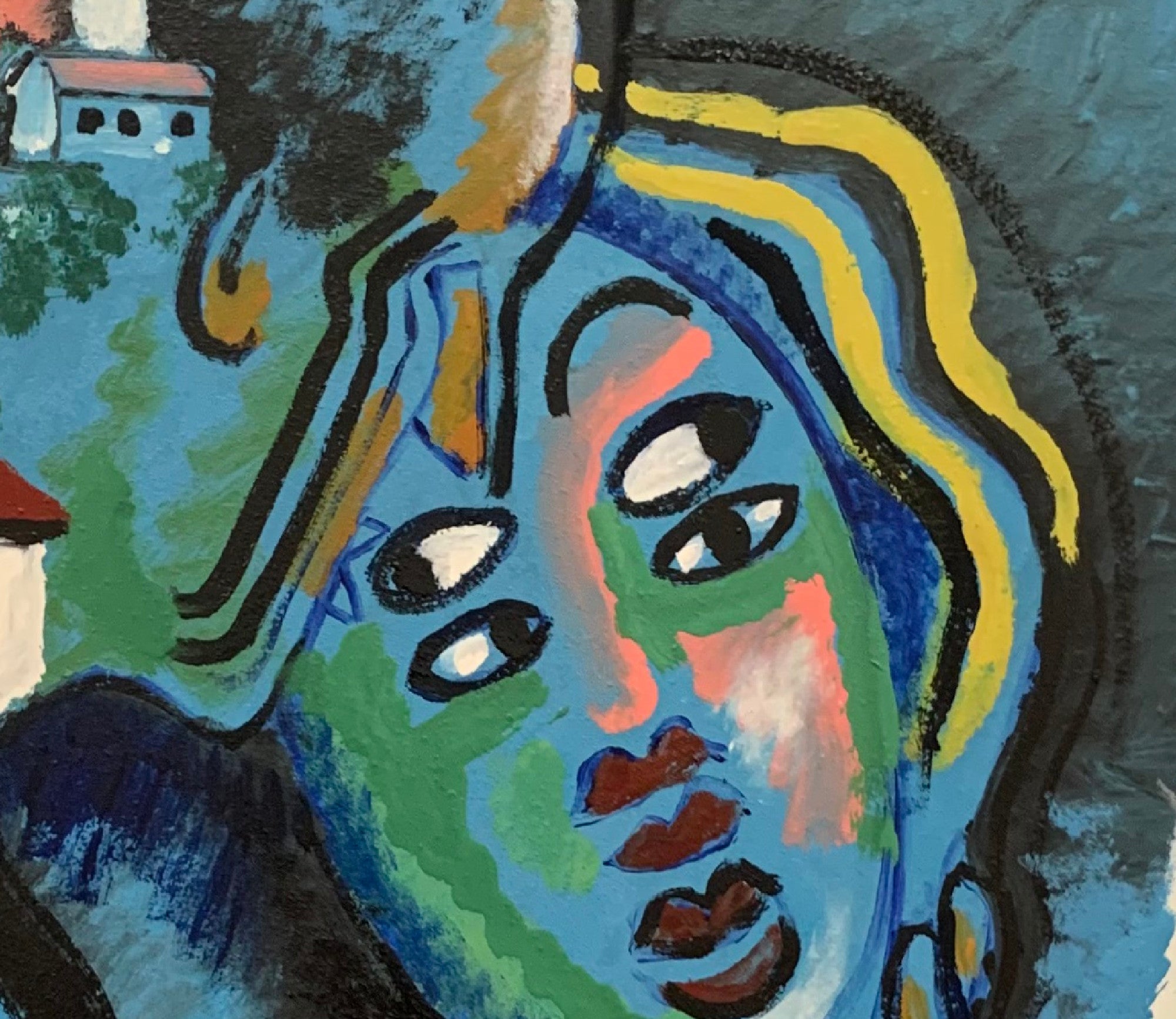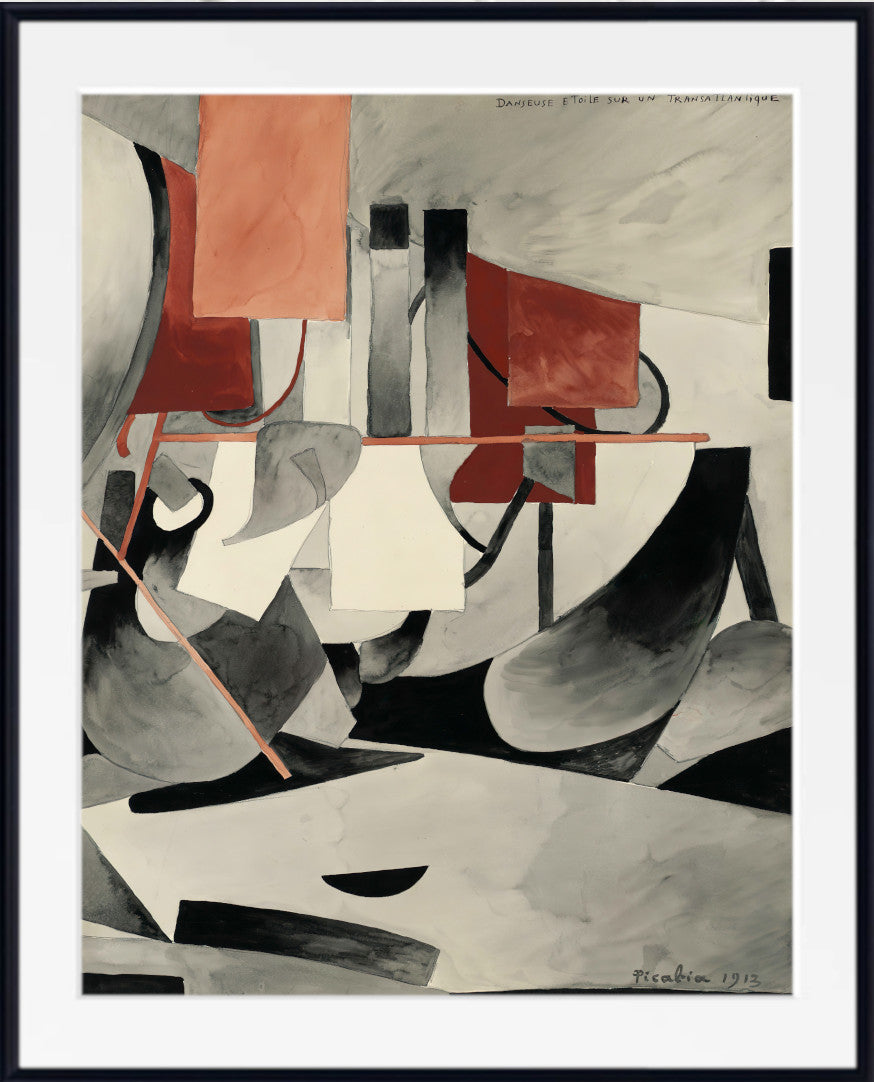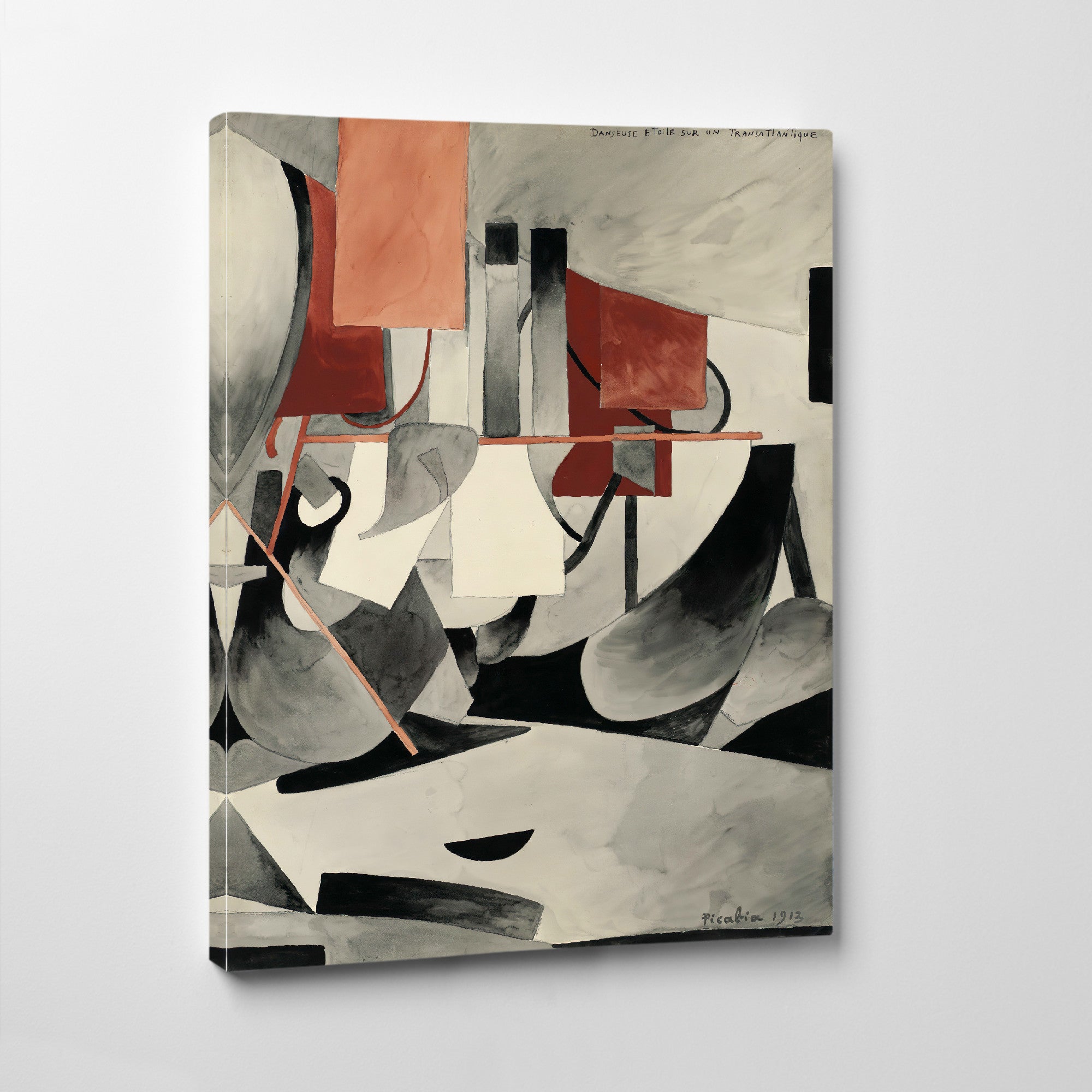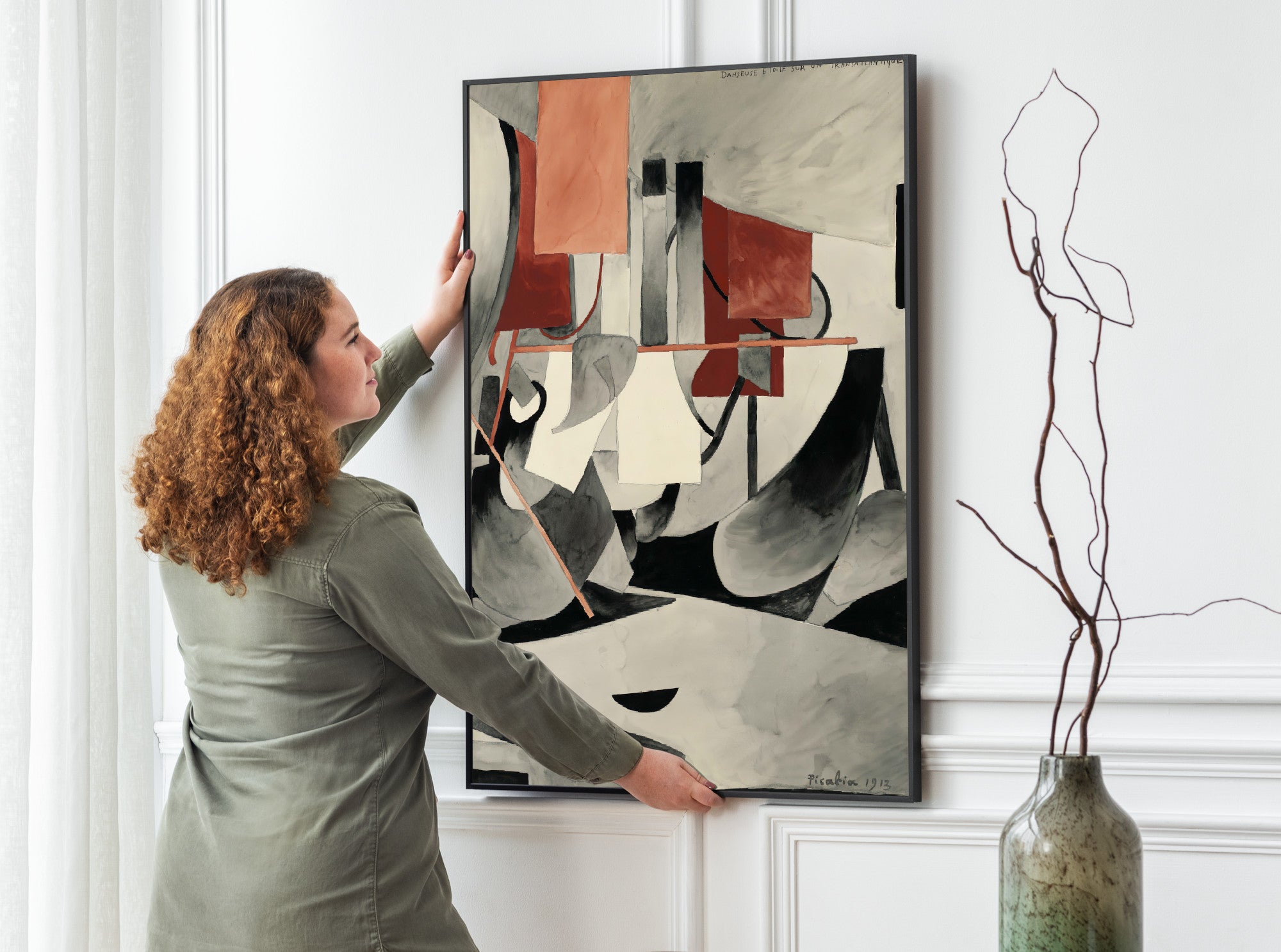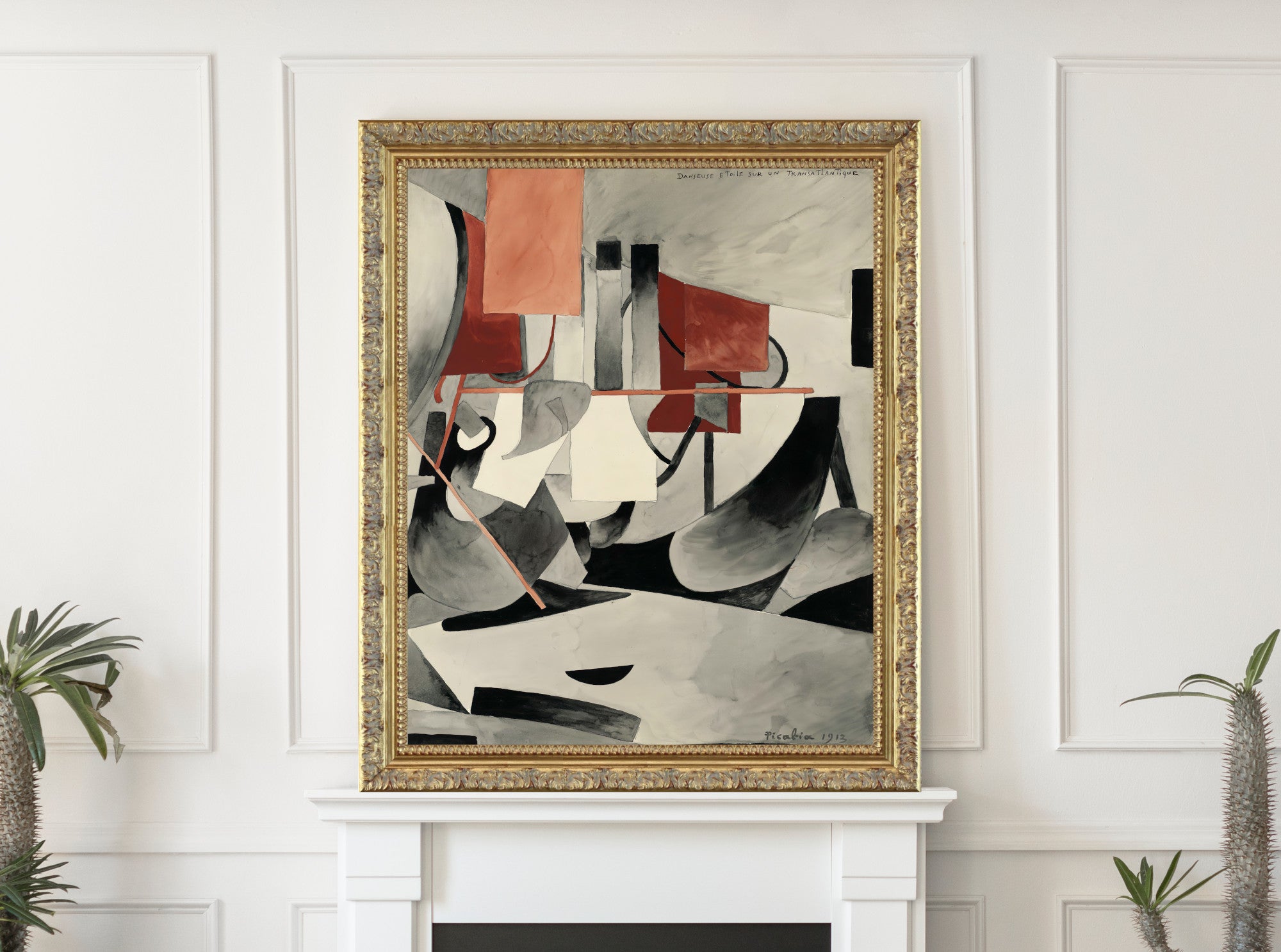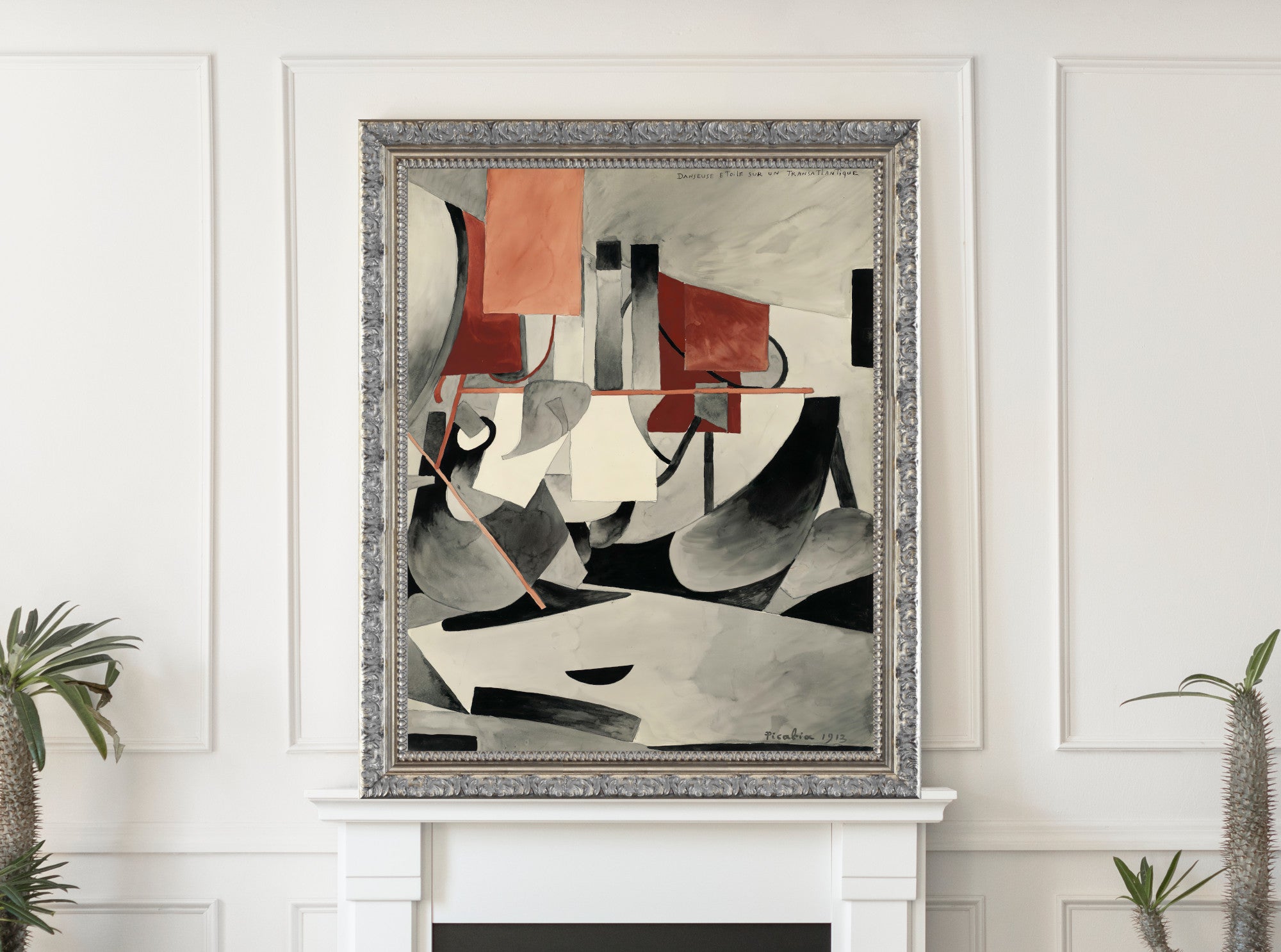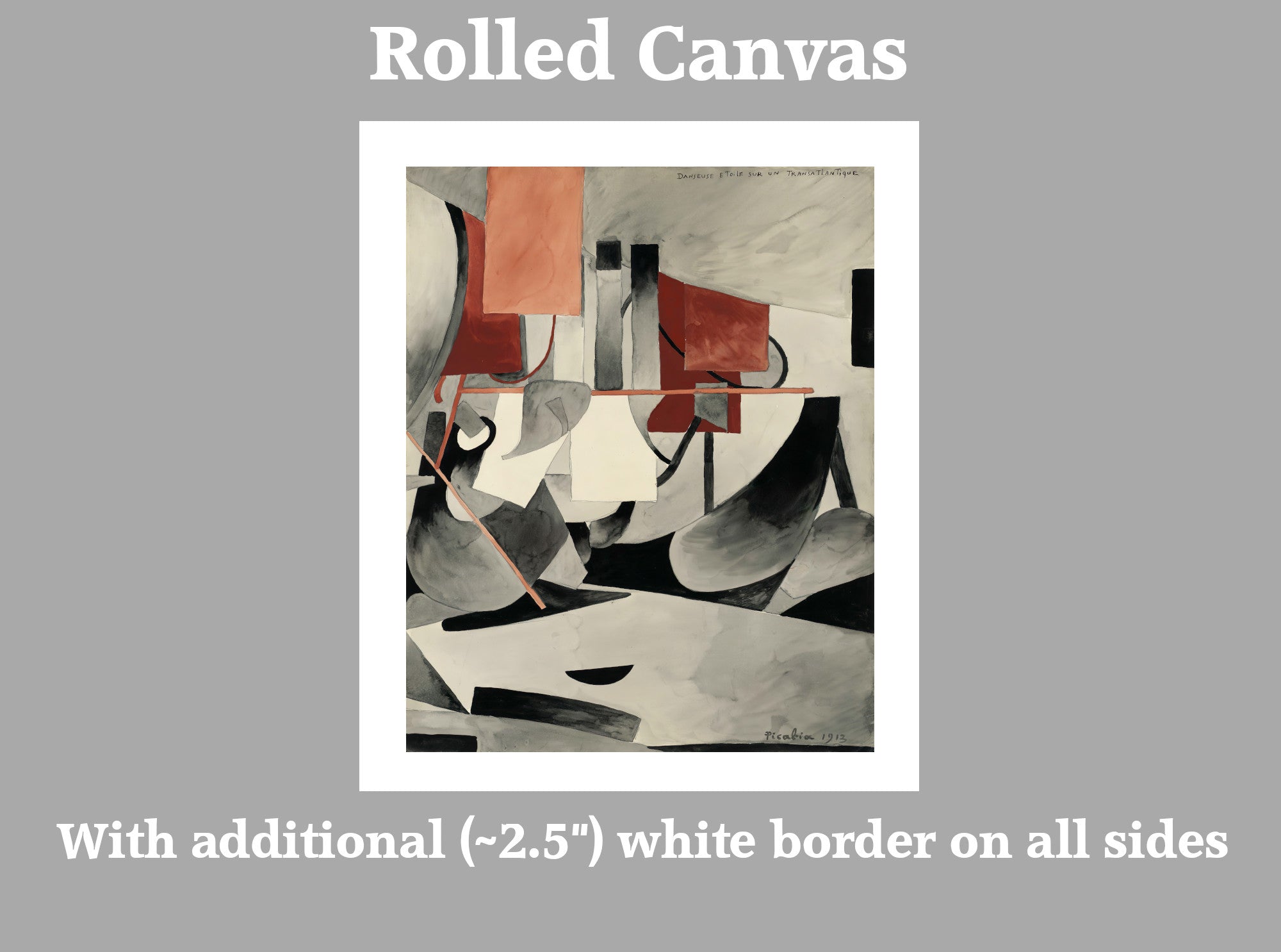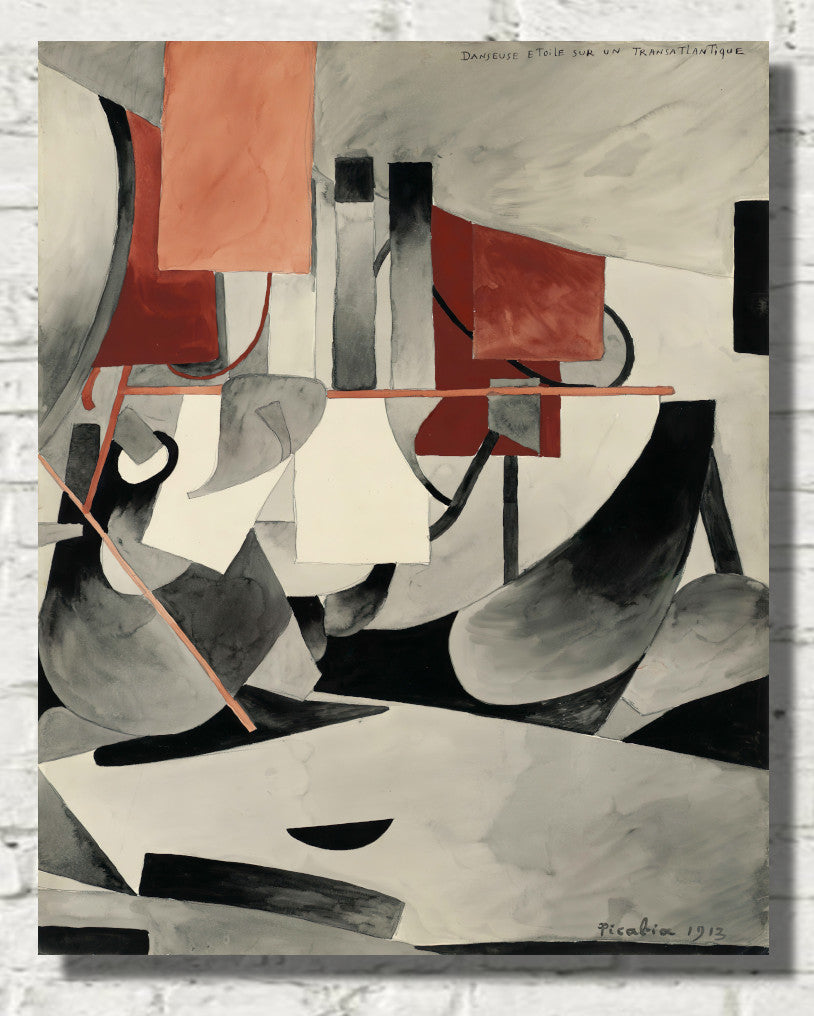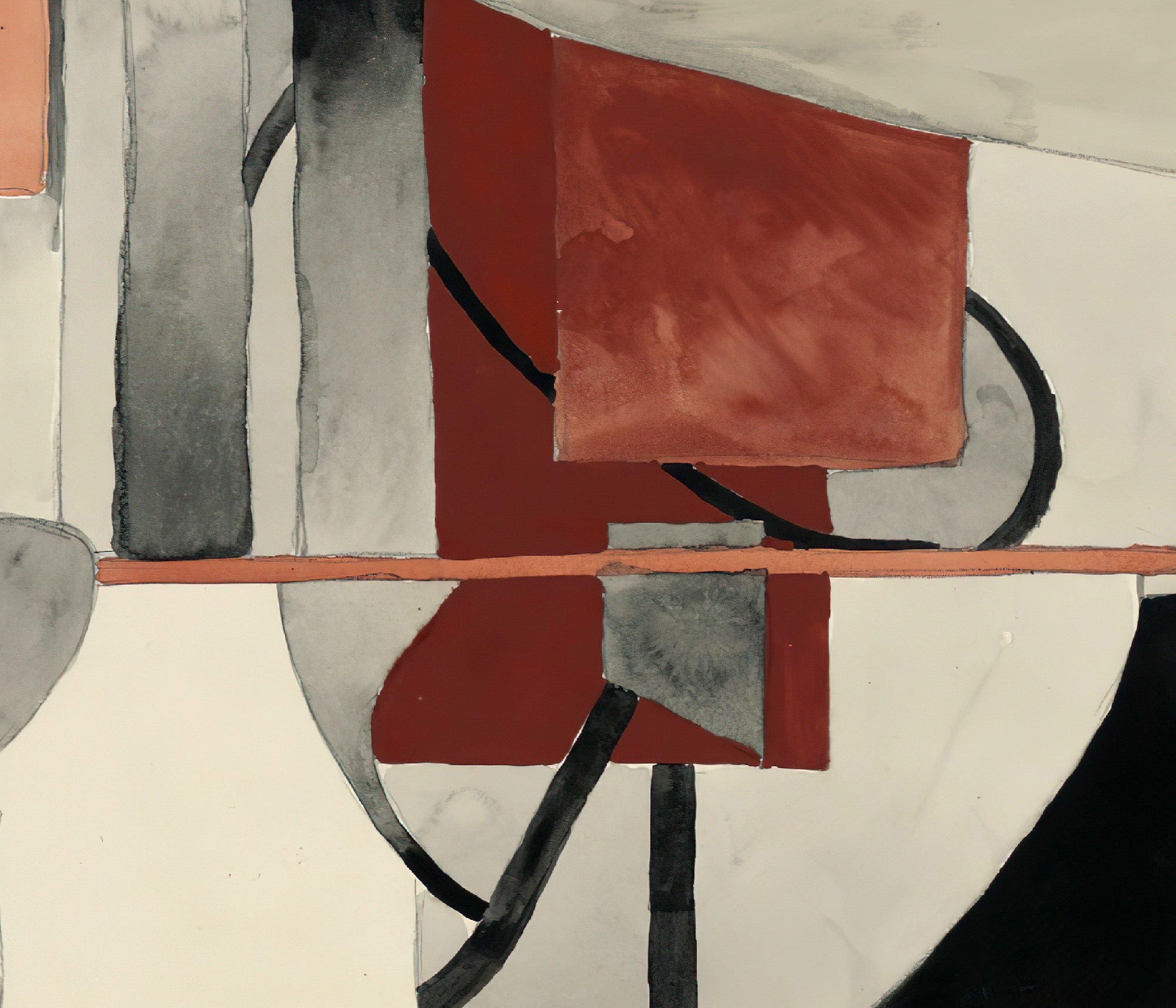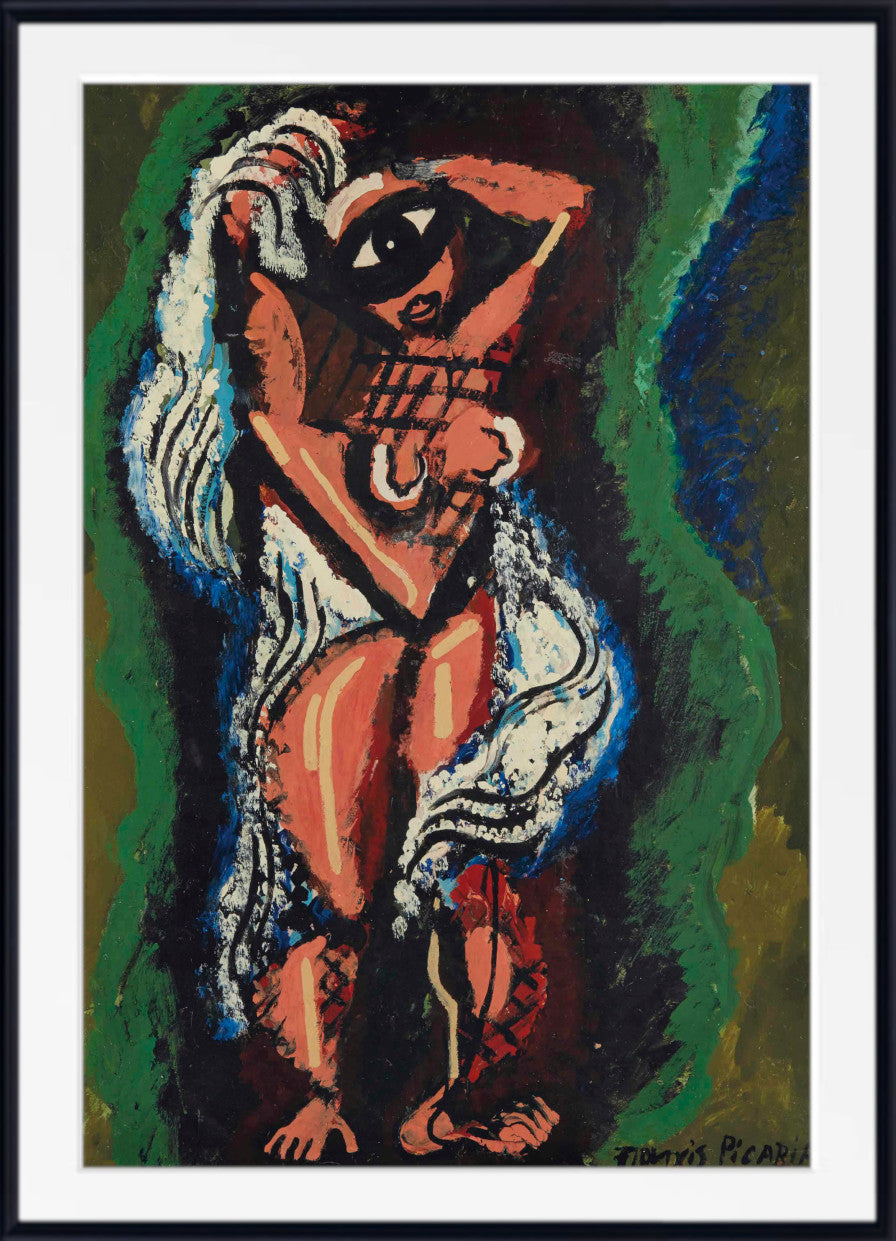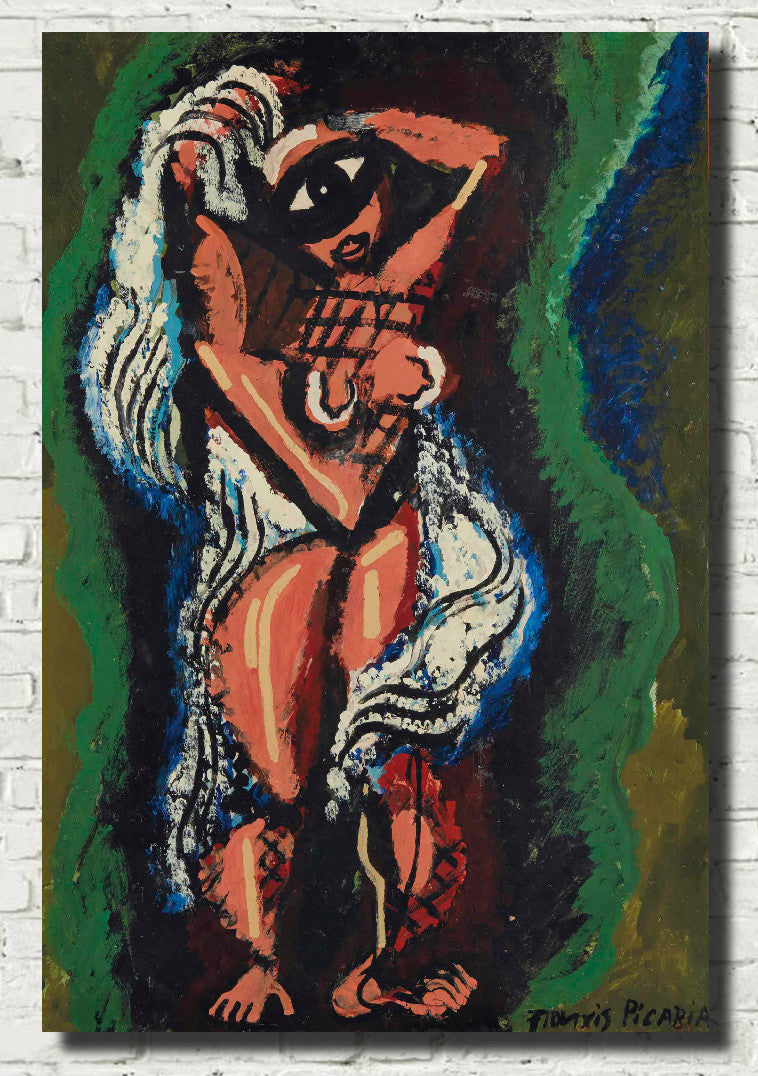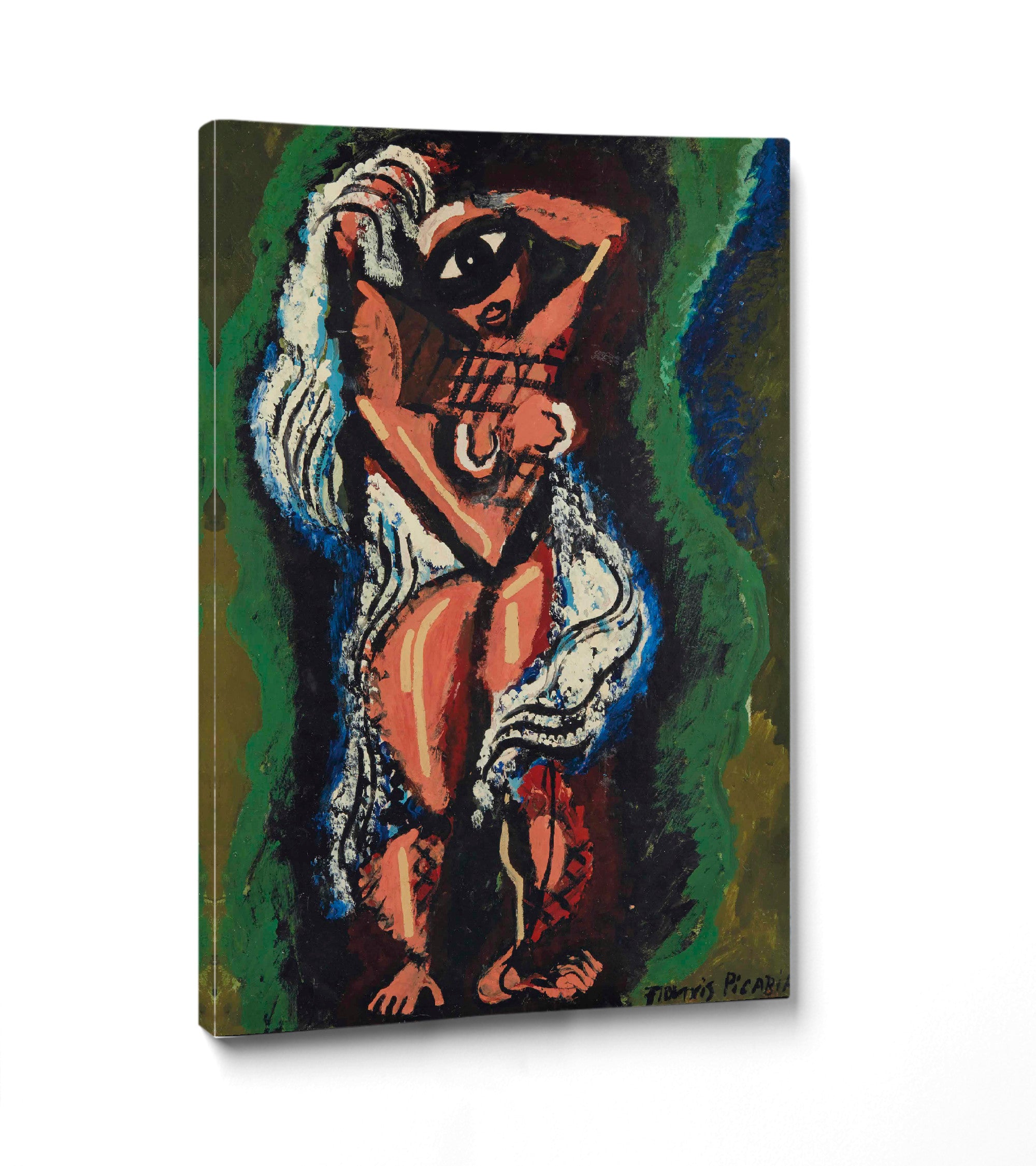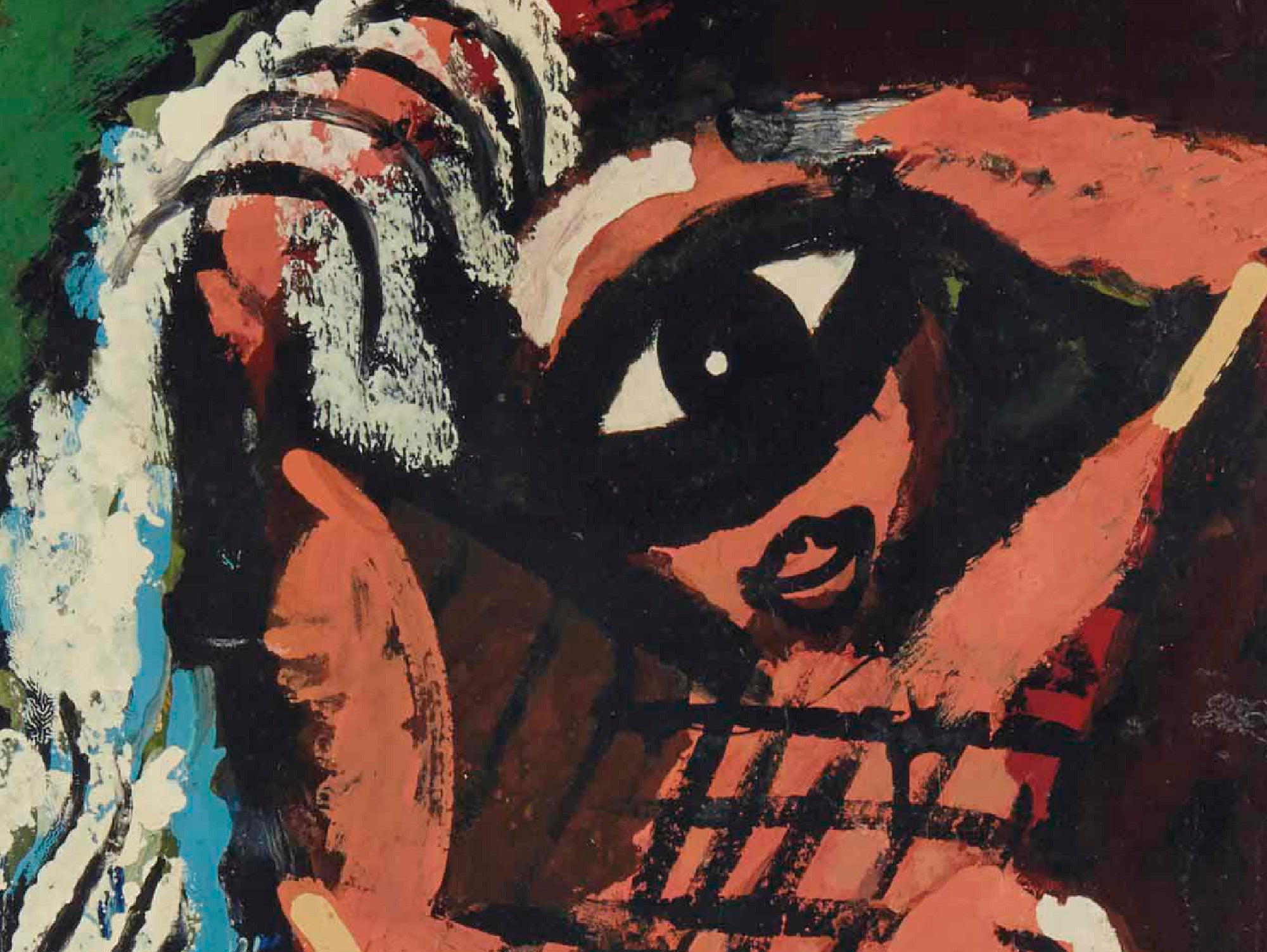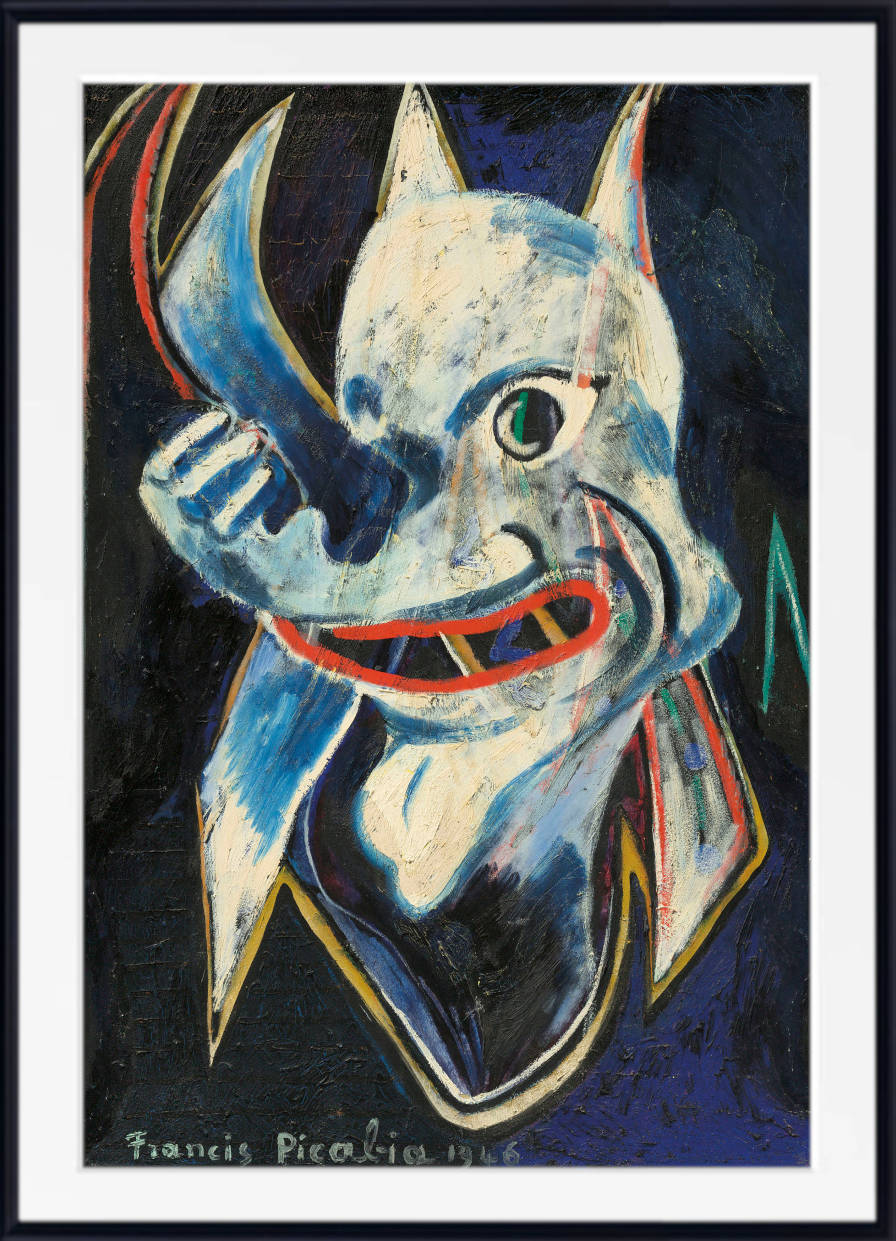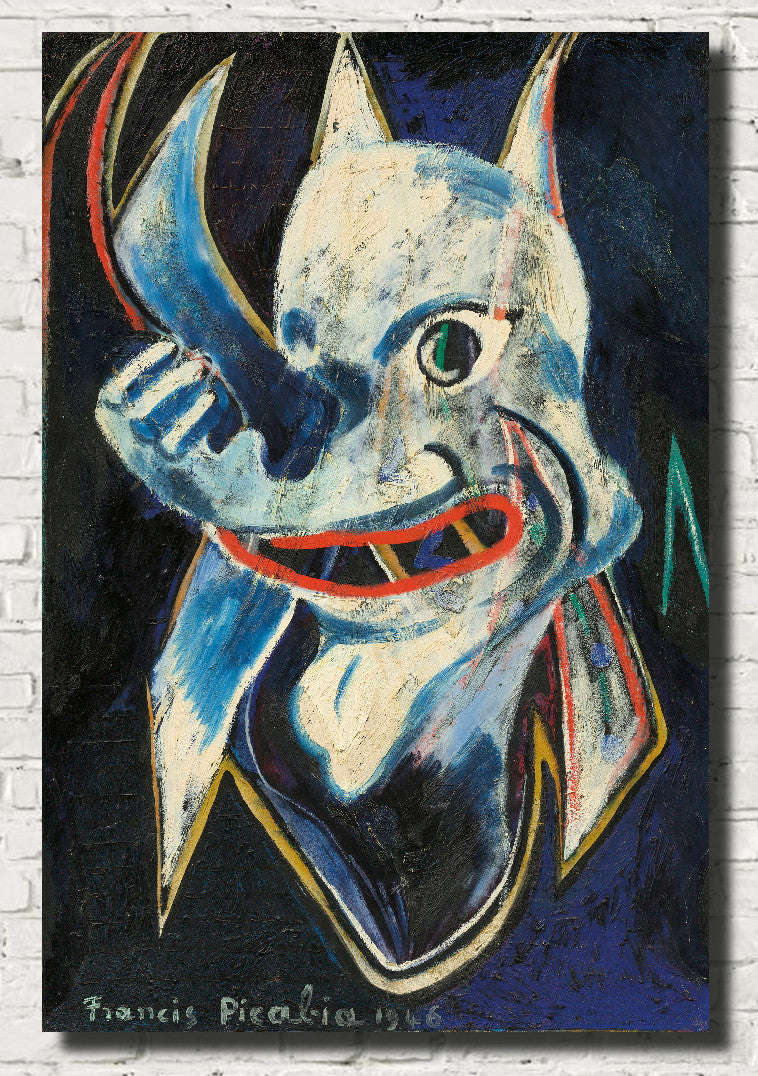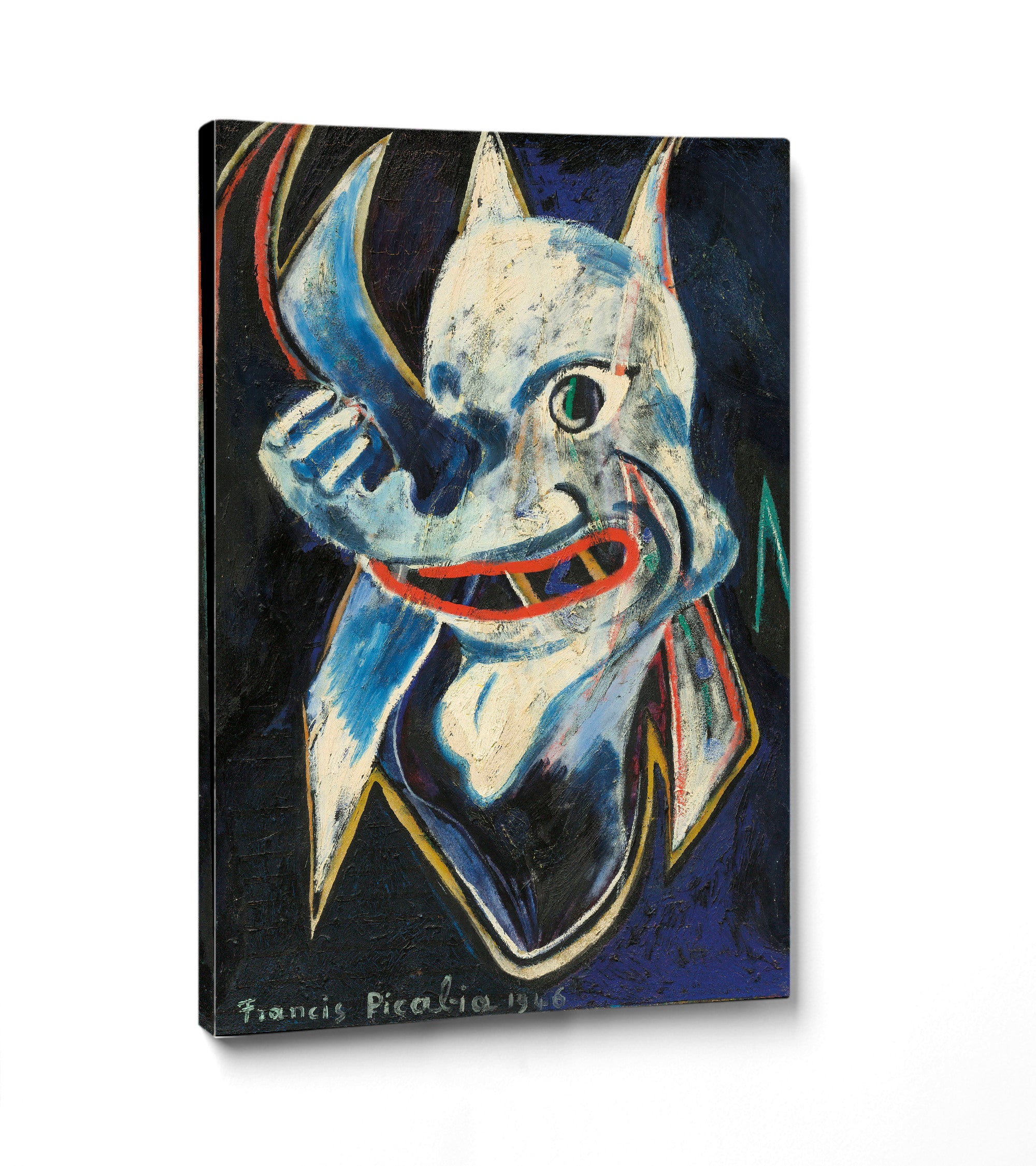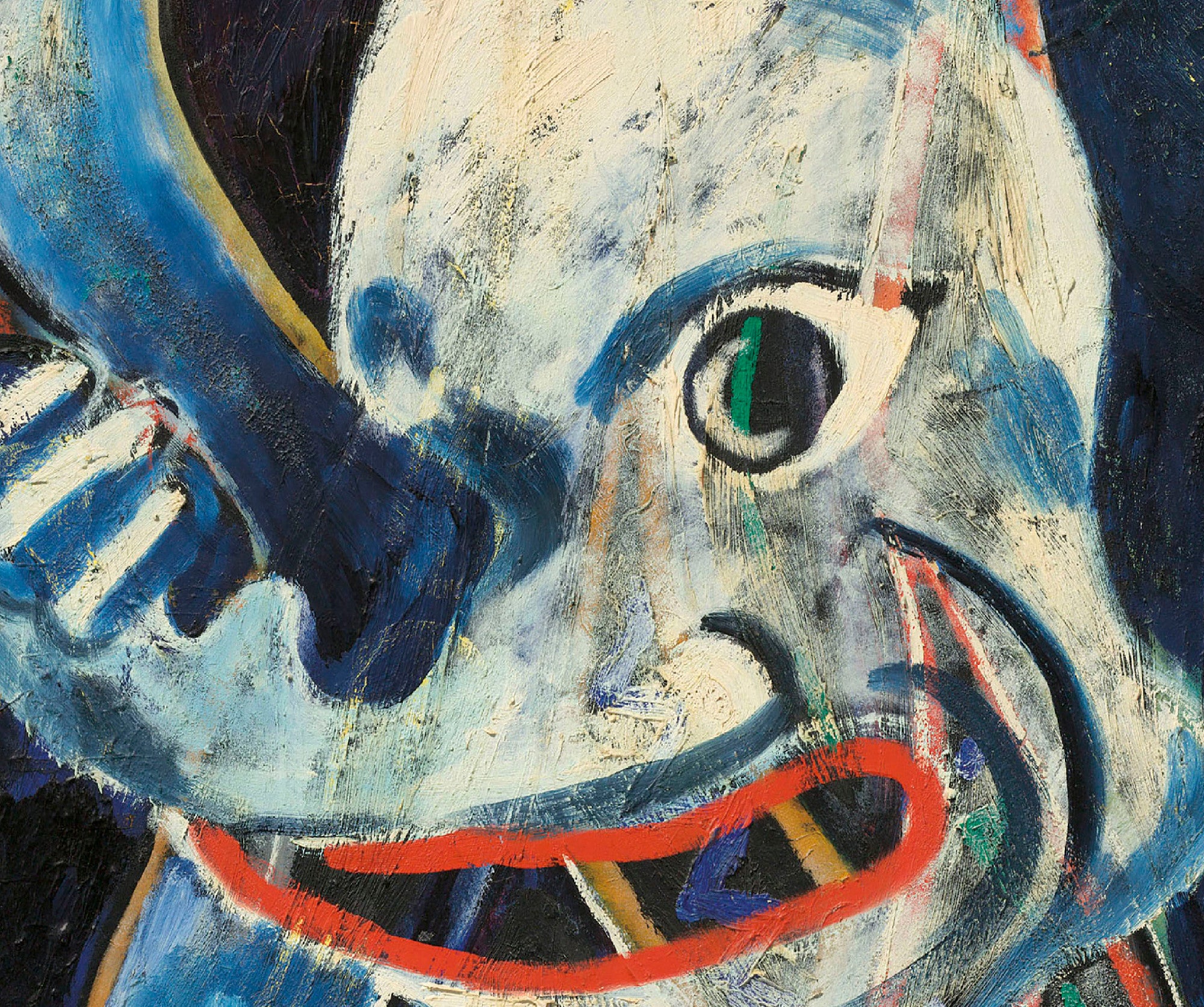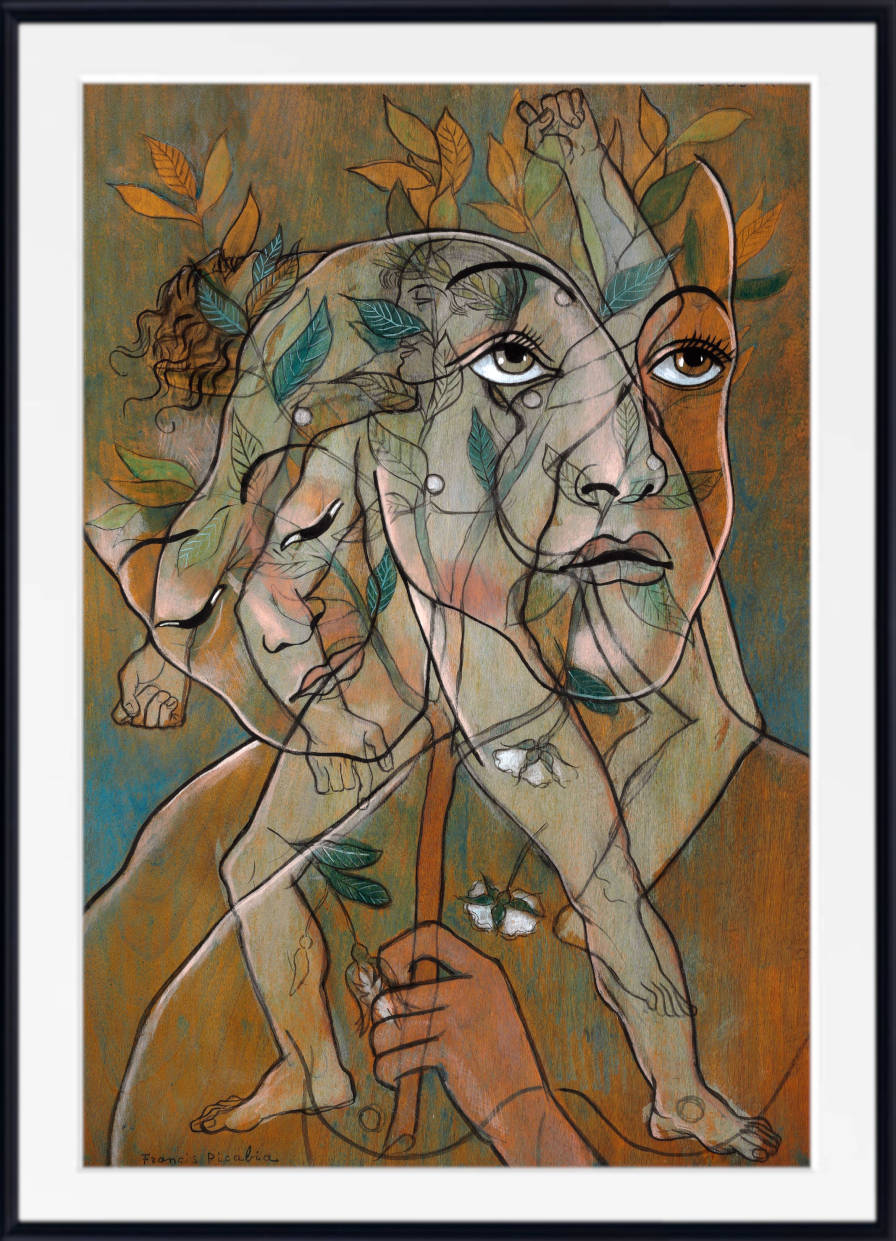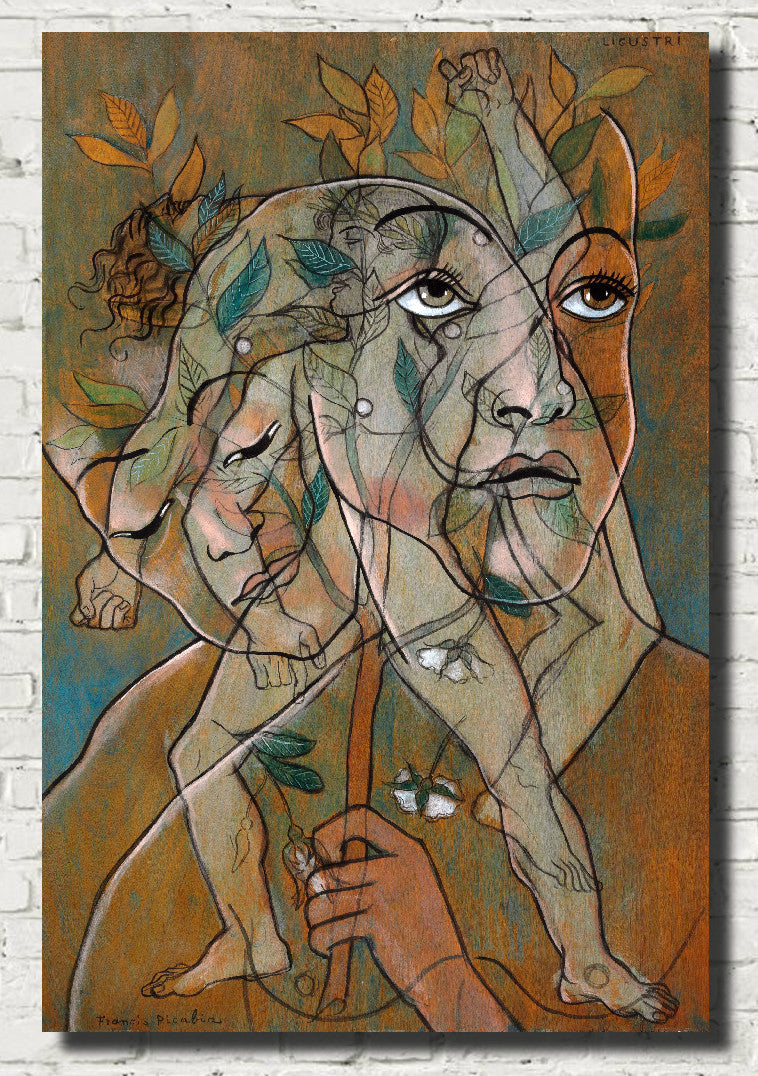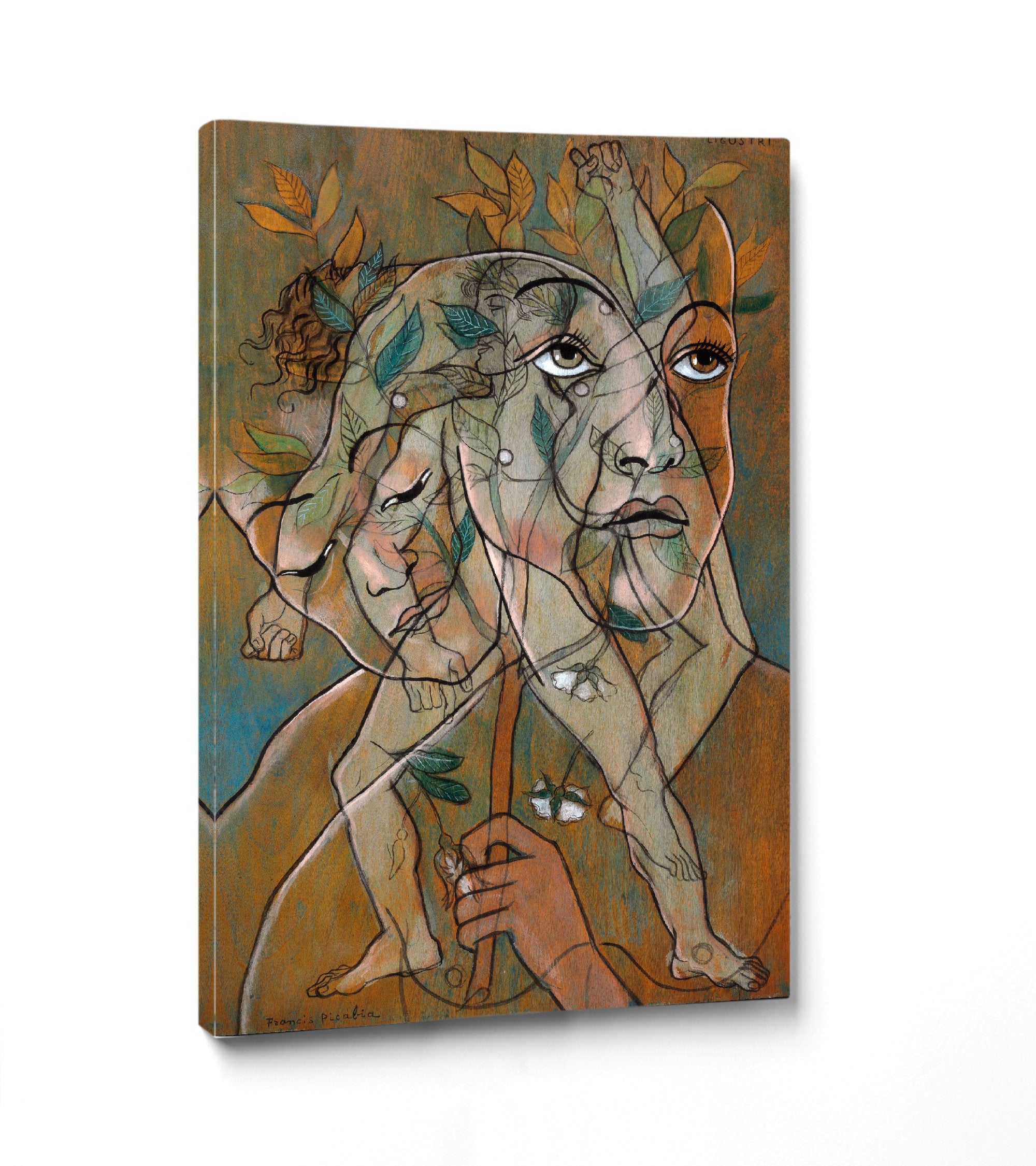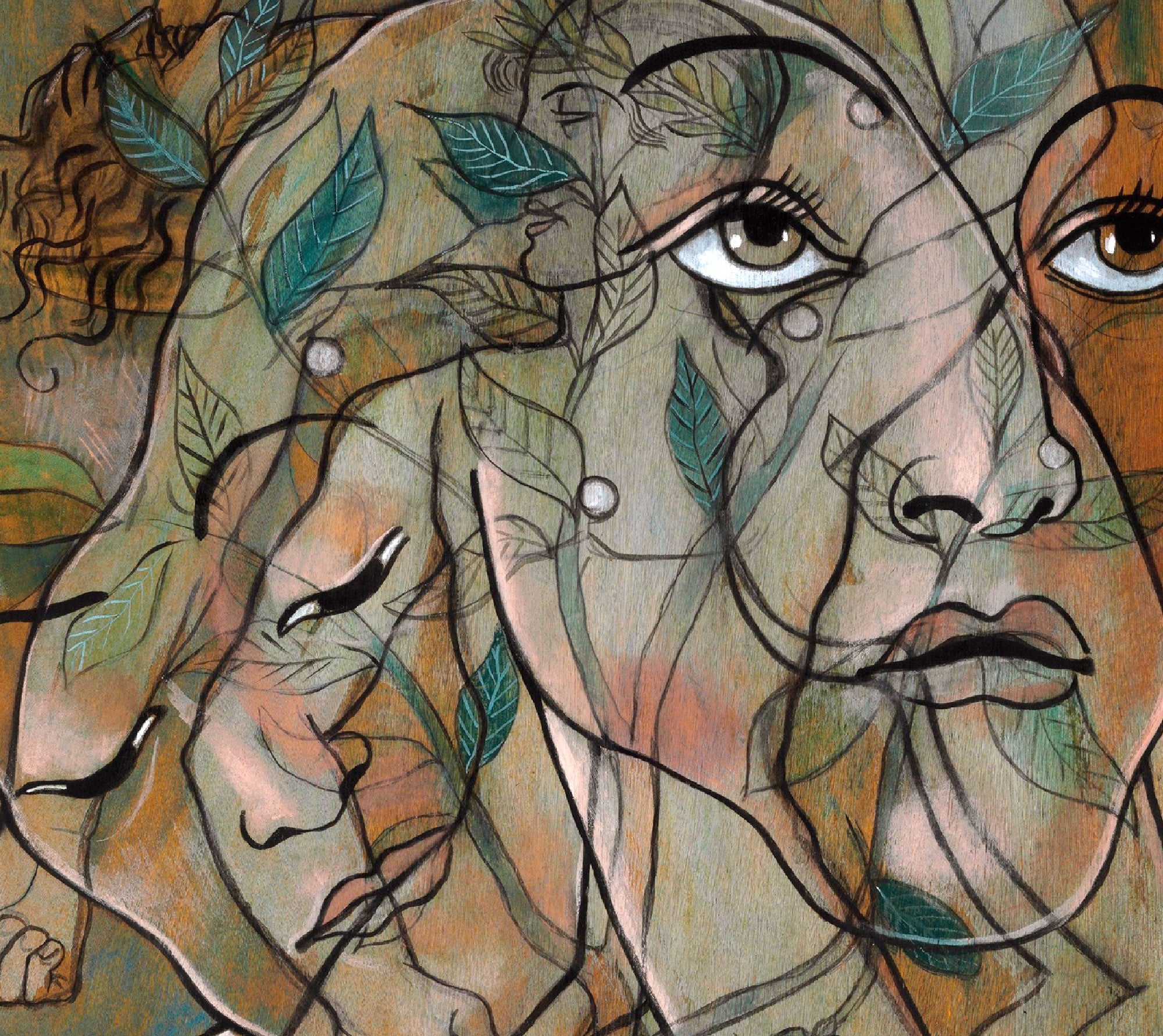Mid-Lent, Francis Picabia Monstres Series
BUY WITH CONFIDENCE
Couldn't load pickup availability
Painted in 1925 and depicting two characters in carnival costume with monstrous faces behind a playfully abstract cavalcade of party streamers, Mi-Carême (Mid-Lent), also known as (Carnaval), is one of the finest of this deliberately ugly, anti-art, antimodernist and anti-classical series of paintings that epitomise Picabia’s unique and fiercely individualistic stance towards both life and art.
As Duchamp wrote of these works, Picabia’s ‘restlessly inventive spirit leads him to use Ripolin instead of the traditional paint in tubes, which, to his way of thinking, takes on far too quickly the patina of posterity. He likes everything new and the canvases done in 1923, 1924 and 1925 have that newly painted look which preserves all the intensity of the first moment…The gaiety of the titles and his collages of everyday objects shows his impulse to be a renegade, to maintain his position of non-belief in the divinities created far too lightly by the exigencies of society' (Marcel Duchamp quoted in Maria Luisa Borràs, Francis Picabia, London, 1985, p. 289).
Picabia’s renunciation of Paris and his move to a life of ease and luxury in the French Riviera in 1924 was one which the artist knew all too well would offend the progressive politics of many of his allies in Paris. In addition to this, Picabia also found in the South of France, that ‘this country, which seems...to make some lazy, stimulates me to work...I have more and more pleasure in the resumption of painting.’ (Francis Picabia quoted in W. Camfeld, Picabia: His Life and Work, New Jersey, 1979, p. 216.) Decrying the Dadaists, Surrealists and other artists in Paris for their own lack of political and artistic individuality, Picabia took particular pride in doing just what he liked and made a specific point of visibly revelling in his luxurious life with his second wife on the French Riviera. In this respect, his Monstre paintings are also in some ways a pictorial expression of this defiant attitude of artistic individuality and independence. They are a celebration of what Picabia once described as ‘the absolute reign of ersatz’. that dominated the age, and also among the very first ‘postmodernist’ pictures in that they are works that completely disregard all aesthetic sensibility and artistic convention and deliberately poke fun at the entire concept of the ‘high’ art so revered in Paris.
Rendered in either a mixture of oil and gouache or, as here, in a sequence of cheap metallic household enamels, and adopting the banal imagery and cheesy romantic motifs of seaside postcards - voracious lovers and bathing beauties beside the sea – these deliberately crude pictures defied all the rules and conventions of traditional painting. But more-to-the-point, they did so in a way that appeared to ridicule the claims and pretensions of ‘fine’ art then being so fiercely fought over in the avant-garde circles in Paris. Self-evidently a simple combination of line, stylised graphic shading and symbol, the simplistic and often classically-based figures of these works are all rendered in a loose, apparently slap-dash and almost formulaic graphic style that calls to mind the approximations of sign-painters and the adorners of sea-shell souvenirs.
Taking the simple techniques of these artisans to a new level by reducing their artifice to an almost independent and abstract language of simple sign and motif, Picabia’s seaside souvenir Monstre paintings appear to lay bare the process of the painter’s art as if it were an art of easy assemblage. Here in Mi-Carême (Mid-Lent), with its Commedia dell’arte couple shown carousing together beneath the moon, Picabia, as in so many of his Monstre paintings, seems to have once again confrontationally taken the ‘monstrosity’ of ‘love’ as his subject. L’amour, Picabia frequently claimed at this time, was the subject that most ’frightened’ the Parisian ‘intellectuals’.
Picabia’s deliberately iconoclastic approach to painting and the carnival-like gaudiness of his technique were part of a radical and groundbreaking anti-modernist aesthetic that, though revolutionary and shocking in the 1920s, was to have a significant influence on many post-modernist approaches to painting in the 1970s and ‘80s, particularly upon the work of Sigmar Polke. Similarly, Picabia’s adoption of household enamel and the free-flowing liberty this paint lent his work, allowed for a freer, more intuitive and open approach to painting that the artist was to revel in and would later develop in his transparency paintings. It is in this sense too that the freely painted, winding and spiralling forms of the streamers set against a reflective silver enamel ground in this work can also be clearly seen to anticipate the similar free-form use to which household enamel paint was also put by Jackson Pollock in the 1940s.
Most immediately, however, Picabia’s radical approach in paintings such as Mi-Carême (Mid-Lent) was to have an instant and profound influence on Pablo Picasso. During the summer of 1925 Picasso spent a lot of time with Picabia and his family at the beach in Juan-les-Pins, where their children often played together. Clearly impressed by Picabia’s work that summer, Picasso immediately adopted Picabia’s use of crude paints such as Ripolin enamel and applied the simplistic assemblage-like language of his Monstre paintings - itself derived from Cubism – into the formal logic of his own work. Great paintings from this time such as Picasso’s Three Dancers and The Kiss, for example, clearly owe much to Picabia’s Monstres.
Adopting a marvellously false-modest tone worthy of some of Jeff Koons’ artistic statements today, Picabia later wrote in connection with these works that they were simply the product of ‘a man uninfluenced by anybody, unconcerned about Modernism, Cubism or Dadaism, neither a Socialist nor a Communist, nor yet the contrary: a man who is simply himself…A man in short, going towards a new, as yet undiscovered world: the world of love, which the mediocre have no desire to enter and which frightens the ‘intellectuals’, because they are afraid of making fools of themselves. Painting for me lies in the pure pleasure of invention. What I would like best of all would be to invent without painting.’ (Francis Picabia, ‘Ondulations Cérébrales’, in L’Ére Nouvelle, Paris, 1927, pp. 1-2).
Francis Picabia (22 January 1879 – 30 November 1953) was a French avant-garde painter, poet and typographist. After experimenting with Impressionism and Pointillism, Picabia became associated with Cubism. His highly abstract planar compositions were colourful and rich in contrasts. He was one of the early major figures of the Dada movement in the United States and in France. He was later briefly associated with Surrealism, but would soon turn his back on the art establishment.


All prints are made using archival art stocks and UV pigment inks to give up to 200 years life. Prints are sold unframed and unmounted.
All orders for unframed fine art prints and original paintings are dispatched within 2 working days of receipt of payment.
Orders for custom framed prints are dispatched within 4 working days.
All orders are fully tracked from dispatch to delivery at your home or business.
All print and original painting orders are fully insured against loss or damage in transit. We refund or replace any damaged or lost orders.
Buy with confidence - read what our satisfied customers have to say - Reviews
Fine art papers are printed without any additional white border Please let us know at the time of ordering if you would like a small additional white border.
Rolled canvas options have an additional white border of approximately 2.5 inches (7cm) on all 4 sides to aid stretching.
Ready to hang canvas panels are stretched on 1.5 inch deep solid pine frames from sustainable forestry sources. The image is mirrored on all 4 sides to give an aesthetically pleasing finish.
Why not have us gift wrap your order and attach a personalised message to the recipient. Available for all orders. Each order is hand wrapped in high quality gift wrap with meatllic ribbon and bow. Your personalised message is printed on a card which is included with your order.
Have your hand wrapped gift delivered directly to the recipient.
Full tracking and insurance included with every order.
Please note design may vary depending upon availability
Just purchase the gift wrap option HERE
We have a wide range of frames in standard sizes and we also make custom size frames.
To order a framed print:
1. select the print size you would like along with the print materials (matte paper, fine art paper).
2. Add your print choice to the basket.
3. Choose from our range of frames
4. Select the same size as the print you have added to your basket. If the frame size you want is not listed please contact us
5. Choose from the mount or no-mount option
6. Add your frame choice to the basket
7. Proceed to checkout.
Why Choose GalleryThane?
- Printed and framed in-house
- Free UK delivery
- Fast international delivery
- Tracking and insurance included in every order
- Fast 1-3 day dispatch
- Gift wrapping service available
- Gallery quality materials
- Sustainable, eco-friendly packaging
- Great customer support
What makes our Prints and Canvas Panels so special

Latest Giclee Printing Technology
We have invested in the latest wide format print technology to produce museum quality giclee prints utilising the highest quality pigment inks to give outstanding colour reproduction.

Museum Quality Archival Fine Art Papers
We print on the finest quality fine art papers with textured, smooth and lustre finishes for prints which last a lifetime.
From aceo miniatures to 40x80 inch large format, every print has our lifetime quality guaranteee.

Solid Wood Frames, Cotton Canvas
All of the wood for our canvas panels and frames is responsibly sourced from manages forests. Our cotton canvas is completely seedless for the highest quality reproduction possible.

